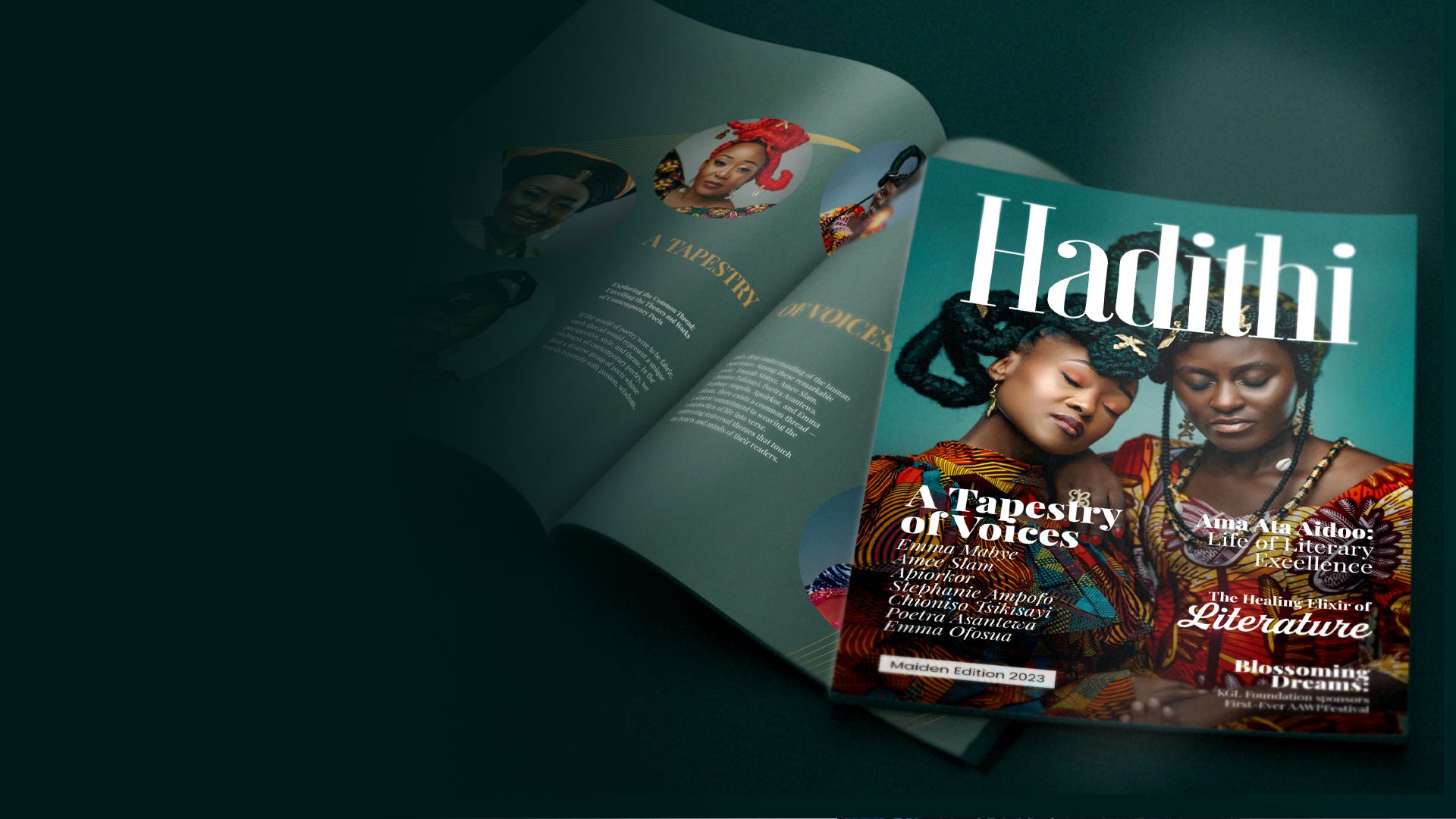Hadithi
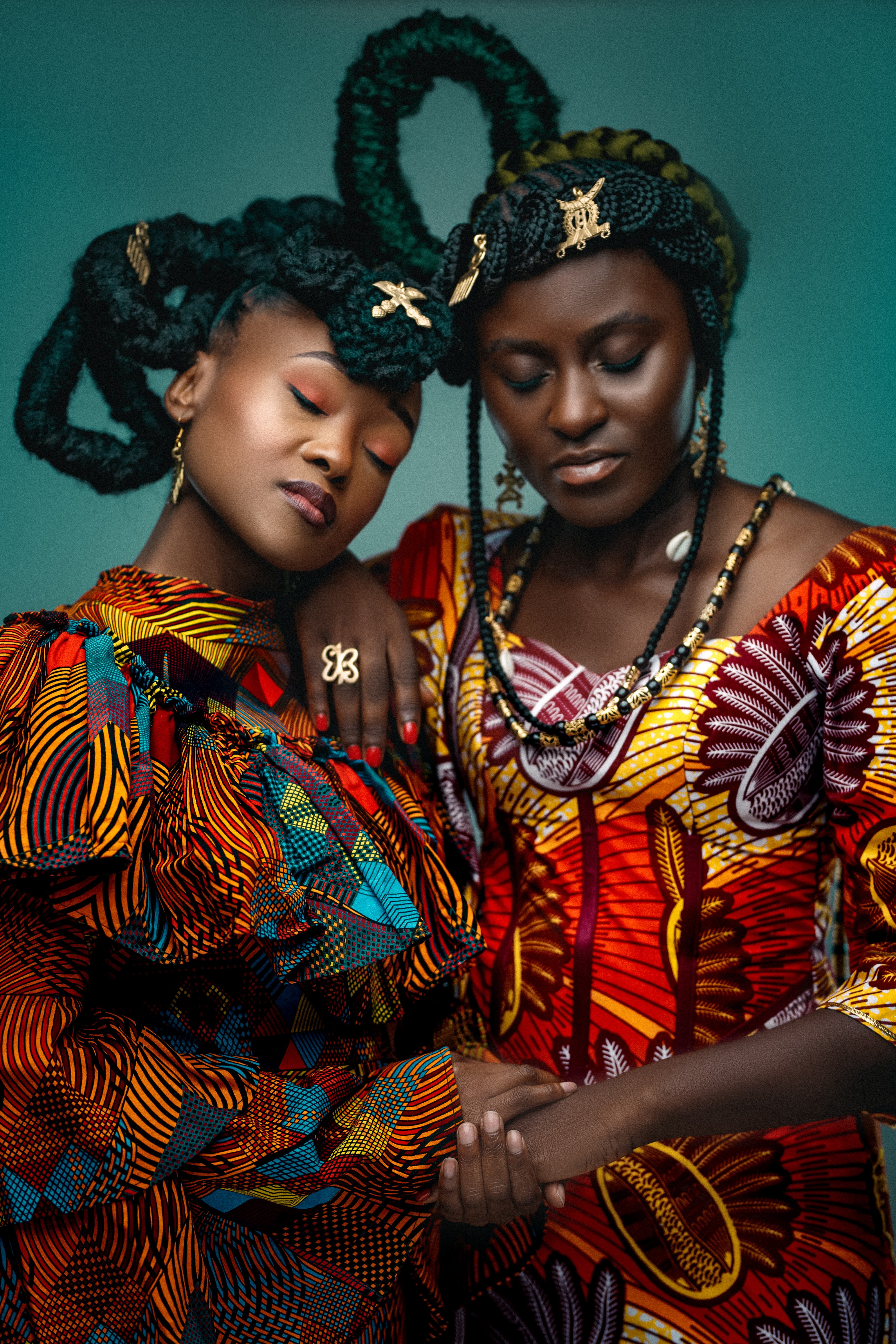
Contents
• Feature Poem - “Honam”
• The Healing Elixir of Literature
• Programming Women Poetry for the Creative Economy in Africa
• Professor Esi Sutherland-Addy: Leveraging the Legacy of Our Forebears
• Ama Ata Aidoo - Life of Literary Excellence
• Bridging cultures through the Adinkra poetry prize and the black ballad
• A Tapestry of Voices
- Emmah Mabye
- Aminata Bamba (Amee Slam)
- Apiorkor
- Stephany Ampofo
- Chioniso Tsikisayi
- Poetra Asantewa
- Emma Ofosua
• Festival Review
• AAWP Festival Gallery
• Book review - I wish you courage
• Poetry’s Pulse
- Blossoming dreams
-Hadithi's guide to African Poetry Festivals
• Feature Poem - “Revival”
• Biographies of Poets, Panelists & Contributors at AAWP Festival
EDITOR’S REMARKS
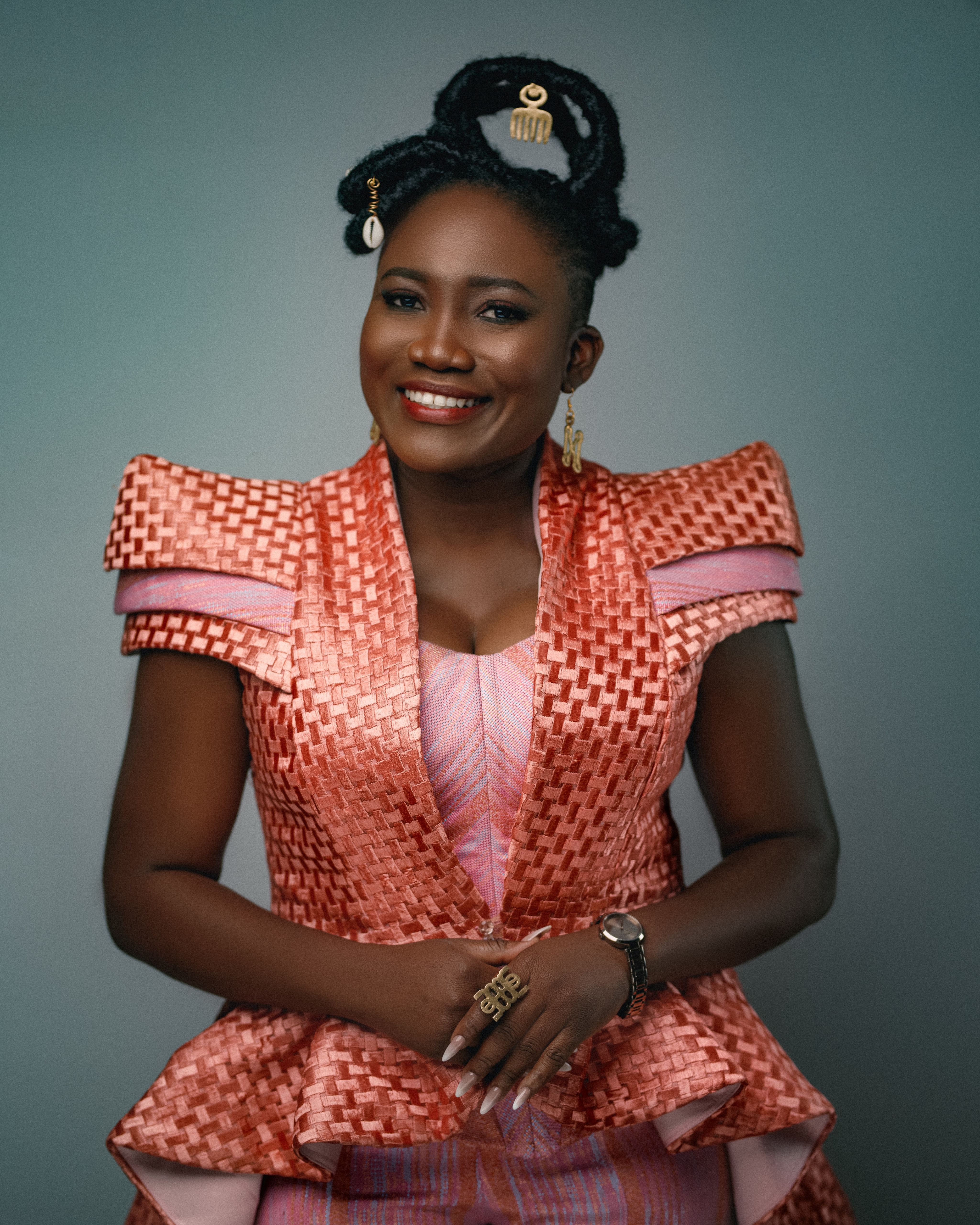
“The African story from the woman’s perspective needs to be told in varying formats.”
I find myself affirming these thoughts repeatedly as I work with the team to curate the necessary spaces to hold the stories we have and those yet to be uncovered. The dream seems impossibly daunting, and the path -lonely, but I remind myself that the only way help will come; the only way to know if anything is worth doing is to actually do the thing. So here we are, doing what needs to be done!
I remind myself to be grateful that amazing women have trusted me with their time and stories. That these institutions, especially the KGL Foundation and the British Council, see the vision and think of me as a person of integrity. I do not take this lightly. The responsibility then, is to honour the dream and treasure the stories we are entrusted with, retelling and representing them in the best light possible, while delivering on our promise.
We are committed to delivering this annual project at the highest standards, following our successful pilot edition. We will evolve and learn, improving till we attain a quality to take pride in. This work is important. We believe that if it must be done, then it must be done well.
There is power in our stories
healing on the wings of words
especially when women wield it gracefully.
Welcome to the captivating realm of Hadithi, where the essence of the All African Women Poetry Festival comes to life. Within these pages you will encounter the extraordinary eloquence of African women poets taking centre stage. More than a magazine, Hadithi serves as a haven for poets to share their verses and aspirations. It is a canvas where diverse cultures unite, and a mirror reflecting the festival's ability to celebrate poets, affirming to them that their words and stories matter. We reinforce a profound sense of self-worth and foster a bond that we hope lives on long after the four-day conference.
We extend our deepest gratitude to our sponsors and partners, whose unwavering support breathed life into this gathering of poetic minds. Their dedication to the festival's vision is a source of great pride, and their contributions are prominently celebrated.
Emma Ofosua Donkor
Editor-in-chief
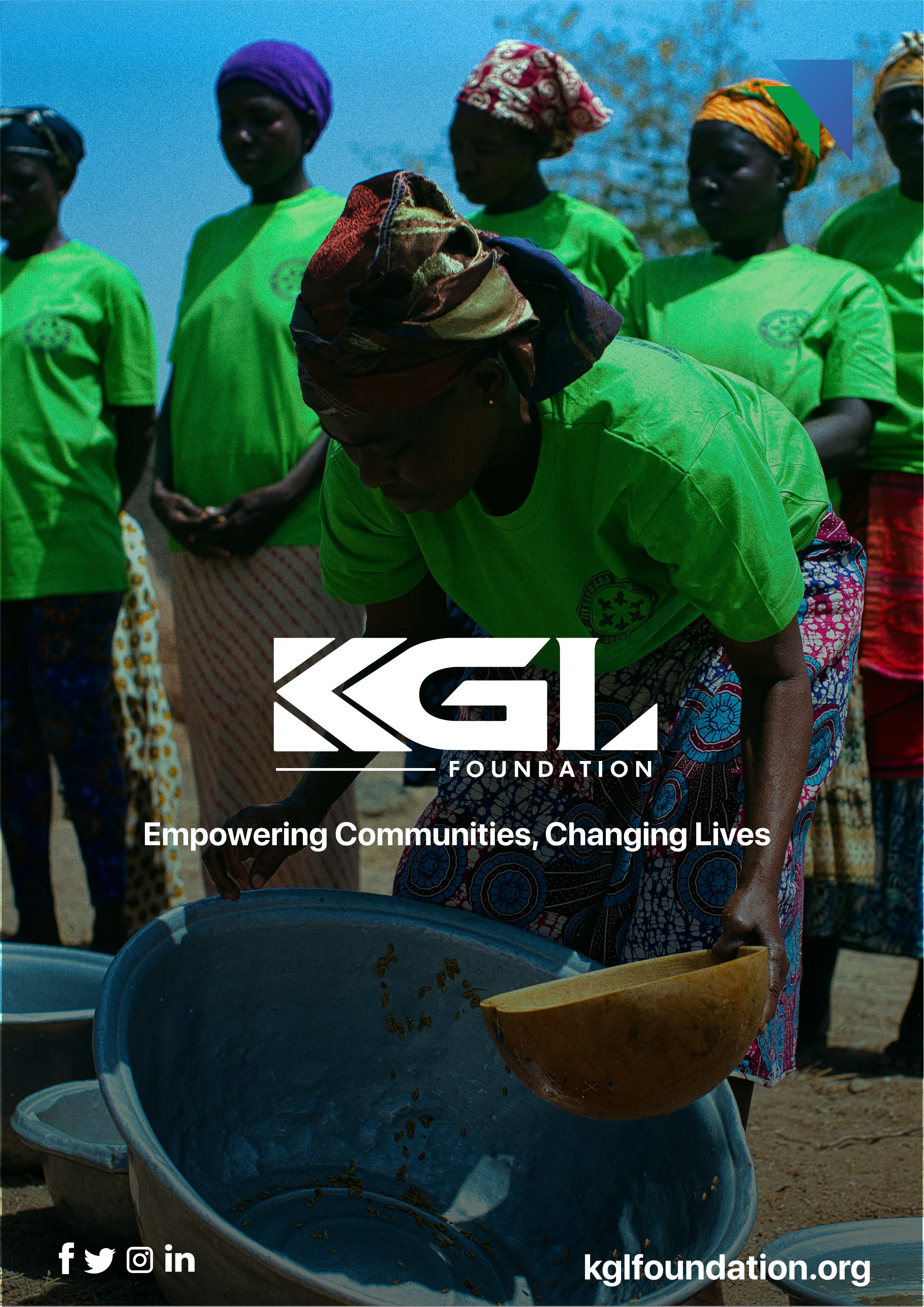
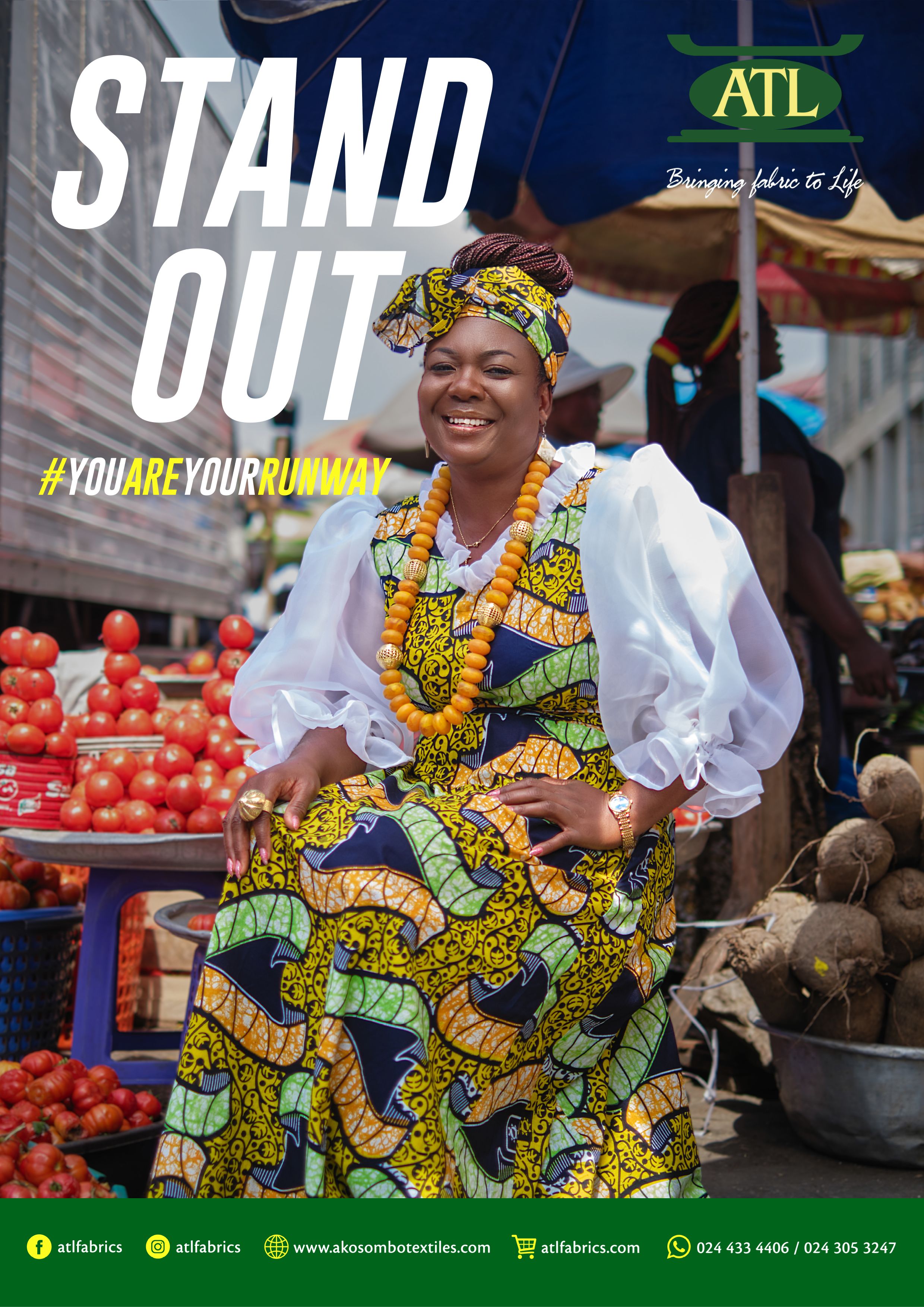

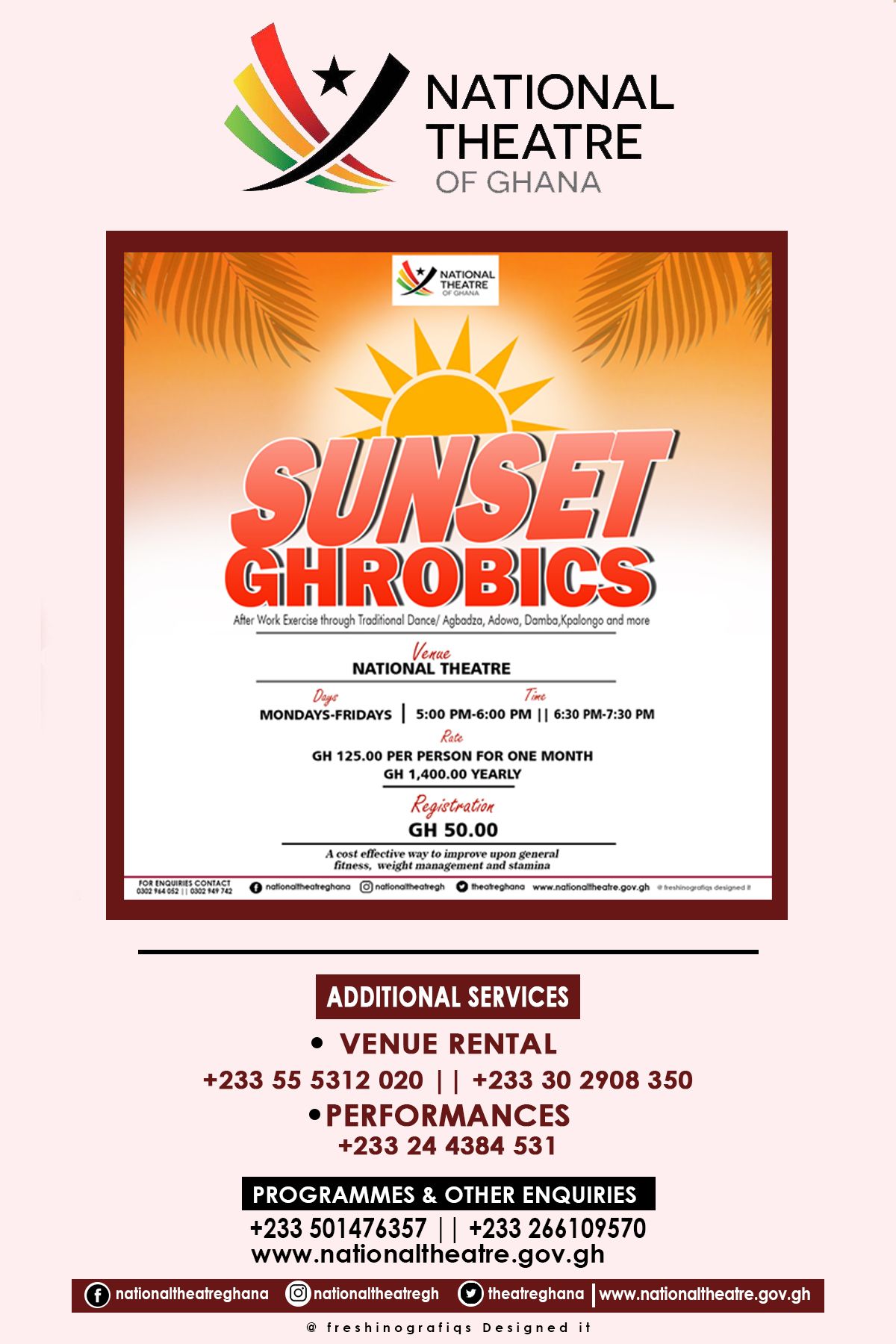

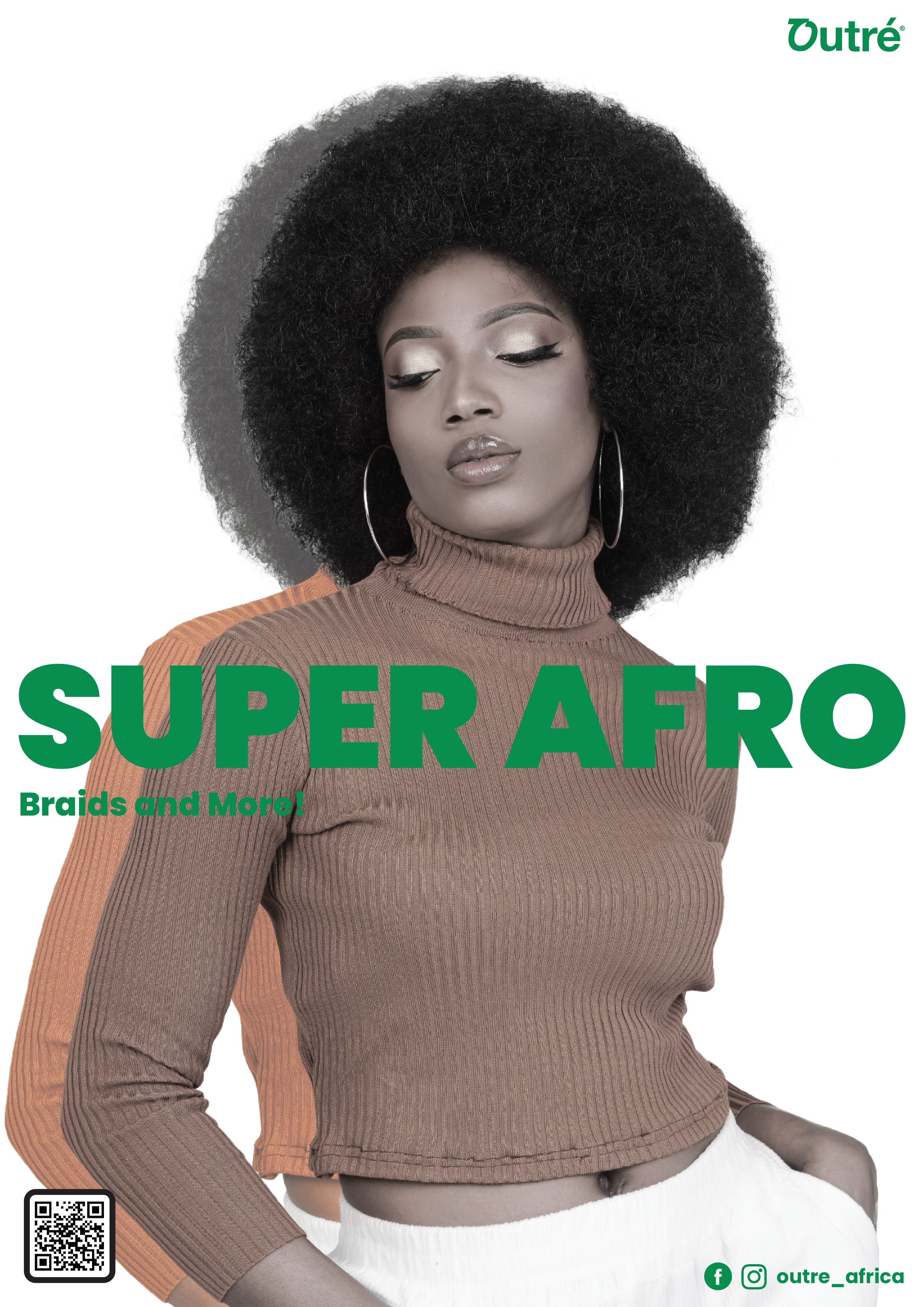


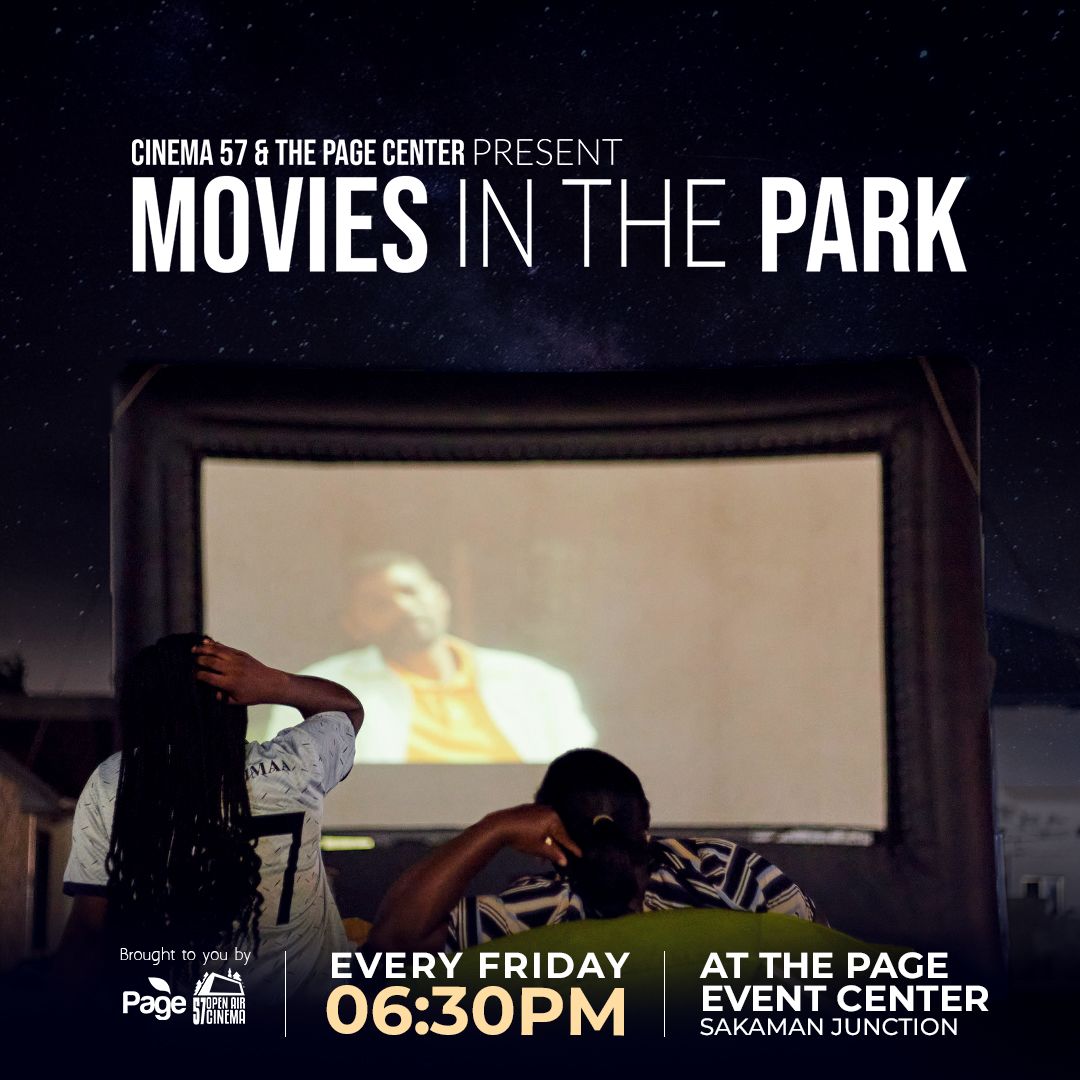
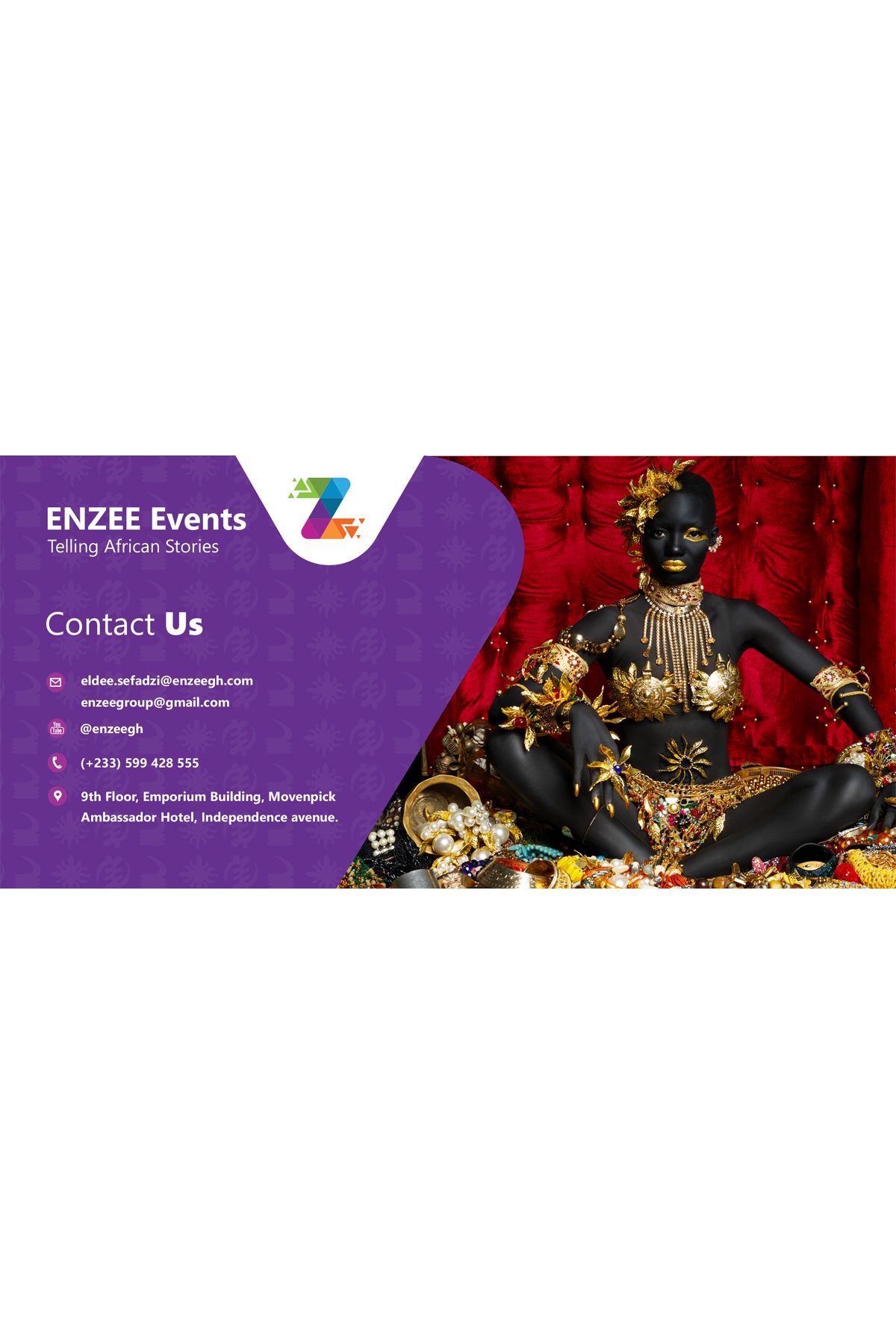
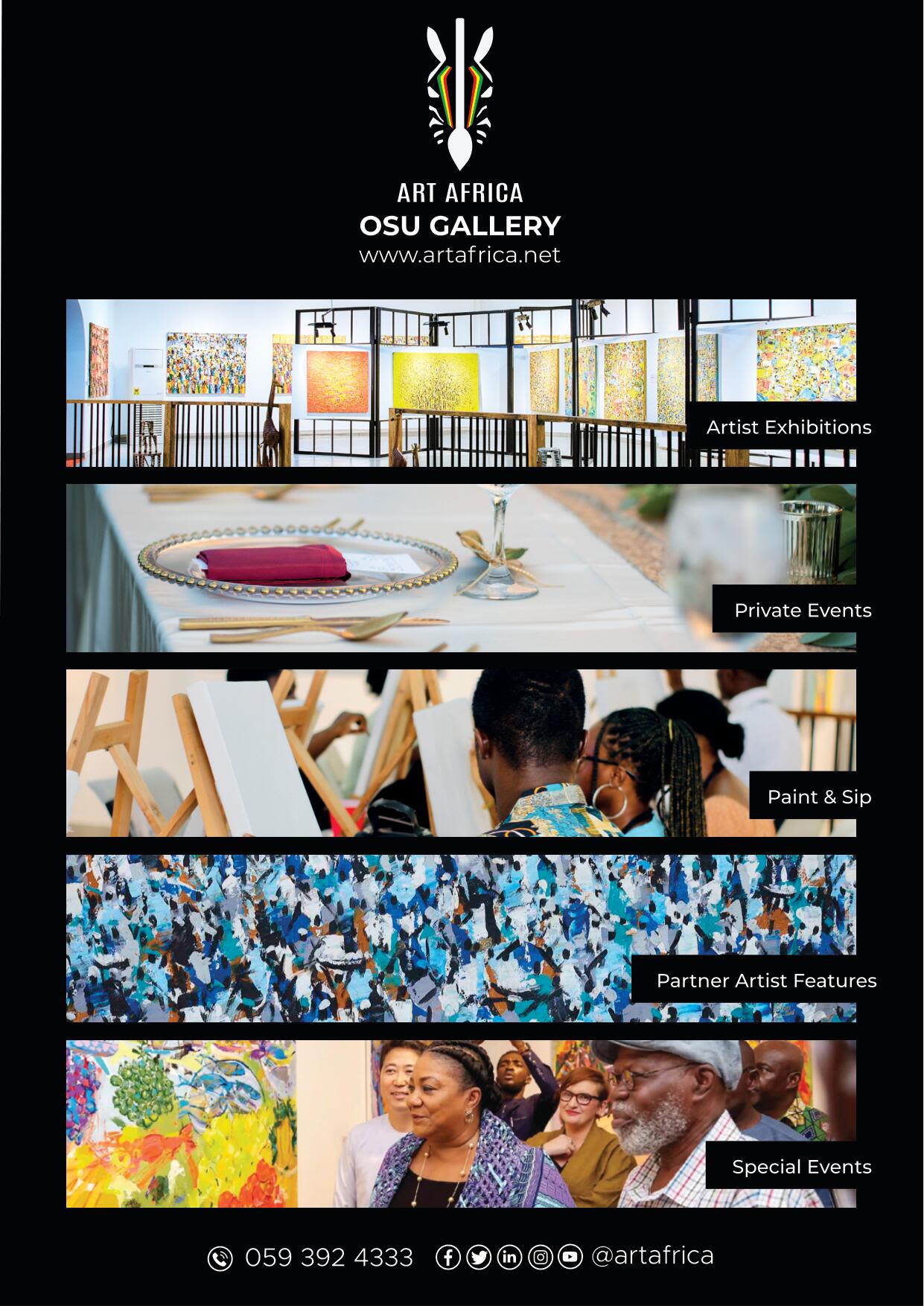
Introducing Hadithi: Home of African Poetry and Culture
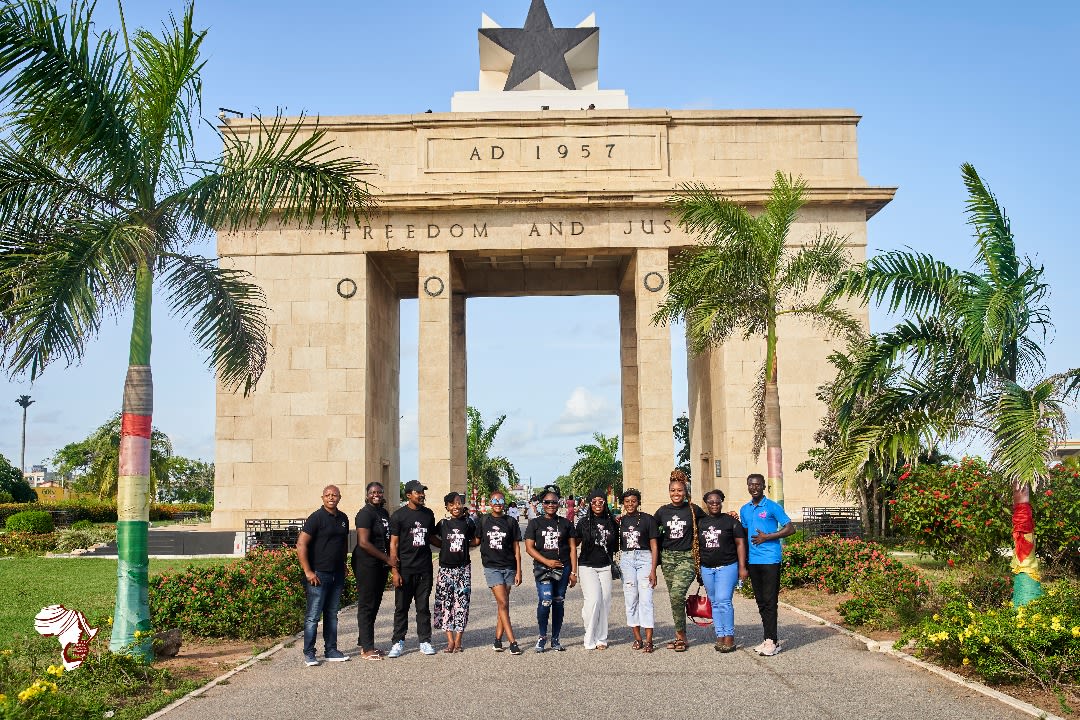
Right here on our continent, we celebrate words, art, fashion and culture harmoniously. Here, the rhythms of life echo through ancient landscapes and the voices of women resonate with power and grace.
Akwaaba to Hadithi, home of the All African Women Poetry Festival, where African stories come alive, woven through exquisite threads of poetry.
"Hadithi" means stories in Swahili. In this maiden edition of Hadithi, we invite you to embark on a literary quest where the voices of Africa are animated through the art of Poetry. As you peruse these pages, you'll discover a mishmash of festival aspects. You'll experience the festival's heartbeat through vibrant photographs, thought-provoking essays, articles and reviews, as well as intimate accounts that encapsulate the festival's essence, gaining insight into the poetic movements that shape the African literary landscape. In the spirit of gratitude, Hadithi extends its heartfelt appreciation to the sponsors who make this gathering of poetic minds possible. Their support and commitment to the festival's vision are showcased with pride.
Hadithi is more than a chronicle of events; it is a sanctuary for poets to paint emotions, articulate dreams, and narrate stories of resilience, love, and change. Here, in these pages you meet our guests in different facets – the Poet, the Person, and the Performer. Hadithi becomes a canvas where the diverse cultures of Africa converge, where languages intertwine, and where the spirit of unity is celebrated ...read more
About
Hadithi is an annual publication that seeks to be an informative guide to authentic stories about Contemporary African Writers and Poets, while shedding light on the stories of literary forebears whose works have significantly impacted generations. Hadithi captures the fashion, themes, upbringing, journeys, and aspirations or reflections of these personalities.
Hadithi sets the agenda and provides the roadmap for the future of Contemporary Poetry.
Hadithi encourages dialogue, sparks curiosity, and carries stories worth telling.
Hadithi sheds light on the stories and works of our literary forebears.
Hadithi celebrates the poetry in our colourful cultures – language, hair, fashion, food and lifestyles...read more
ESSAYS
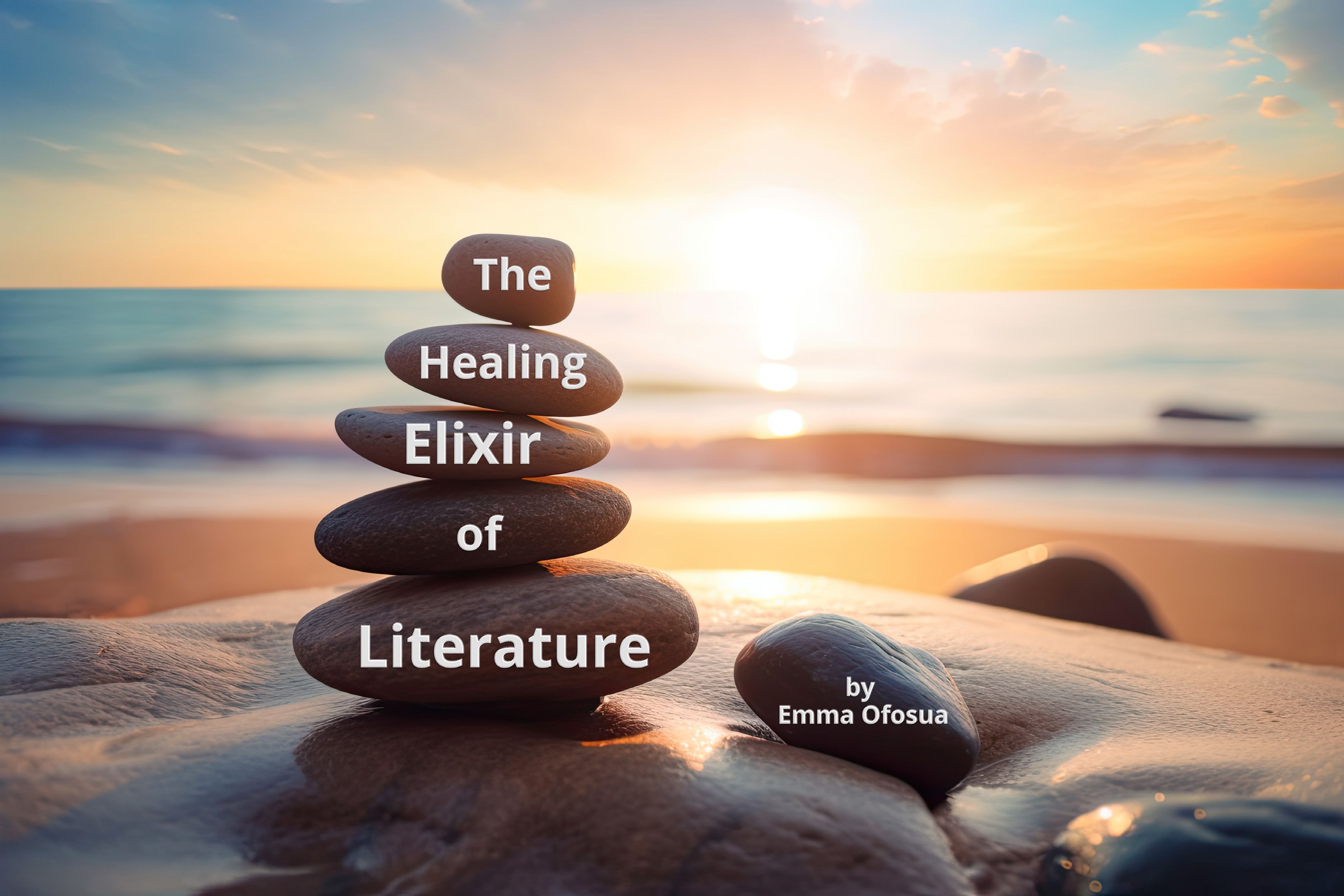
In the hallowed chambers of thought and emotion, where the delicate threads of existence intersect, literature stands as a luminous beacon of healing and solace. It is in the pages of a book, the lines of a poem, and the verses of a song that we find the therapeutic elixir that mends our wounded spirits, rejuvenates our weary souls and nurtures the garden of our minds.
Literature, with its power to transport us to distant lands and eras, offers a respite from the trials of the everyday world. It serves as a refuge where the burdens of our reality can be set aside, if only for a moment, and in that brief respite, healing begins. When we open a book, sit through an eclectic performance, or simply sip tea to a lyrically pleasing poetic arrangement, we embark on a journey into the boundless realms of imagination, where our troubles can be forgotten, our minds set free, and our hearts unburdened.
Words, carefully arranged on the canvas of a page, or brought to life on a live stage, possess the magical ability to articulate the inexpressible. When we read the lines of a skilled writer, we may discover our own unspoken feelings and thoughts mirrored in the text. This recognition is akin to meeting an old friend, a kindred spirit who understands our pain, our joy, our longing. It is a profound moment of connection, and it is through this connection that we begin to heal. In the embrace of words, we realise that we are not alone in our struggles, and the weight of our troubles lessens.
Literature also serves as a faithful guide through the complex maze of emotions. In the narrative arcs of novels, we witness characters grapple with their own demons, just as we do. We watch them rise above adversity, and we witness their descent into the depths of despair...read more
Programming Women Poetry for the Creative Economy in Africa

Growing up Ghanaian in the 90’s meant the only recognized professions for economic stability were white-collar jobs or specialised roles. Women’s work in the creative economy was not regarded highly. At best, it remained for them a passion project. This I believe is a key reason why women's voices and perspectives are often underrepresented in the creative industries. However, to harness the full potential of poetry in Africa's creative economy, it is imperative to reimagine agency in the context of empowering women's poetry as a force for tremendous economic transformation.
In 2019, during the outbreak of the Covid-19 pandemic, the creative arts played a crucial role in supporting mental health during lockdowns. According to a study by the U.K.'s Royal Society for Public Health, engaging with the arts was associated with a reduction in anxiety and depression during the pandemic. With people confined to their homes, there was a surge in demand for creative content and many young women tapped into and joined this wave. Streaming services, for example, saw significant growth. Netflix added over 15 million new subscribers in the first quarter of 2020. Virtual events, live streams, and online performances became essential for maintaining a sense of community and entertainment during lockdown. In every crisis, celebratory moments, moments of grief, or simply marking a milestone, creatives have been sought after to bring colour to occasions and entertain any given audience. In doing so, creatives have contributed immensely to the development of a viable economic sector. The creative economy is a dynamic and rapidly growing sector in Africa, encompassing a wide range of creative and cultural industries, including literature, music, art, film, and spoken word poetry. Now, the Ghanaian (and by extension African) parent is beginning to embrace this path for a career choice although the road is still very narrow. ...read more
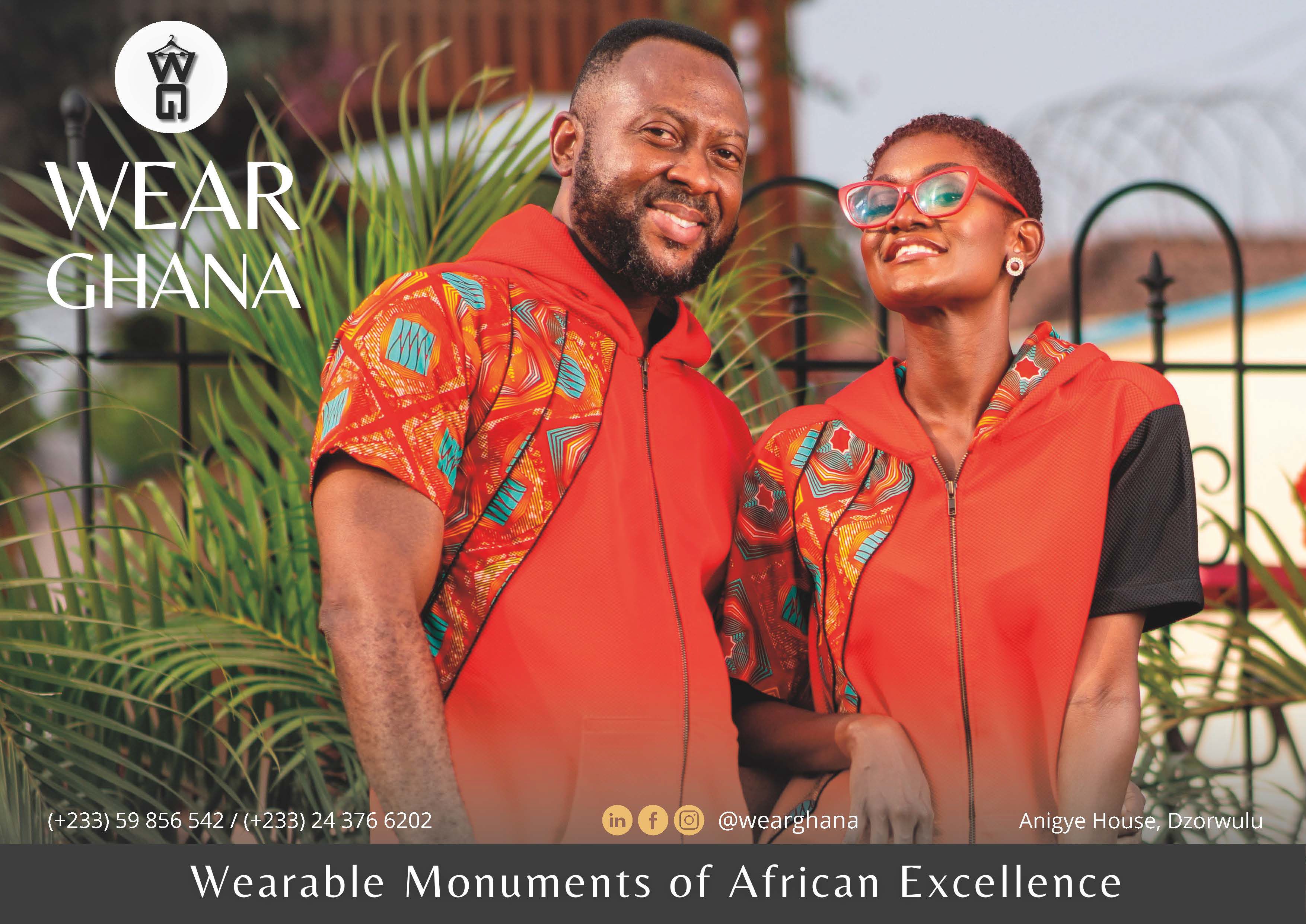
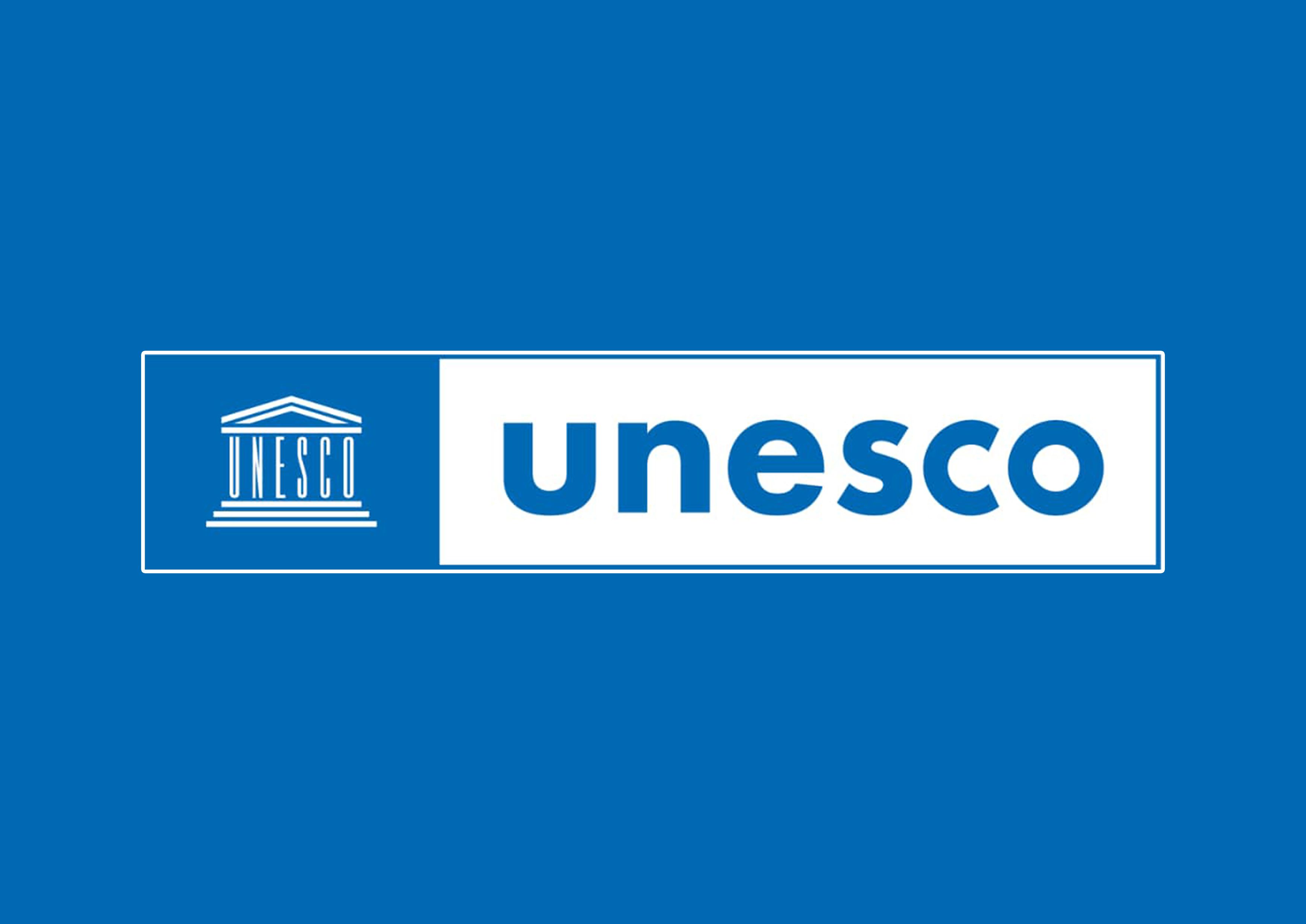
ARTICLES
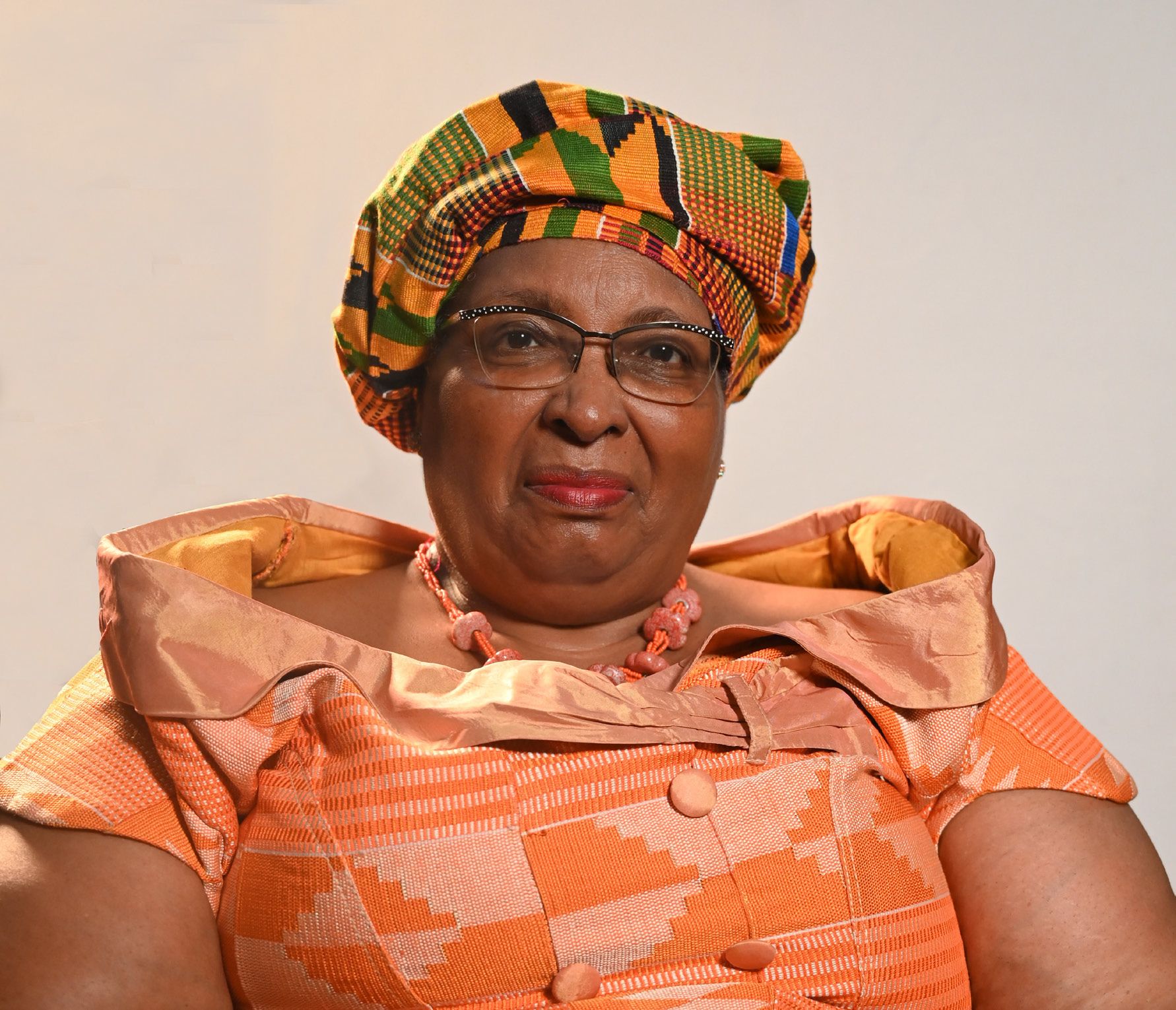
Professor Esi Sutherland-Addy: Leveraging the Legacy of Our Forebears
In the corridors of academia, some individuals shine as beacons of inspiration, guiding the next generation to seek their voices and make profound connections with their cultural heritage. One such luminary is Professor Esi Sutherland-Addy, an African Studies lecturer at the University of Ghana, Legon. Beyond her impressive academic career, Professor Sutherland has become an advocate for young writers to delve into their roots, building on the legacy of their forebears. Her passion for nurturing the voices of the future is not just a pedagogical endeavor; it's a profound commitment to preserving Africa's literary heritage.
The Legacy of Esi Sutherland-Addy
Professor Sutherland's journey into the world of African literature and culture began in her childhood. Raised in a family deeply rooted in Ghana's artistic and intellectual traditions, a love for literature and the performing arts found fertile soil. She was, after all, the daughter of Efua T. Sutherland, a renowned Ghanaian playwright, and children's author who played a pivotal role in the promotion of traditional African arts and culture in Ghana and beyond.
Esi Sutherland's legacy is not just a reflection of her mother's influence, but her own dedication to the study of African literature and folklore. Her work has encompassed extensive research, academic writing, and active participation in cultural events. She has championed her mother's vision, ensuring that traditional storytelling, drama, and oral traditions remain alive in contemporary Ghana.
Nurturing the Roots of Young Writers
As an academic and advocate for young writers, Professor Sutherland understands the importance of encouraging the younger generation to retrace their origins. She firmly believes that knowing one's cultural heritage and literary traditions is essential for the growth of any writer. This conviction forms the basis of her work in guiding aspiring writers, both within and beyond the classroom. ...read more
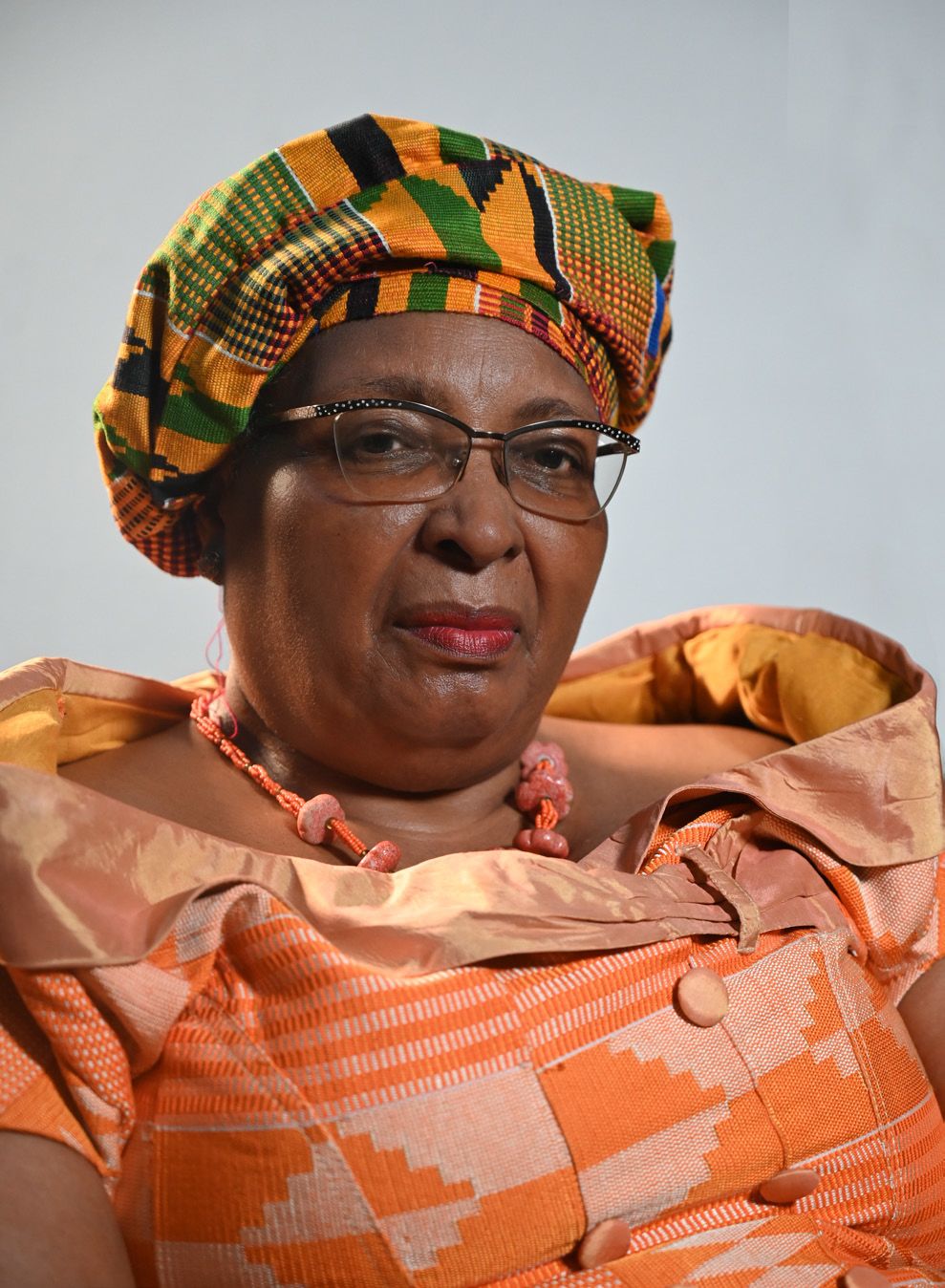
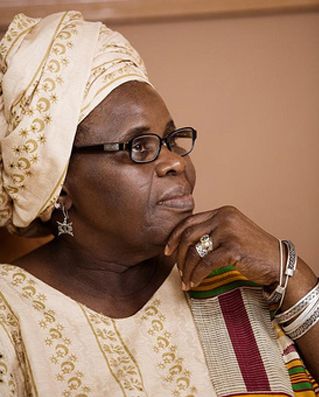
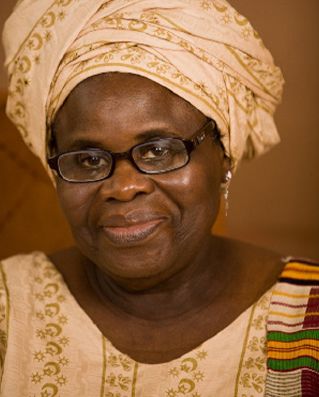
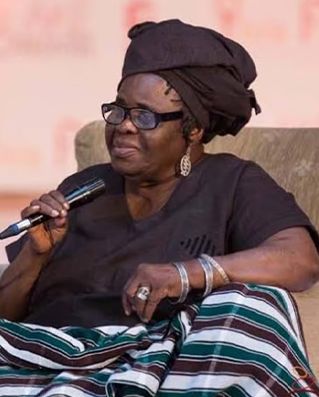
Ama Ata Aidoo: Life of Literary Excellence
Ama Ata Aidoo, a name that resonates deeply in the annals of African literature, stands as a shining example of literary excellence and a testament to the power of words. As we delve into the life and works of this remarkable woman, we not only celebrate her contributions to the world of literature but also gain insight into the enduring impact she has had on the African literary landscape.
Early Life and Education
Ama Ata Aidoo was born on March 23, 1942, in Abeadzi Kyiakor, a small town in Ghana. Her early exposure to storytelling and traditional oral literature, as well as her education in both Ghana and the United Kingdom, provided the foundation for her literary journey. Ama Ata Aidoo's upbringing instilled in her a deep appreciation for the power of words and their ability to convey the essence of African culture.
Breaking Literary Barriers
In 1962, she published her first novel, "The Dilemma of a Ghost," which was a groundbreaking work. It was one of the earliest and profoundly layered African novel which explored complex themes of identity, cultural clashes, and gender issues in the post-colonial context, by a trailblazer at best.
"Our Sister Killjoy" - A Feminist Masterpiece
Ama Ata Aidoo's novella, "Our Sister Killjoy" (1977), marked a significant point in her career. The story centres around a Ghanaian woman's journey through Europe and her reflections on the complexities of cultural identity, feminism, and colonialism. Ama Ata Aidoo's feminist stance and unapologetic exploration of gender dynamics challenged the prevailing norms of the time and inspired a generation of women writers. ...read more
Dr. Afua Ansong: Bridging Cultures Through Adinkra Poetry Prize and "Black Ballad"
Dr. Afua Ansong, an Assistant Professor at The University of Rhode Island and the founder of the Adinkra Poetry Prize, has etched her name in the annals of contemporary literature while simultaneously promoting the vibrant world of African and African diaspora poetry, with her poetic masterpiece "Black Ballad".
A Profound Journey
Dr. Afua Ansong's journey as a poet, educator, and cultural ambassador is as intricate as her verses. Born in Ghana and raised in the United States, she embodies the intersection of diverse cultural influences. This duality of experiences profoundly informs her work.
As an assistant professor at the University of Rhode Island, Dr. Ansong brings her unique perspective to the academic arena. At the just ended All African women poetry festival, Dr. Ansong co-facilitated a poetry workshop with Prof. Esi Sutherland for the Tabono Anthology. Her lectures, workshops, and mentorship makes it possible for students to explore African and African diaspora literature.
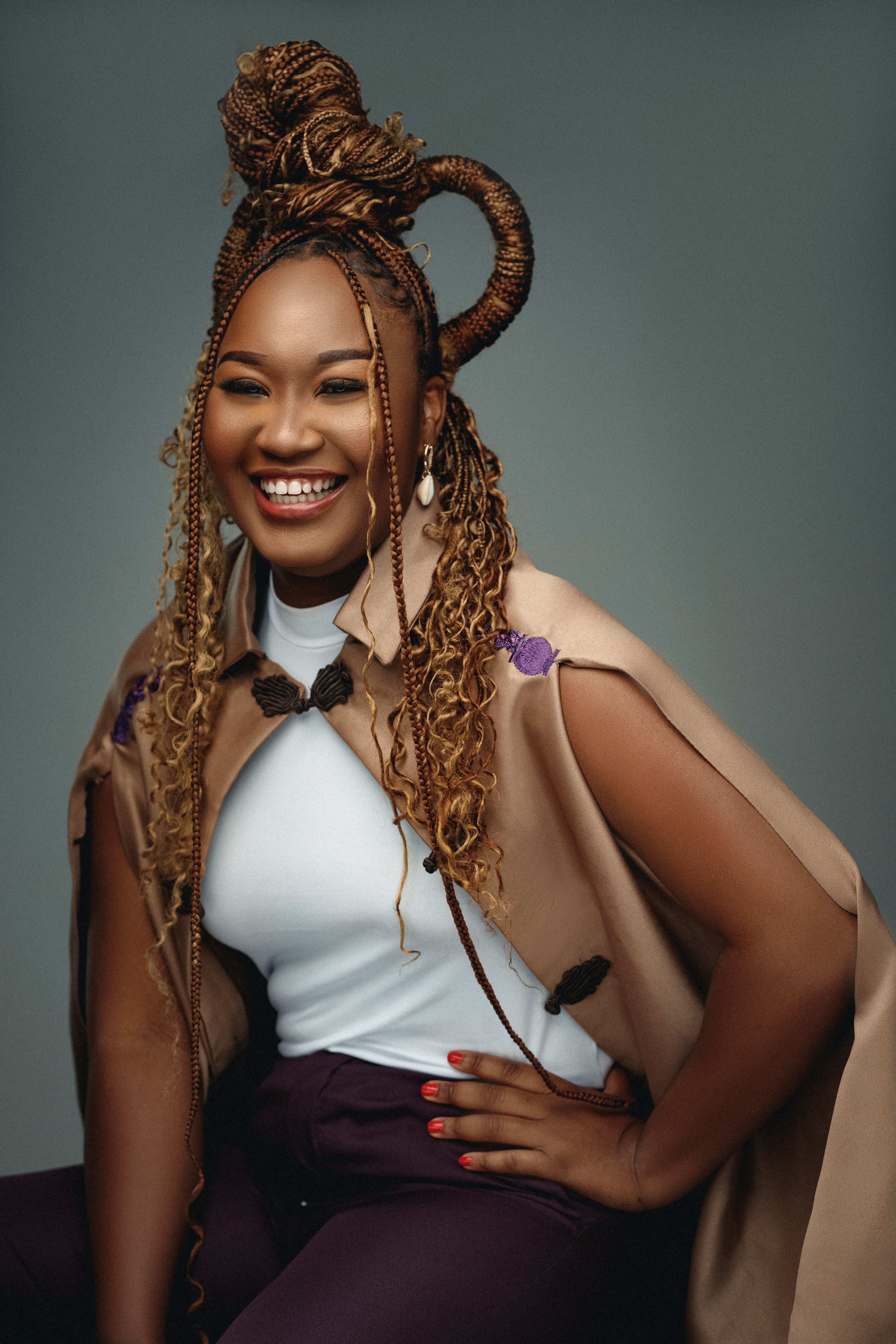
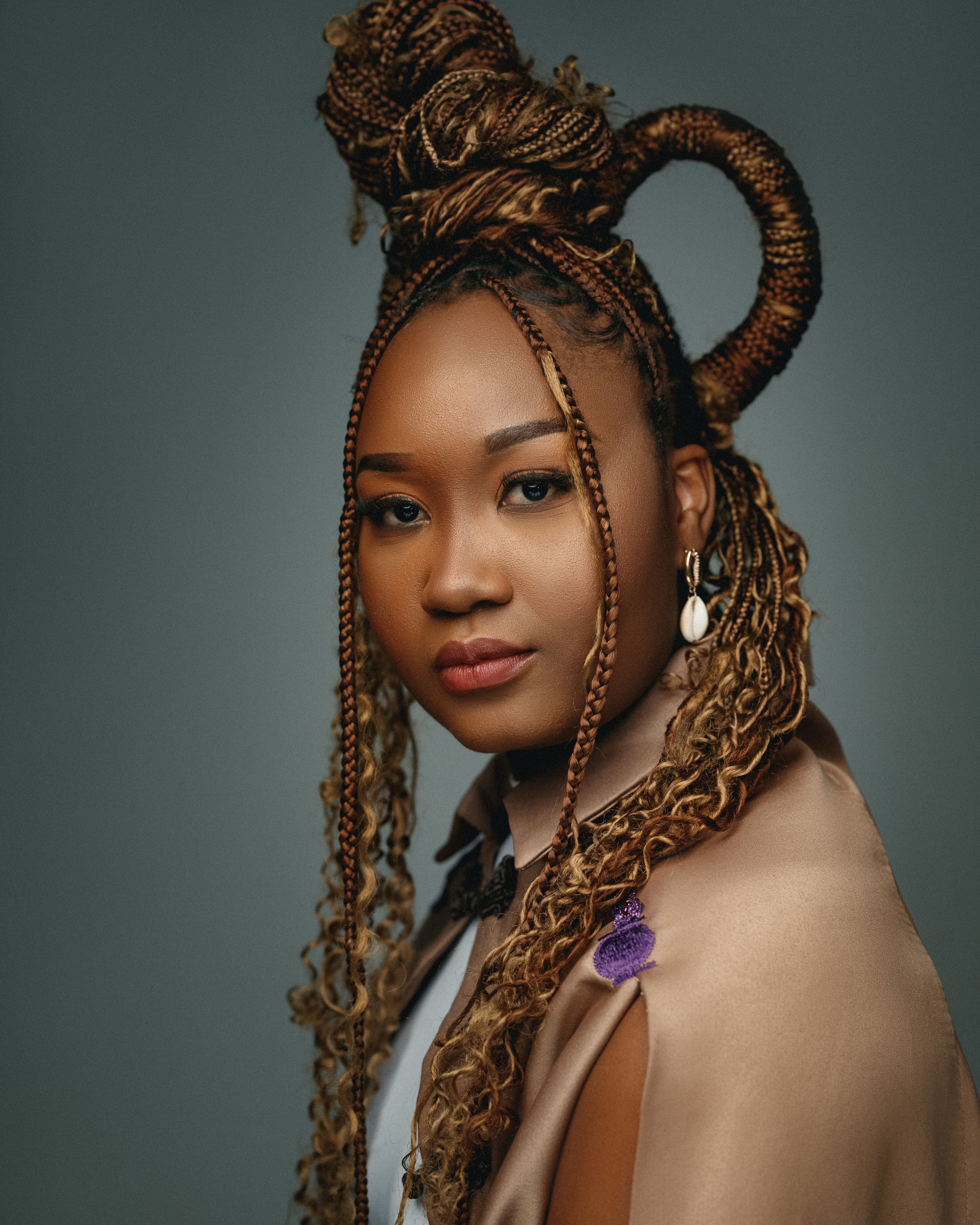
The Birth of the Adinkra Poetry Prize
Dr. Ansong's passion for literature and her commitment to celebrating African cultural heritage culminated in the creation of the Adinkra Poetry Prize. Named after the Adinkra symbols of the Akan people in Ghana and Côte d'Ivoire, the prize seeks to honour and support poets of African descent, particularly those exploring the complexities of the African diaspora experience.
The Adinkra symbols themselves represent a profound depth of meaning, often used in communication, storytelling, and cultural expression. Dr. Ansong's prize embodies these symbols, serving as a medium to convey the rich narratives and experiences of African and African diaspora people.
Black Ballad: A Poetic Masterpiece
Dr. Ansong's poetry collection, Black Ballad is an exploration of identity, heritage, and the interplay of culture. Her verses encapsulate the struggles and triumphs of the African diaspora, rendering them in poetic forms of beauty and grace.
Through Black Ballad, readers embark on a lyrical journey through the hearts and minds of individuals grappling with their place in a world that often misunderstands or marginalises their cultural identities. Dr. Ansong's work shines as a beacon of understanding and empathy, celebrating the nuances of African and African diaspora experiences. ...read more
A TAPESTRY OF VOICES
Exploring the Common Thread: Unveiling the Themes and Works of Contemporary Poets
If the world of poetry were to be fabric, each thread would represent a unique perspective, style, and theme. In the richness of contemporary poetry, we find a diverse group of poets whose words resonate with passion, wisdom, and a deep understanding of the human experience. Among these remarkable poets: Emmah Mabye, Amee Slam, Chioniso Tsikisayi, Poetra Asantewa, Stephany Ampofo, Apoirkor, and Emma Ofosua, there exists a common thread — a shared commitment to weaving the complexities of life into verse, addressing universal themes that touch the hearts and minds of their readers. ...read more
Emmah Mabye: The Elegy of Identity
Emmah Mabye, a poetic luminary, delves into the intricate mosaic of identity. Her works explore themes of self-discovery and belonging, reflecting the sentiments of many who grapple with questions of who they are and where they fit in. Through Miss Emma's verses, readers are invited on an introspective adventure, a journey where the poet's voice becomes a guiding star.
HM: Miss Emmah, you are one cute bundle of infectious joy. There is such power in your voice when the mic goes on. Tell us about the path to honing and owning this unique voice in a world where young black girls are cautioned to not be ‘loud” if they appear vocal and bold?
EM: Honing my voice took a very long time and a lot of introspection. I needed to find my why. Why am I doing poetry? Why do I want my voice to be heard?
At some point on this journey a lot of comparisons happened and I wished I could be a certain poet in order to get the same acclaim or accolades that they were getting. This was so bad that it came to a point where I wanted to quit poetry forever. I’m grateful that I discovered my “why.” That I can't be like another poet and to use what has been given to me uniquely.
HM: I find that your work delves into the intricateness of identity and a sense of belonging with tones of nudging your audience towards healing. Can you share what inspires you to explore themes of self-discovery, healing, and belonging in your poetry as seen in pieces like “dearest mother” and “unwritten code of conduct”?
EM: This ties in very well with my previous answer. Having had to do a lot of introspection caused me to sit and discover myself. Lived experiences and pain caused me to write pieces like “Dearest Mother” and “The Unwritten Code of Conduct”. It’s one thing to bemoan your situation, but at some point you need to work on healing. Writing these pieces and performing them gave me that healing. It’s been amazing to witness how much we share similar experiences as people and that these pieces could afford others that sense of relatability and healing to a great extent.
HM: Many individuals grapple with questions of identity and a sense of belonging and many more avoid themes of healing as it calls for introspection. How do you hope poetry offers guidance or solace to those who share these struggles?
EM: There’s an undeniable power of words. Poetry, whether spoken or written, has that power because it reaches those intangible parts of you. There are things which sometimes don’t hit us as they should and poetry (at times) is packaged in such a way that when these things are spoken or read about, that is when that you feel its impact — be it finding yourself in a text, acknowledging the wounds through imagery and healing through the words spoken, etc. I’m so grateful that poetry affords us this anywhere and everywhere; it can be in your home, a poetry show, there are really no limits to how far words can go.
HM: Poetry has a unique way of becoming a guiding star for readers on their own journeys. Could you tell us about your creative process and how you use your own experiences to find your way back to yourself and illuminate the path for your readers? ...read more on
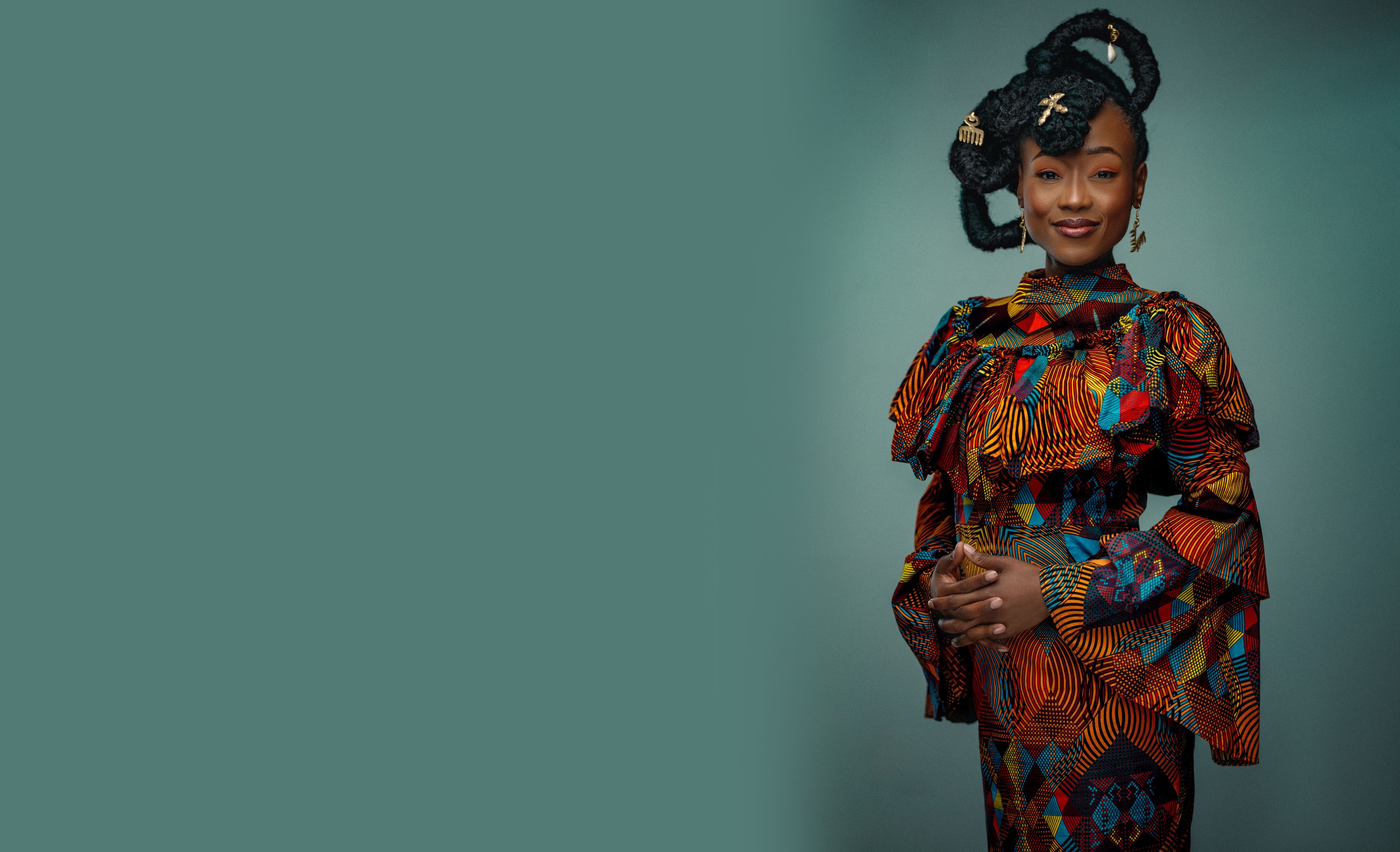
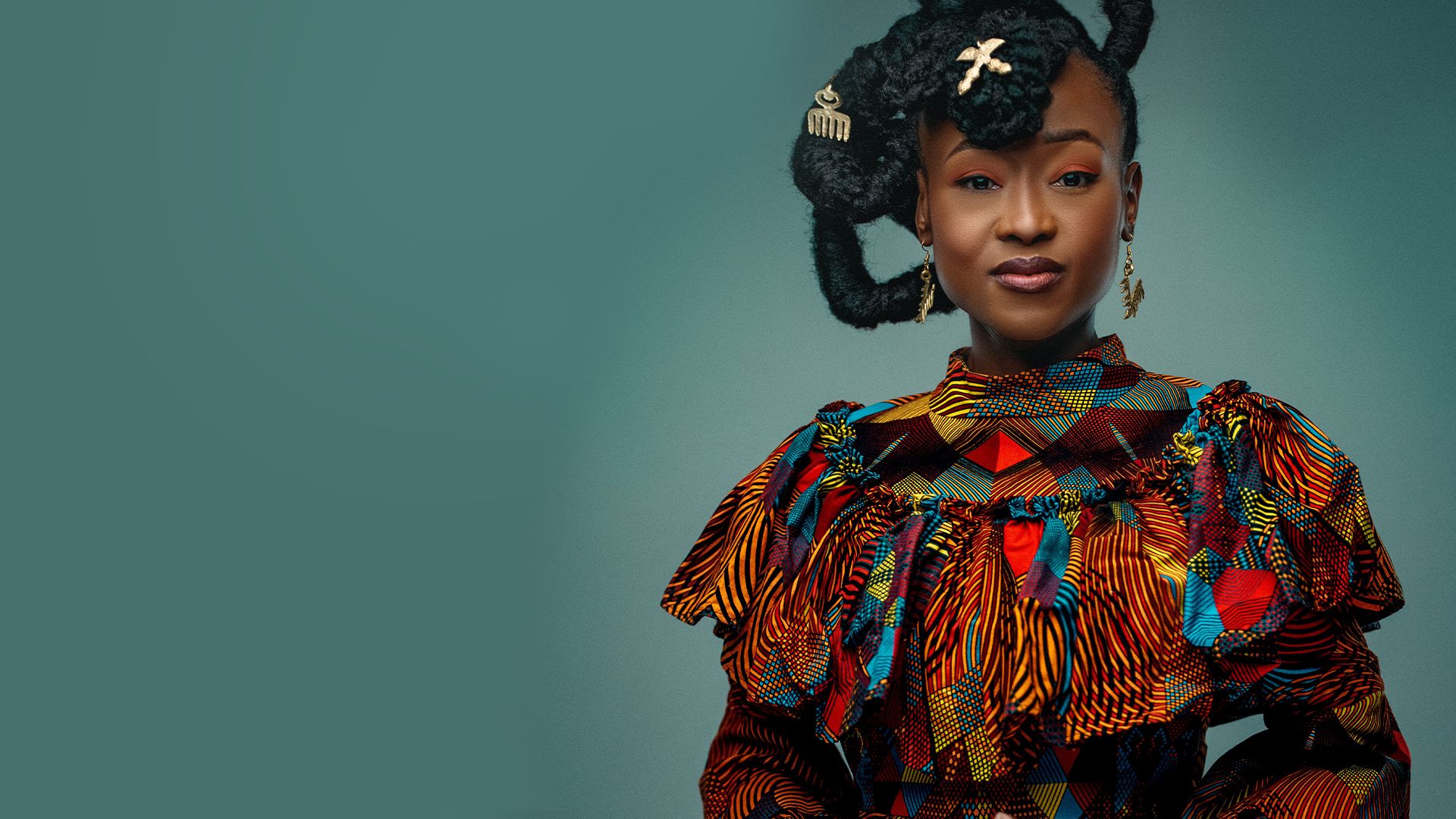
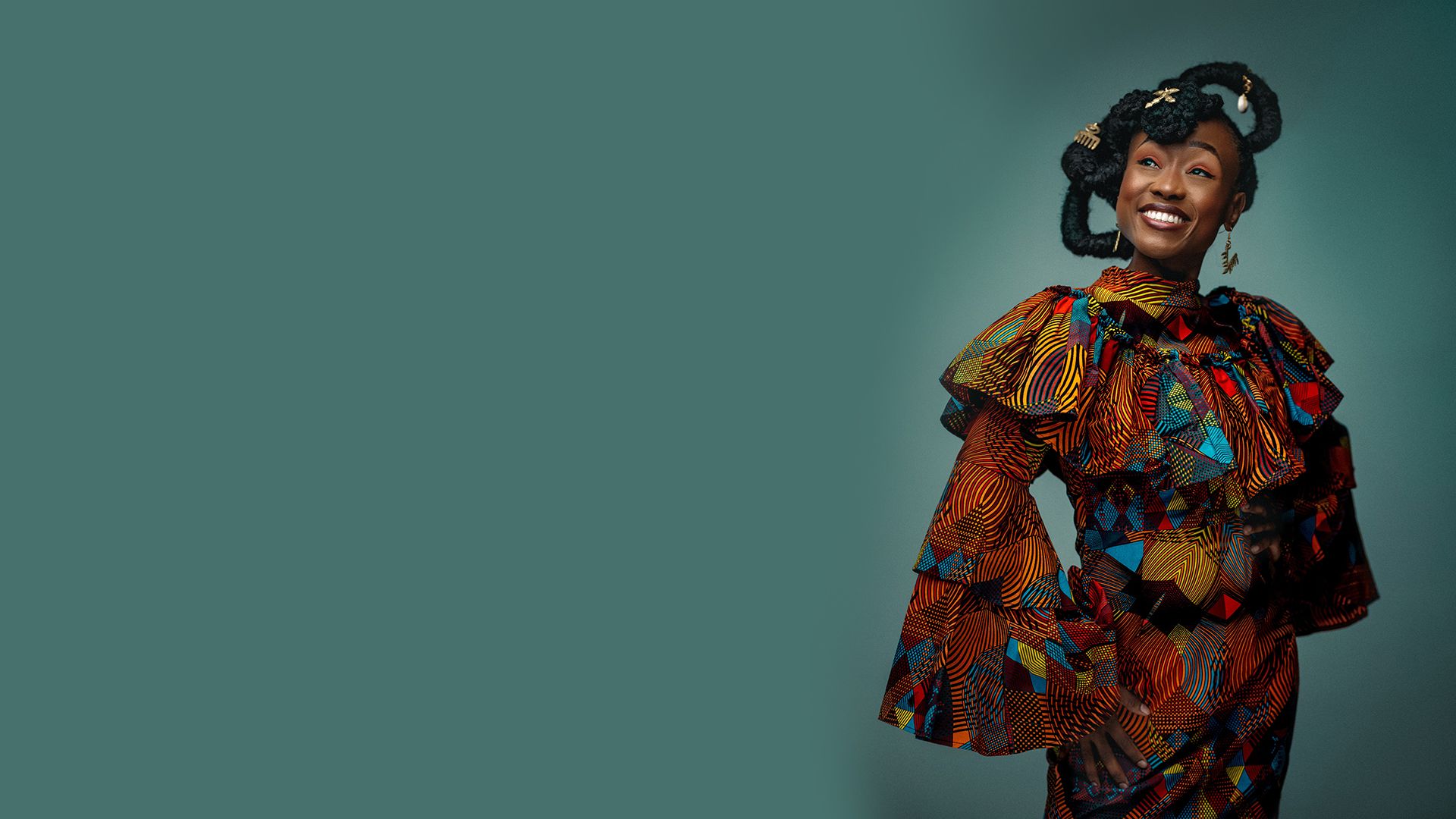
Amee Slam: The Rhythms of Resilience
By Fui Can-Tamakloe
When Amee Slam graced the stage at the recently concluded All African Women Poetry Festival, her presence exuded an undeniable spirit of resilience coupled with a high level of showmanship. She shared, "It was a real pleasure to take part in this adventure and to be on the festival’s stage. In ten years of practice, with my association 'Collectif Au Nom Du Slam,' we had a difficult journey in an environment which was not favourable to slam poetry and where everything had to be done with very few resources. We learnt resilience through fighting."
Amee Slam's journey with performance poetry has been a testament to her unwavering dedication. She emphasized how her career as a poet is in a constant state of rebirth, always striving to expand the audience for poetry. She added, "Seven prizes acquired over the journey bear witness to the journey and accomplishments."
Despite her verses predominantly in French, Amee Slam bridges the cultural gap between her poems and her audience by ingeniously navigating the linguistic barrier. She shared how she does this. "In environments where my language of communication is not understood, I highlight performance and emotion which is a universal language." Her performances are a sensory experience, combining singing, traditional instruments, and dance to engage audiences beyond linguistic barriers. Furthermore, her experience at the All African Women Poetry Festival spurred her to translate some of her works into widely spoken languages like English and Spanish, ensuring her message transcends language.
In her verses, Amee Slam passionately echoes the stories of strength and the unwavering pursuit of dreams, particularly for women and the girl child. Her portrayal of resilience is deeply personal, rooted in her own experiences and observations of the sacrifices women often make for others. Being the eldest in her family, she quickly shouldered responsibility, a role that taught her resilience in the face of challenges. She reflected, "In our cultures, women are often pushed to sacrifice everything for others by forgetting themselves, erasing their suffering and their feelings. I lived it, I saw it, I heard it."
The central theme of Amee Slam's work lies in the transformation of struggles into triumphs. Her approach to this
transformation is grounded in a belief that one must either fight and move forward or risk languishing. Her message is diverse and authentic, embodying the essence of freedom, sincerity, and authenticity. She emphasised, "Either we fight and move
forward or we give up and languish. Since we don't have many choices to see a better life, we fight, we do it with pleasure as much as we can to enjoy the experience that life presents without feeling like we're missing out."
Through her poetry, Amee Slam serves as a beacon of hope for those who have faced social adversity. She offers vivid portrayals of resilient individuals, sharing their experiences and emotions to illuminate the process of overcoming challenges. "I have texts that talk about resilience by explaining how people who are resilient behave on a daily basis, what they experience in reality
and what they feel, so that the audience who listens to me can understand the process of being like these people." ...read more on

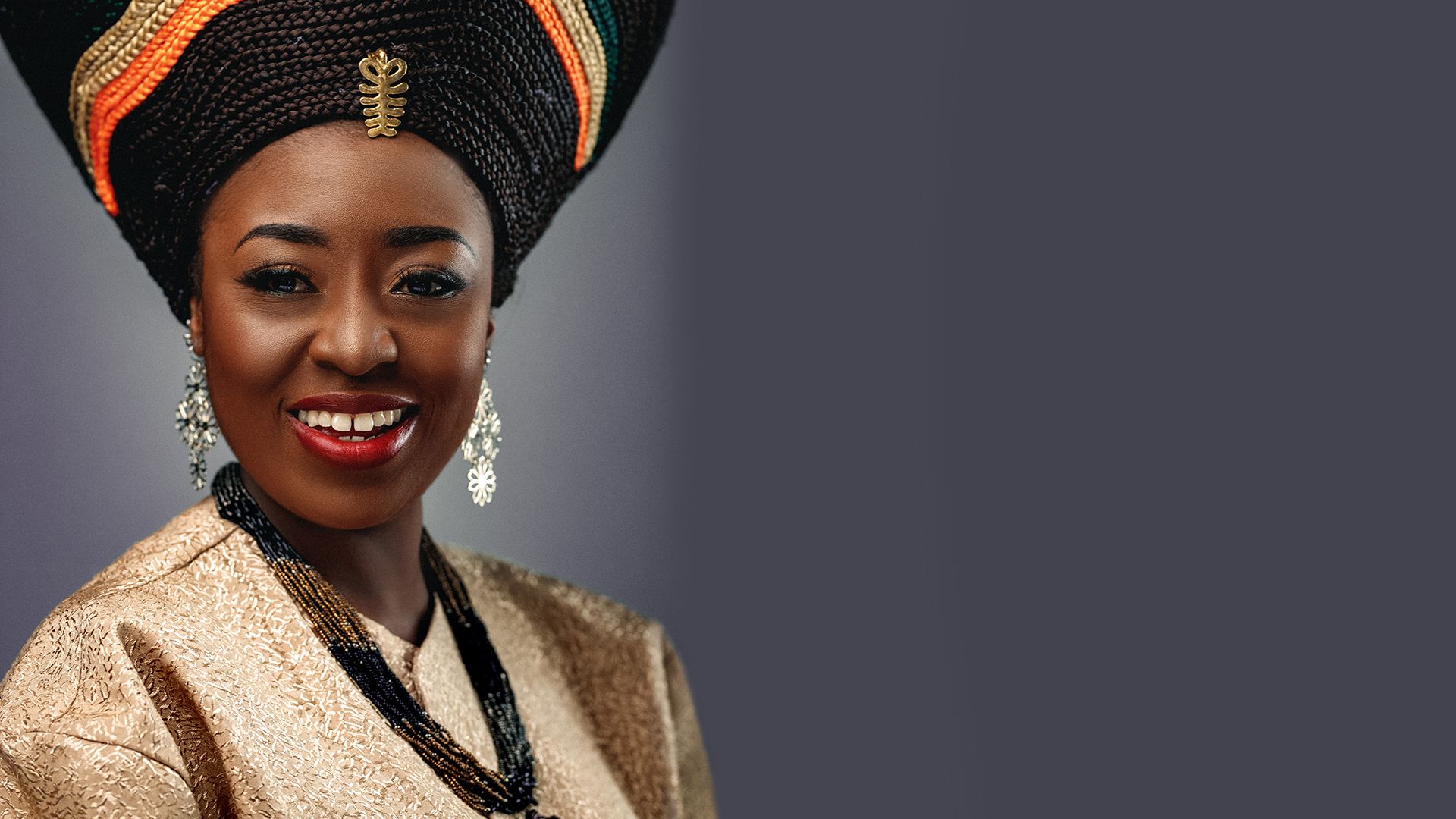

Apiorkor: Love's Melodic Reverie & the Future of Verse Journalism
Apiorkor's poetry is a lyrical journey through the landscapes of love. Her verses resonate with the heart's desires and the complexities of human relationships. Apiorkor's work beautifully captures the melodies of love, from its sweet harmonies
to its melancholic refrains.
HM: Your poetry is what I'll describe as a lyrical journey through the landscapes of love, sensuality and life, leveraging verse journalism. Can you share what draws you to explore these themes in its diverse expressions, and how do you approach capturing its complexities and nuances in your verses?
AA: Considering the fact that I write Verse Journalism, there is an element of the non-fiction writing practice that finds its way into my work. There are also journalistic approaches that I tend to use. I have a list of topics that I believe I must write about. I constantly add on to the list, so that they always serve a quiet, yet very loud source of inspiration.
The next step is to pick one topic at a time and develop a sketch for what you are aiming to write. This could include quotes, pictures, single words, drawings, wholesome lines that you have already written, research links, notes from field visits, names of people who define what you would like to communicate, scenarios, you name it!
I usually put all of this into a Google Doc and then I build my piece of writing, by moving the ideas and elements around - sort of like doing a puzzle or a Rubik's Cube. When I have a clear sense of what the final work should look like, then I transfer all of
the “chaff” and extras to another Google Doc, which serves as an archival page of sorts. Then I clean the piece up - this could take minutes, or months.
It’s a beautiful process, especially when you work your actual writing time into your daily/ regular schedule. You cannot treat your writing like the stepchild of a terrible step-parent. It must be approached with seriousness and tact.
HM: Congratulations on the successful launch of your recent publication, When The Person Who Is Called COVID Came. Love is a source of endless inspiration for poets. In this collection however, I observe the verses capture the theme of love in a different light, it beautifully captures the melodies of love, from sweet harmonies to melancholic refrains. What would you say are the new horizons you hope to explore in the realm of love's melodic reverie?
AA: Thank you for your kind words!
I think that society often views Love, from a one-dimensional perspective. We expect Love to be beautiful and simple. Even where there are challenges, we would expect those challenges to be easily surmountable. However, Love is a human emotion and the mere fact that it is attached to humanity makes it complex. I choose to depict the spectrum of Love, because that is its reality. Love can be angry, sad, conflicted, uncertain, painful, turbulent – just as it can be joyful, tranquil, defined, rosy, and so on.
People are often disappointed in Love, because they are socialized to believe that a great Love should only be beautiful. My work explores the idea that many times Love is beautiful, even in its ugliness. If we cannot see the beauty in an ugly Love, then perhaps it is not Love and should not even be entertained, in the first place.
HM: In a world where digital media is transforming the way we consume information, how do you foresee verse journalism adapting to new technologies and platforms to reach a wider and more diverse audience?
AA: I think that the sheer storytelling power of the digital media space makes it a great tool for the dissemination of work that is Verse Journalistic.
However, Poets/Writers should not water down the depth and potency of their work, in the name of catching a digital media wave. The artistry and commentary should still be sharp and deliberate. Above all, the use of digital media, if leveraged effectively, can amplify astronomically, the effects of Verse Journalism. ...read more on
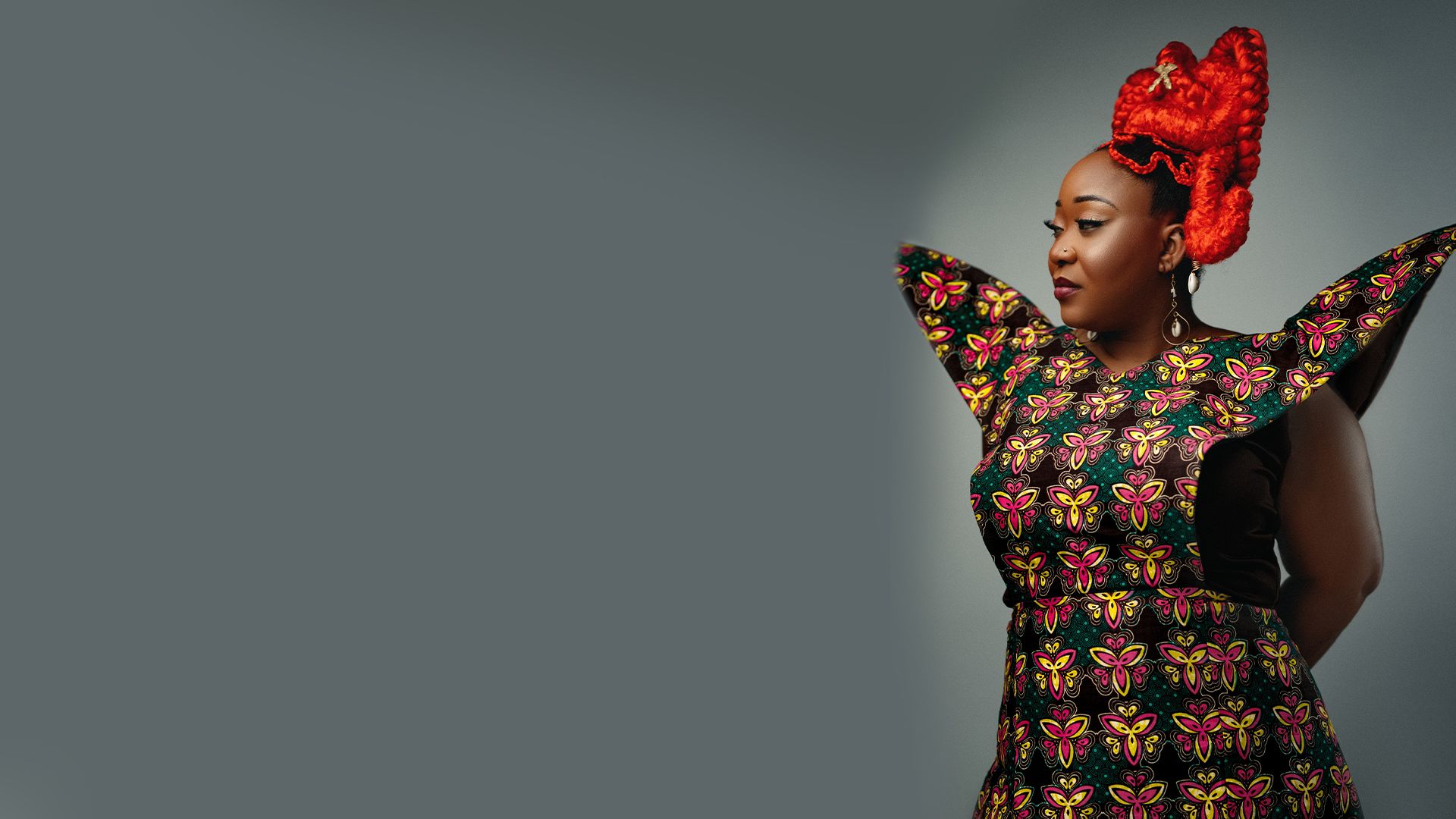
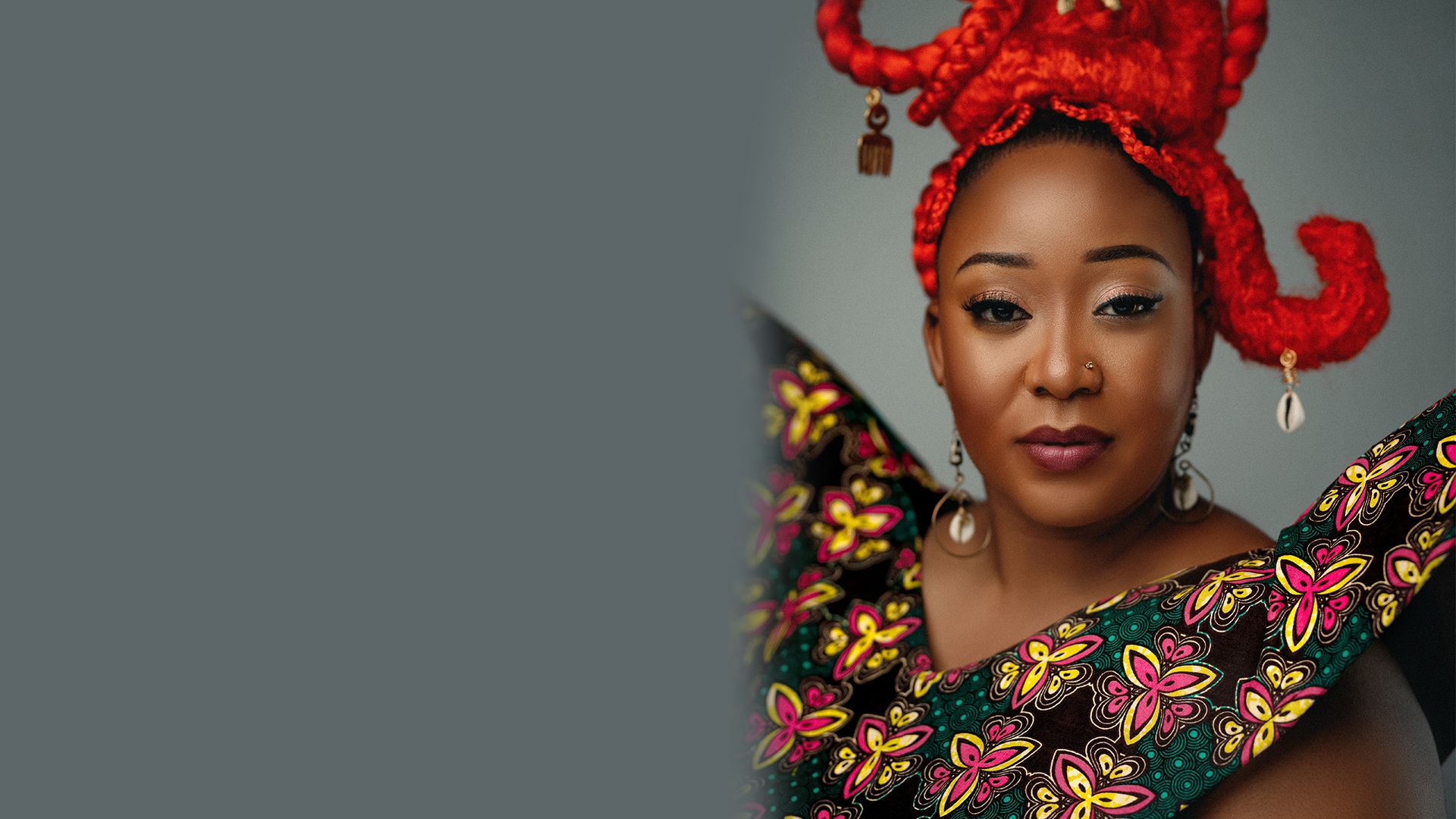
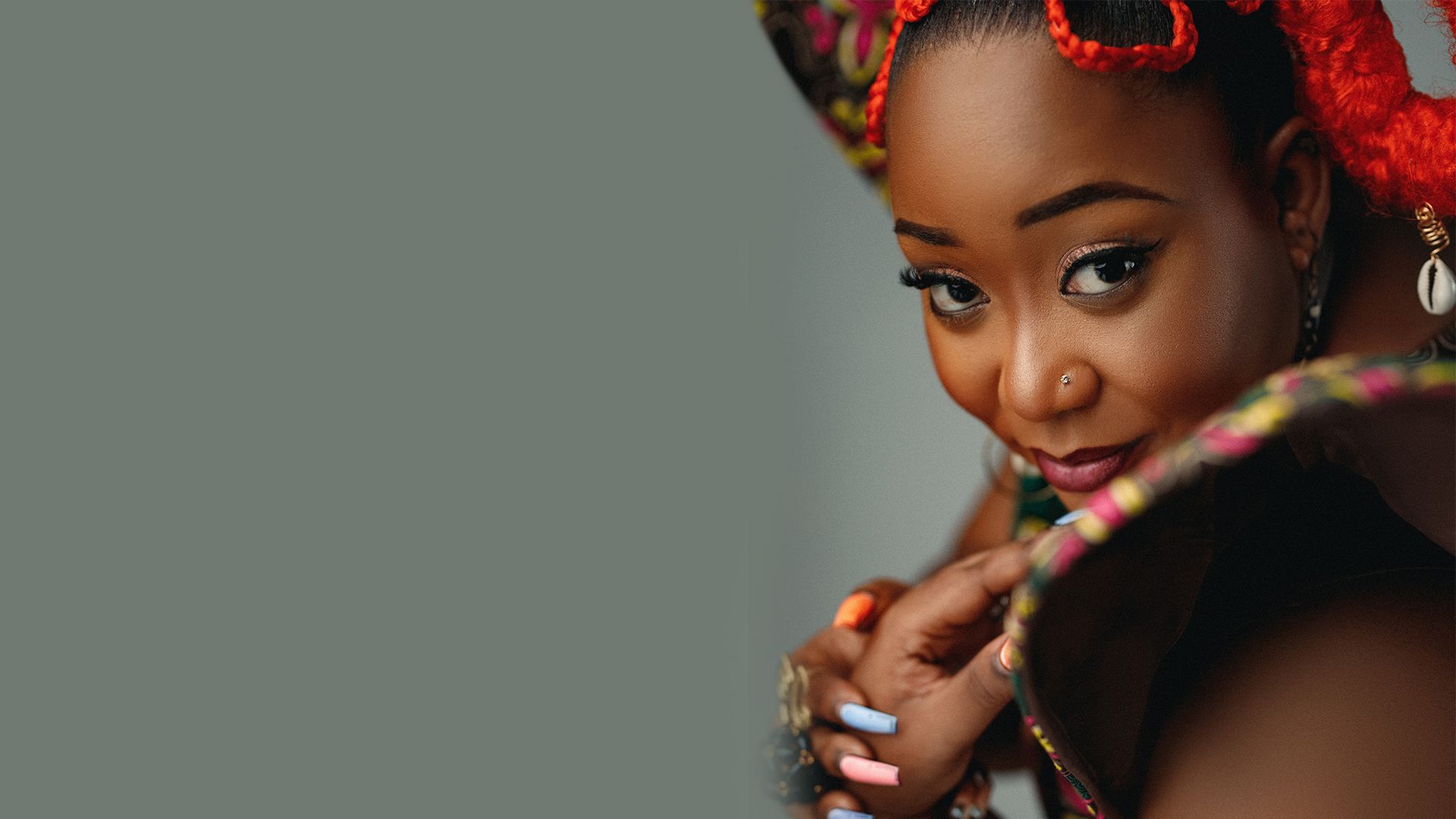
Stephanie Ampofo: On Empathy and Poetry
By Fui Can-Tamakloe
Stephanie Ampofo, a rising star in the poetry scene, brings a unique perspective to her craft. Her words resonate with a passion, reflecting the depth of her dedication to the art of poetry.
Stephanie vividly recalls the moment when she decided to fully commit herself to writing and performing poetry. "It was like a spark inside of me waiting to come out," she reflects. "I remember being in my bedroom looking in the mirror boldly, full of passion the night before my first poetry performance. It was that moment I knew I was ready to give poetry my all and never look back."
One common misconception about poets is that they exclusively write about themselves. Stephanie challenges this notion, emphasizing that "words give you liberty to explore yourself as an individual, and also to use your imagination to put yourself in many shoes."
Stephanie’s ability to step into the shoes of others is a hallmark of her work. She recounts an impactful moment when she wrote a poem for a charity launch. "I was given a breakdown about the mission behind the organisation and I was able to connect and write a poem instantly," she recalls.
Unlike some creators who adopt alter egos for their artistic side, Stephanie finds that there is a discernible difference between her on and off-stage personas. "When I’m on stage I tap into a whole new element," she explains. "I'm still the same person, however, the passion inside me comes out differently. It’s almost like tangibly experiencing the poem I perform."
Stephanie believes that a poet can write an effective, emotionally evocative poem even if they don't have a personal connection to the subject matter. She describes this versatility as "the beauty of art poetry," allowing artists to "explore and connect in diverse ways when it comes to writing." While some poems draw from personal experience and carry deeper emotional weight, Stephanie insists that there are no boundaries when it comes to expressing beyond one's comfort zone.
Addressing the oft-repeated advice to "write what you know," Stephanie acknowledges its validity but adds her own perspective. "Sometimes it’s okay to play it safe," she notes. "But for me, there are certain themes and topics I tend to strive towards when I’m creating poetry. That’s because I go through different seasons in life, but one thing always remains constant, and that’s keeping a positive mindset in everything I do!" This positive outlook shines through in her motivational and uplifting poetical pieces.
In Stephanie Ampofo's poetry we see the power of empathy and imagination. Through her words, she invites readers and listeners alike to step into different worlds, to feel deeply, and to find inspiration in unexpected places.
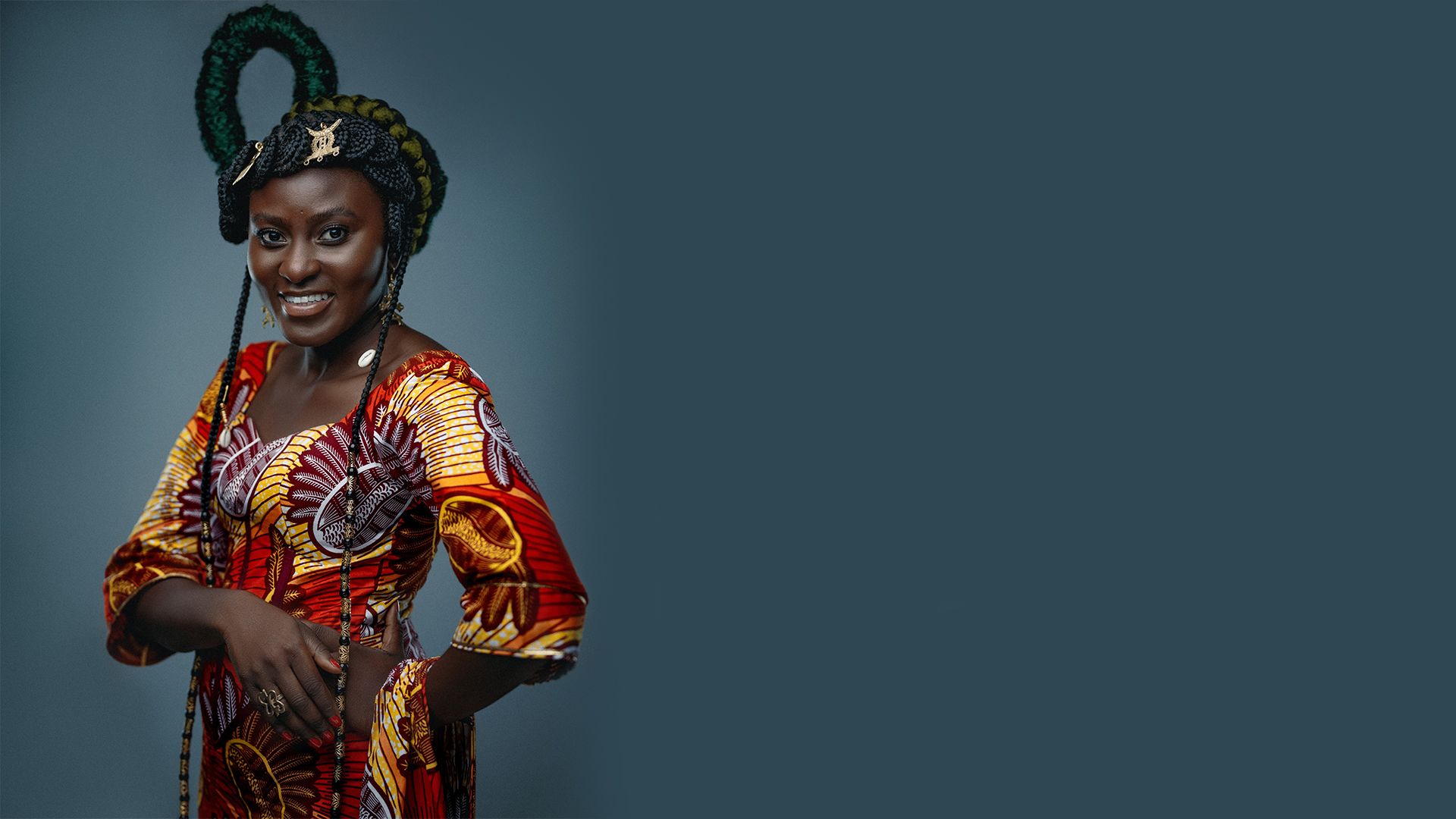
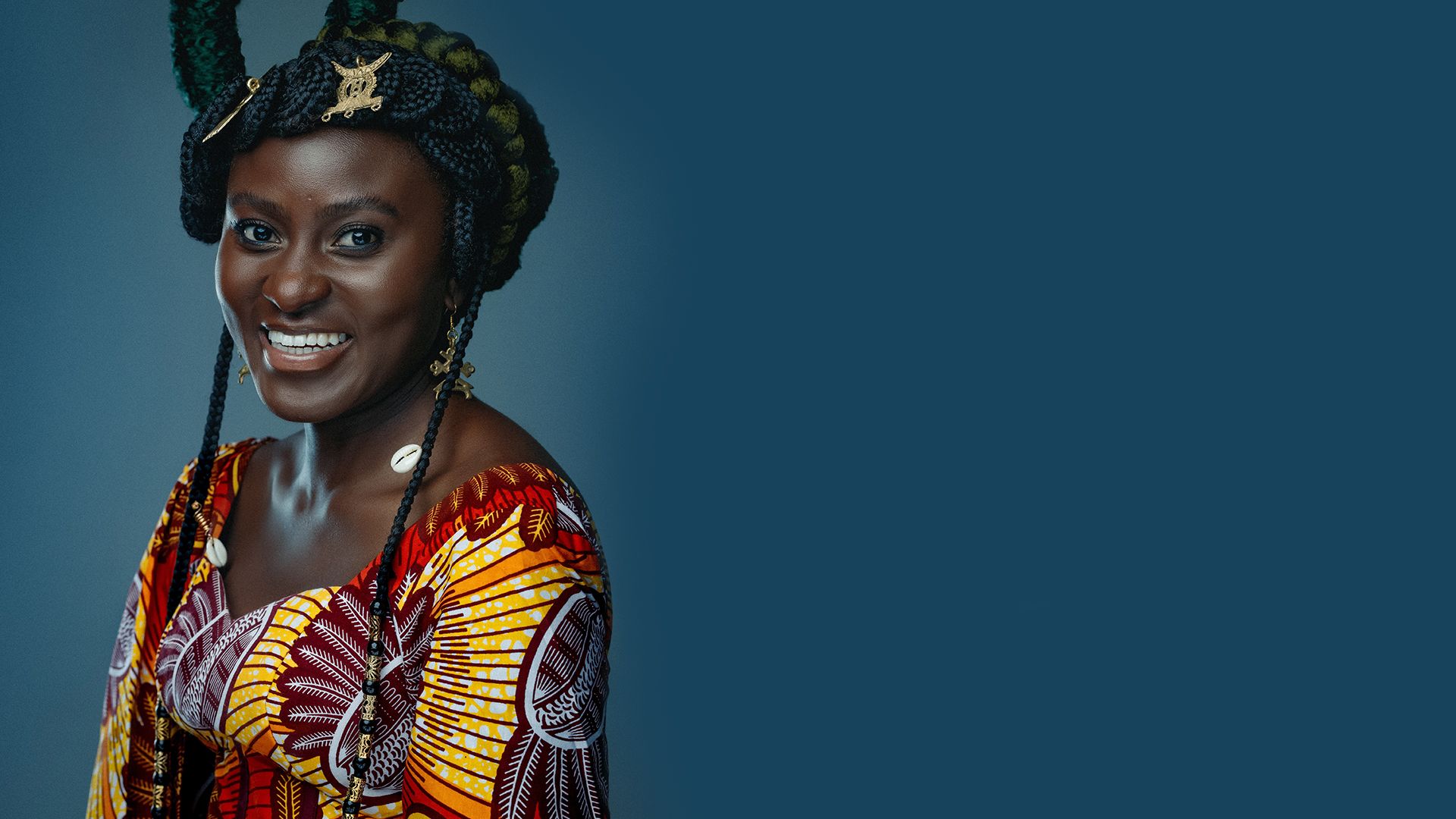
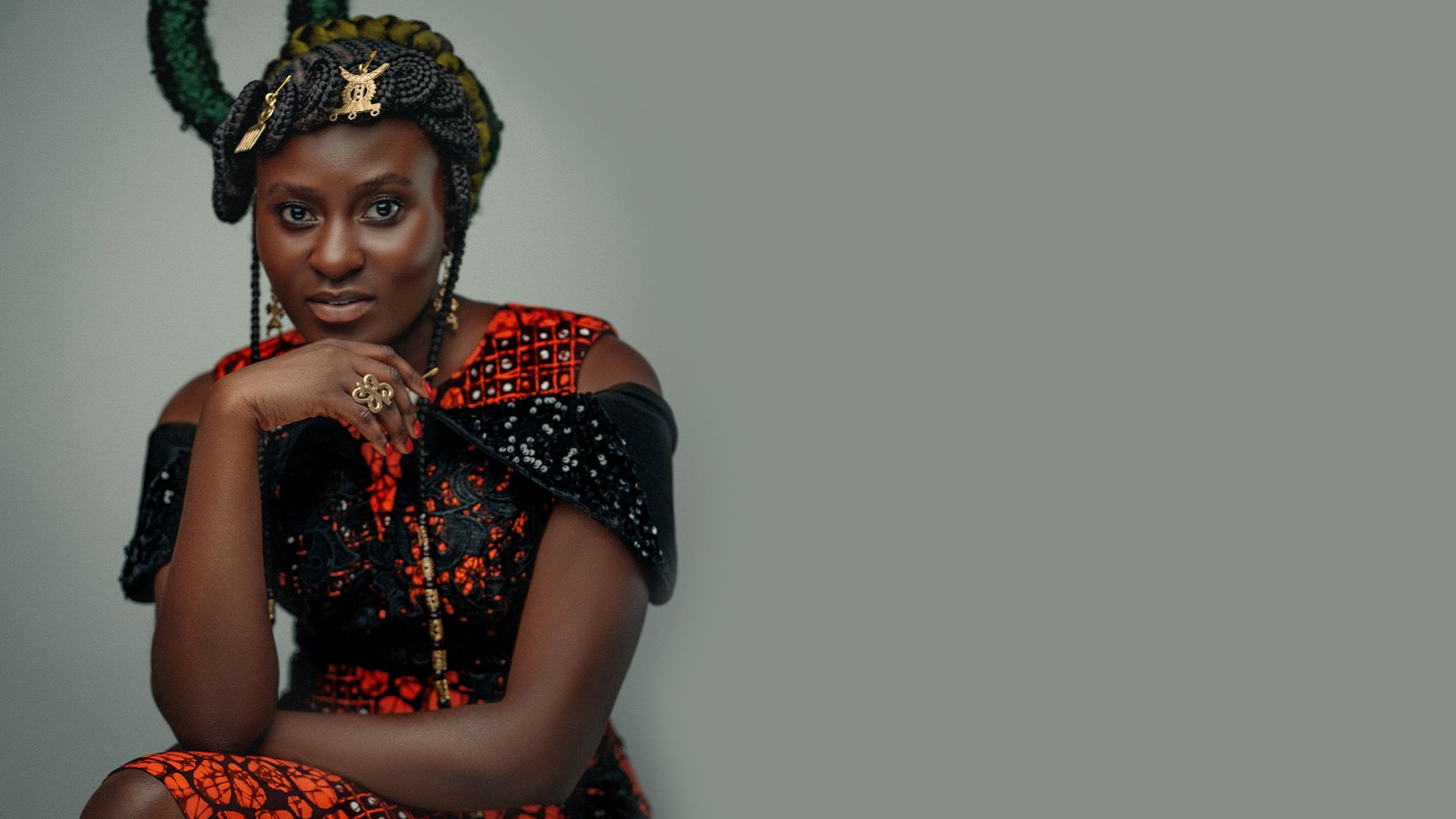
Chioniso Tsikisayi: Play in Poetry
Chioniso Tsikisayi, is a poet of no small skill, Her poetry is a source of endless inspiration. She manages to bring a playfulness to serious conversations and maintains a calming confidence in doing so. Through Chioniso’s performances the audience are invited to experience joy and allowed to be vulnerable while staying in a playful mood.
HM: What are your favourite fun poems? Which poets or poems feel like refreshing recreation to you?
Chichi: Maya Angelou’s Still I Rise is a poem that speaks to resilience in times of injustice but there’s a particular video of Maya Angelou performing it that makes it feel very fun, fresh and playful. It’s easily one of my favourites. “Does my sexiness offend you? Does it come as a surprise that I dance like I’ve got diamonds at the meeting of my thighs? ” I’m enthused by the levels of confidence those lines inspire in a woman, simple and yet assertive. You can tell she’s having a good time and her audience soaks in all that beauty and light too.
HM: How important is it to you that the writer and/or the audience enjoy poems almost like the way one would enjoy a game? What does an engaged audience look like to you?
Chichi: Anytime you respond to an undertaking as great as being a performer you’re opening yourself to being vulnerable, to experiencing feelings of nervousness and anxiety. So, joy as an ingredient to the wholesomeness of our lives is essential. On and off-stage. Especially when we have to dissect painful truths. The healing comes in the laughter. The sweet release comes in knowing that we are not alone in facing certain traumas. Therefore poetry being enjoyed as a game, alludes more to the idea of participation. That both the writer, poet
and their readership or audience are engaging with each other; are participating in the art of expression. And that it’s not a competition but more of a collaboration. An engaged audience is either so engrossed in the delivery of your words that people find themselves literally stunned to silence or so moved by your emotion they meet you with cheers and “hmms”, and snapping of fingers. I think generally audience reception is dynamic and comes in many textures, shades and colours because every audience is different and each audience will respond differently to different poets and their respective subject matter.
HM: What do you feel when you execute or consume good wordplay? How do you think wordplay enhances or detracts from the impact of poetry?
Chichi: The execution or consumption of good wordplay feels cool for lack of a better word. It’s just one of those scenarios where you’re in awe of the human mind and how far you can stretch the boundaries of imagination if you just give yourself permission to be creative. I think wordplay is effective when used to draw attention to something important or create shock value but too much of it can also make your work redundant, reducing it to a collection of clever punchlines. Whatever message you want to communicate then gets lost in translation. So like everything in life, moderation is key. ...read more
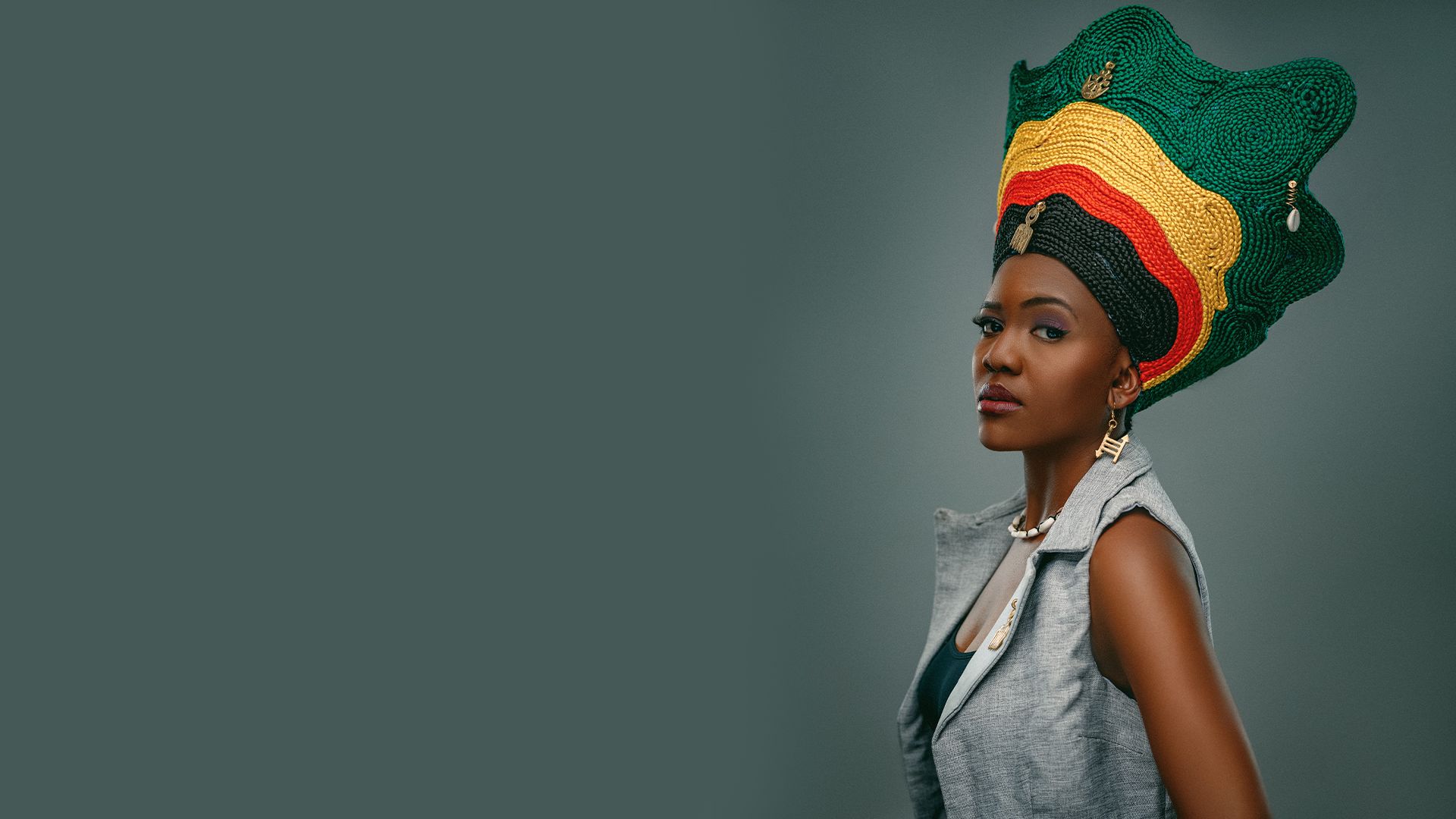


Poetra Asantewa: The Echoes of Womanhood
Poetra Asantewa's poetry is a poignant ode to womanhood. Her words resonate with the experiences of women everywhere, giving voice to their joys, sorrows, and aspirations.
HM: Your poetry in your debut full-length collection “Woman Eat Me Whole” is what I'll describe as a poignant ode to womanhood. Could you share with us what inspires you to explore this theme, and how do you hope your work resonates with women from across cultures?
PA: My answer to this question is always simplistic. WEMW revolves around womanhood because I am a woman. It is a perfect opportunity to express from a lens I am acquainted with, and from which I can better navigate through. Because my work is entrenched in womanhood the hope is that it will give all genders permission to relate, rekindle and learn more.
HM: In your verses, be it short stories, plays or poetry, you give voice to the joys, shame, pain, sorrows, aspirations and achievements of women. Could you tell us about a particular experience or individual who has had a significant impact on your portrayal of womanhood in your works?
PA: All the women before me, beginning with my mother and grandmothers. Women writers in Ghana’s history have been and continue to be a great source of inspiration. Ama Ata Aidoo and Efua Sutherland are women whose writing, individual careers, livelihoods and community work serve as a blueprint for my own life and work.
HM: Celebrating femininity is a central theme in your work. How do you see your poetry promoting a sense of empowerment and equity for women, and what underlying message do you hope to convey through your art?
PA: I don’t single out femininity as a thing to be separated or to be set aside to be celebrated necessarily. Ama Ata Aidoo once said that whenever she writes about women she’s accused of being a feminist but she’s just being a woman - she’s just being herself. And that’s what I hope my work continues to do – to establish, affirm and normalise the livelihoods of girls and women. The way it’s absolutely normal to wake up and breathe in fresh air, such that if at any given time you worry or panic when the air is polluted – is the same way womanhood should be treated.
HM: The call for gender equity is a critical global conversation. As a poet, you have the power to shape perceptions and challenge stereotypes. How do you envision the future of your poetry in terms of further celebrating womanhood, advancing the cause of gender equity, hashing out issues of economic inequalities and generally documenting the universality of our shared human experiences? ...read more on
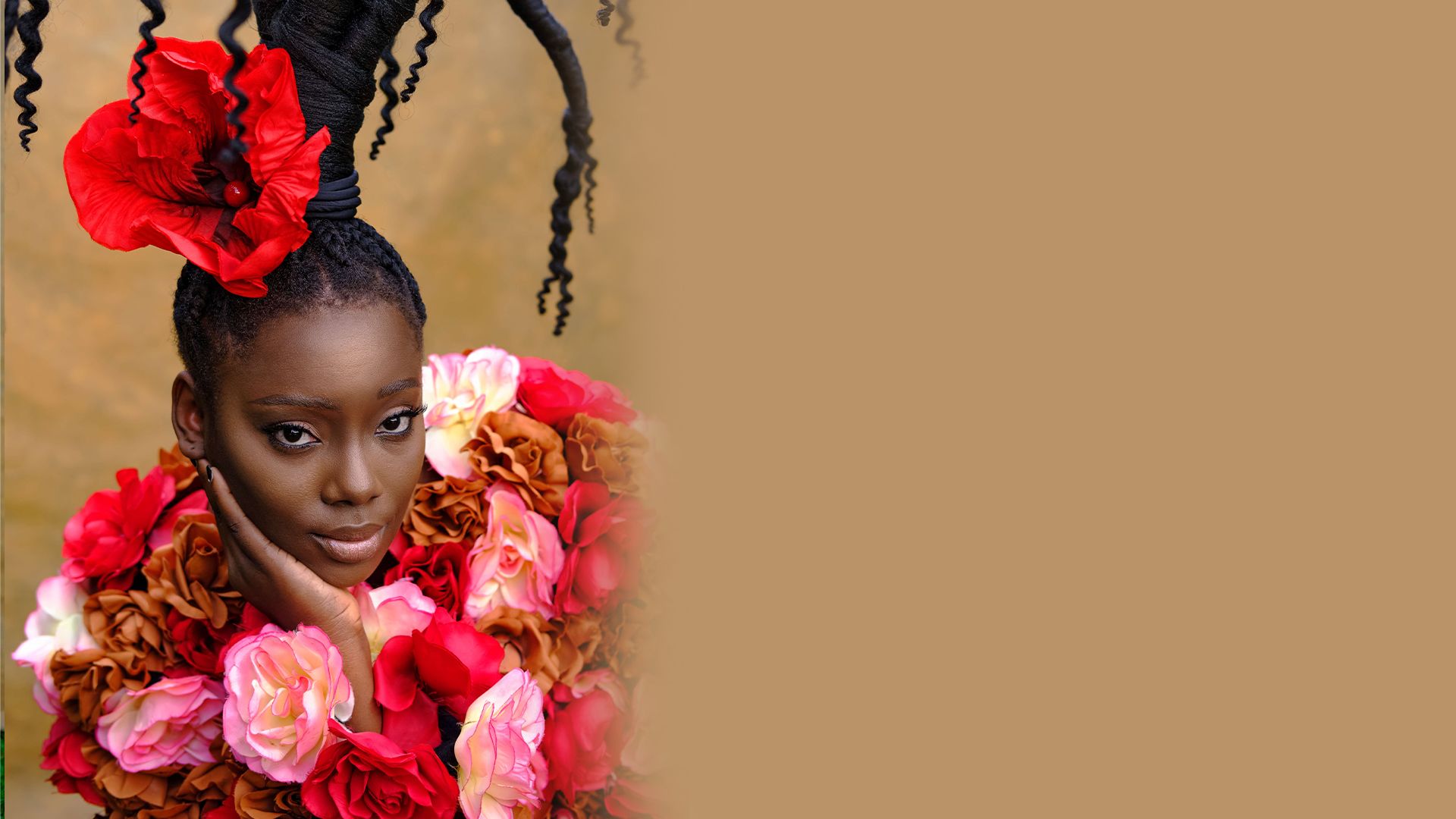
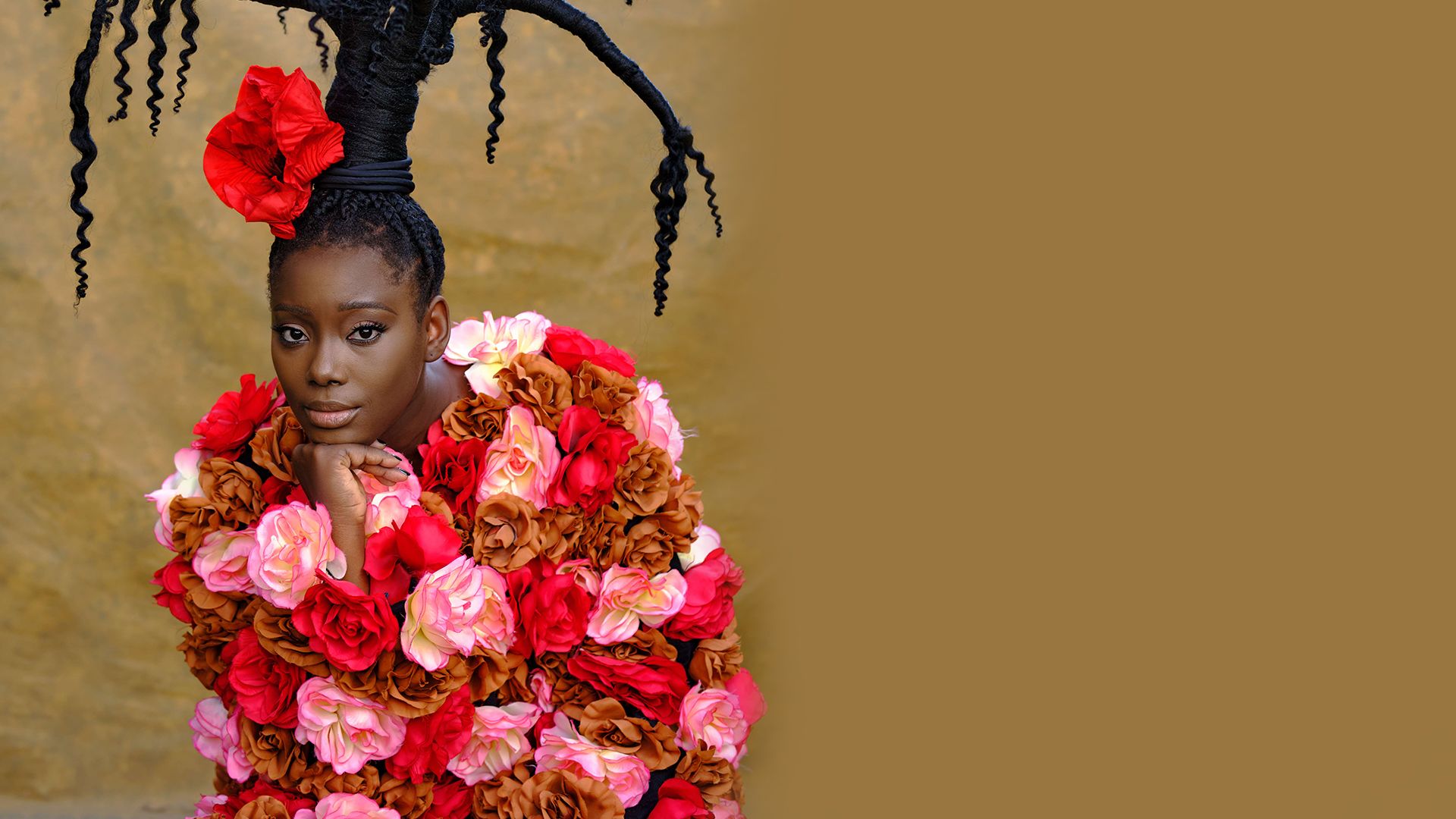
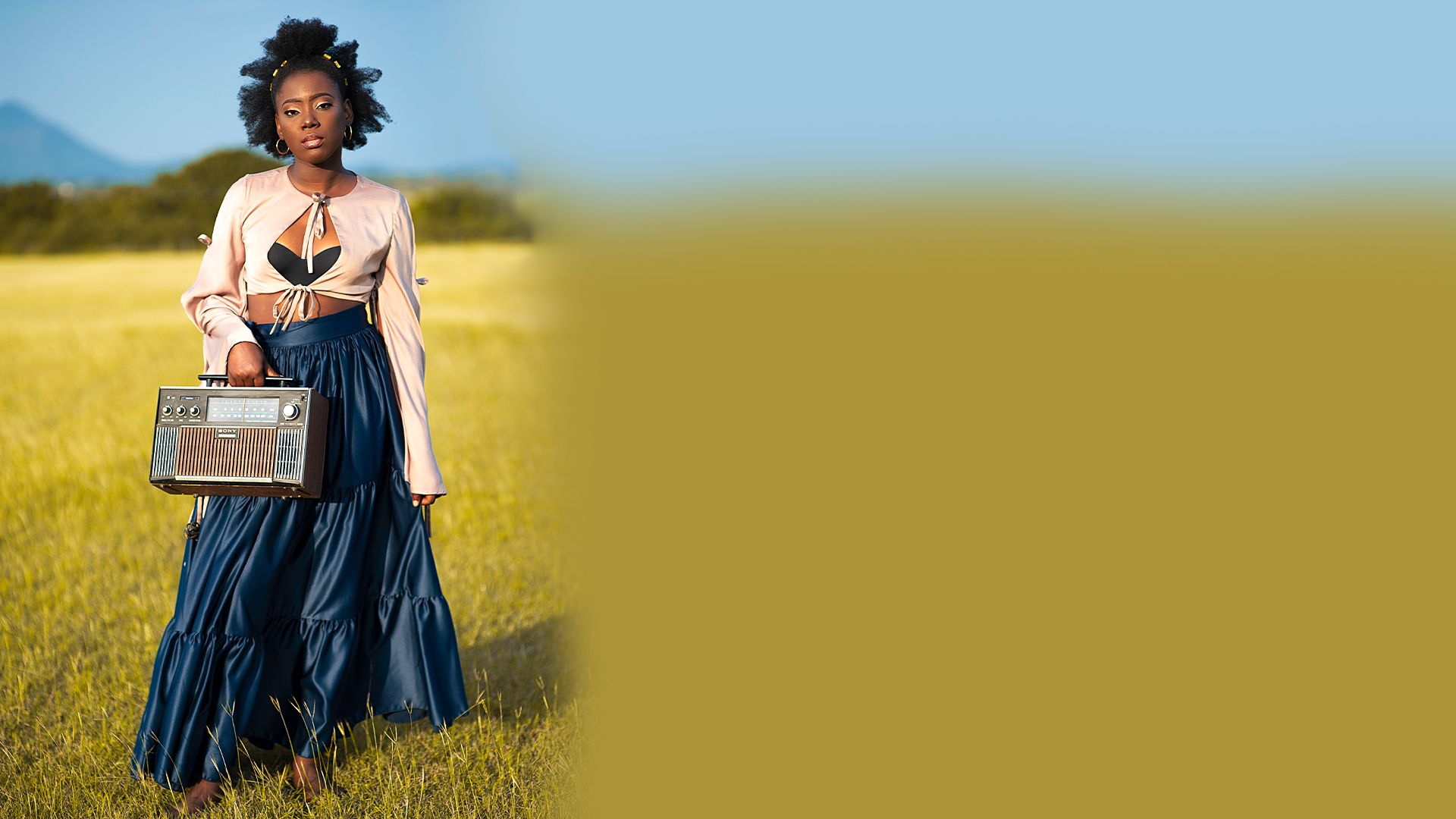
Emma Ofosua: The Quest for Truth
By Fui Can-Tamakloe
Emma Ofosua's poetry is a profound exploration of truth and wisdom. Her words delve into the philosophical depths of existence, inviting readers to ponder life's deepest questions. Ofosua's work is a quest for truth and a meditation on the human condition.
In a world brimming with voices, Emma Ofosua's poetry stands out in its attempt at the exposition of truth and wisdom. Through her written poems and freestyle performances, she captures a diverse range of themes, from the nuanced dynamics of human relationships to rebellion, and plugging into faith. However, what emerges as a constant undercurrent in her work is an insatiable longing to understand, to unravel the mysteries of life.
"I’ve grappled with questions like where does a person go when they die? How do I know things, before I actually know them? Is happiness a right or a thing to be earned?"
For Emma, this quest for truth through poetry is not merely an intellectual exercise. It's deeply personal, rooted in a near-death experience in 2013 that served as a catalyst. This incident transformed her, igniting an innate curiosity that has since guided not just her poetry, but her entire life. Her poetry has become a vehicle for introspection, an invitation for readers to embark on their own philosophical journeys. Through vivid metaphors and thought-provoking symbolism, Emma Ofosua creates a contemplative space. Her poetry becomes a mirror, reflecting the complexities of human existence and inviting readers to delve into the fundamental questions of life.
In her pursuit of truth, Emma draws from a diverse range of influences. From existential philosophers like Karl Jaspers and Albert Camus to preachers and poets like TD Jakes, Jackie Hill Perry, Maya Angelou, and Ama Ata Aidoo, each thinker leaves an indelible mark on her work. Her poetry is a synthesis of these varied perspectives, her personal experiences, introspection, and intellectual curiosity.
Navigating truth in poetry is no small feat. Emma's approach is distinct – she doesn't aim for abstraction. Instead, she grounds her exploration in personal experiences and observations, making the pursuit of truth relatable to her audience. Her poetry is an emotional and experiential journey, where readers and listeners are not just spectators but active participants in the discovery.
As Emma continues her quest for truth through poetry, she envisions her work evolving into a medium for exploring the profound questions of existence. Themes such as the nature of reality, the meaning of existence, and the interplay between human consciousness and faith are on her horizon. Additionally, she hopes to employ her poetry as a tool for advocacy, particularly for our natural environment, women, and children.
“My aim is to inspire readers to continue their quest for truth and wisdom, providing them with refreshing perspectives and insights as they navigate life's philosophical intricacies.”
In African contemporary poetry, Emma Ofosua's voice is distinctive. Her poetry serves as a mirror to our own experiences, inviting us to contemplate the universal themes that shape our lives and enrich our understanding of our human experiences. Through her words, she not only explores truth and wisdom but invites us all to join her in this journey. ...read more



Festival Review
by Rhymesonny
At the inaugural edition of the All African Women Poetry Festival, held from the 25th to the 28th of May 2023, an enchanting partnership unfolded between the British Council, the Art Africa Gallery, the KGL Foundation, and the invaluable support of UNESCO, Outre, Fanice, Wear Ghana, ATL, Comme Lab, Iglow, Kaya Tours, Think Aloud, OLAF, She Panthers, Jo’s Keepsakes, Writers Project, Kasapreko, PhotoGerard, LOATAD, Poetry Association of Ghana, National Theatre, Dansworld, Afro Ele, Creative Spills, Movies in the Park, Joyprime, Citi FM/TV, Incredible K, and a dedicated pool of volunteers.
This extraordinary event featured a plethora of thoughtfully programmed activities. Highlights included the captivating book launch, "Song of a Caged Bird," authored by Joycelyn Siaw-Asamoah and hosted by the illustrious Doreen Avio. The festival also played host to the Adinkra Poetry Prize awards, enlightening panel conversations on the vital topic of integrating women's poetry into the creative economy, featuring the insightful voices of Odile Tevie, Chineyenwa Okoro Onu, Emma Ofosua, hosted by Emmah Maybe.
Further enriching the discourse, Dr. Ansong, Tryphena Yeboah, Chioniso Tsikisayi, Mariska Araba Taylor, and Akosua Dufie Boakye passionately explored the reasons why we should all embrace the poet within us. Additionally, the festival's Twitter space conversation delved into the world of nurturing social, emotional, and healthy coping skills through the art of poetry. Hosted by Cynthia Amoah, this engaging discussion welcomed luminaries such as Dr. Michelle McKinney Hammond, Dr. Kaltum Akubo, Miss Yankey, and Effie Nkrumah.
The festival's programme also featured brilliant film productions during "Movies in the Park," including titles like "We Are Dying Here" by Siphokazi Jonas, "Moon Over Aburi" by Aniwaa, and "Yaa Asantewaa" by Jesse S. Mills. The event reached its crescendo as Petrina Adusei led the distinguished guest poets in a literary therapy session, creating a space for reflection and artistic expression.
In the following pages, we invite you to immerse yourself in an in-depth review of some of our headline conversations and activations. This inaugural festival, rich in its creative expression, left an indelible mark on the hearts and minds of all who participated. ...read more
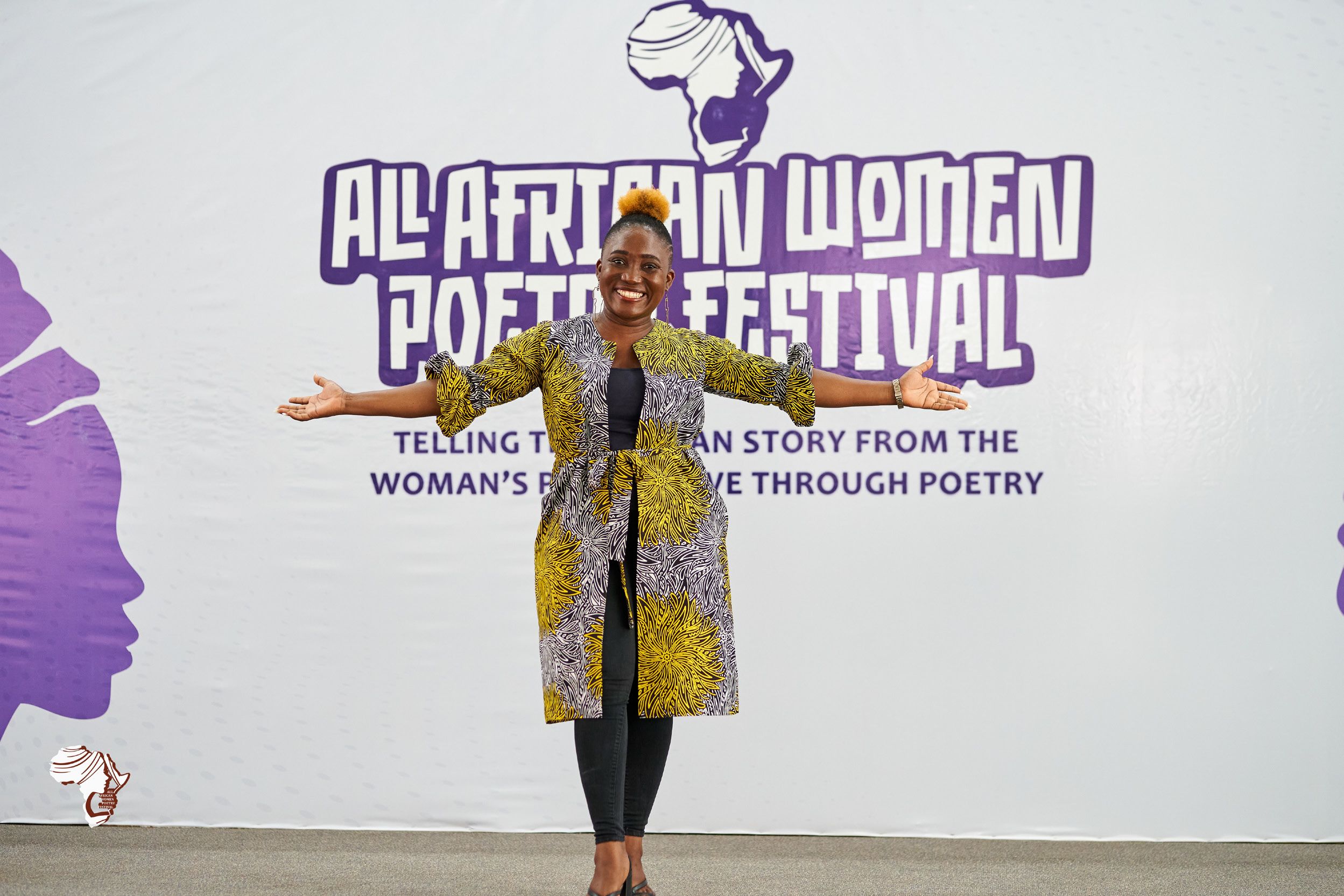
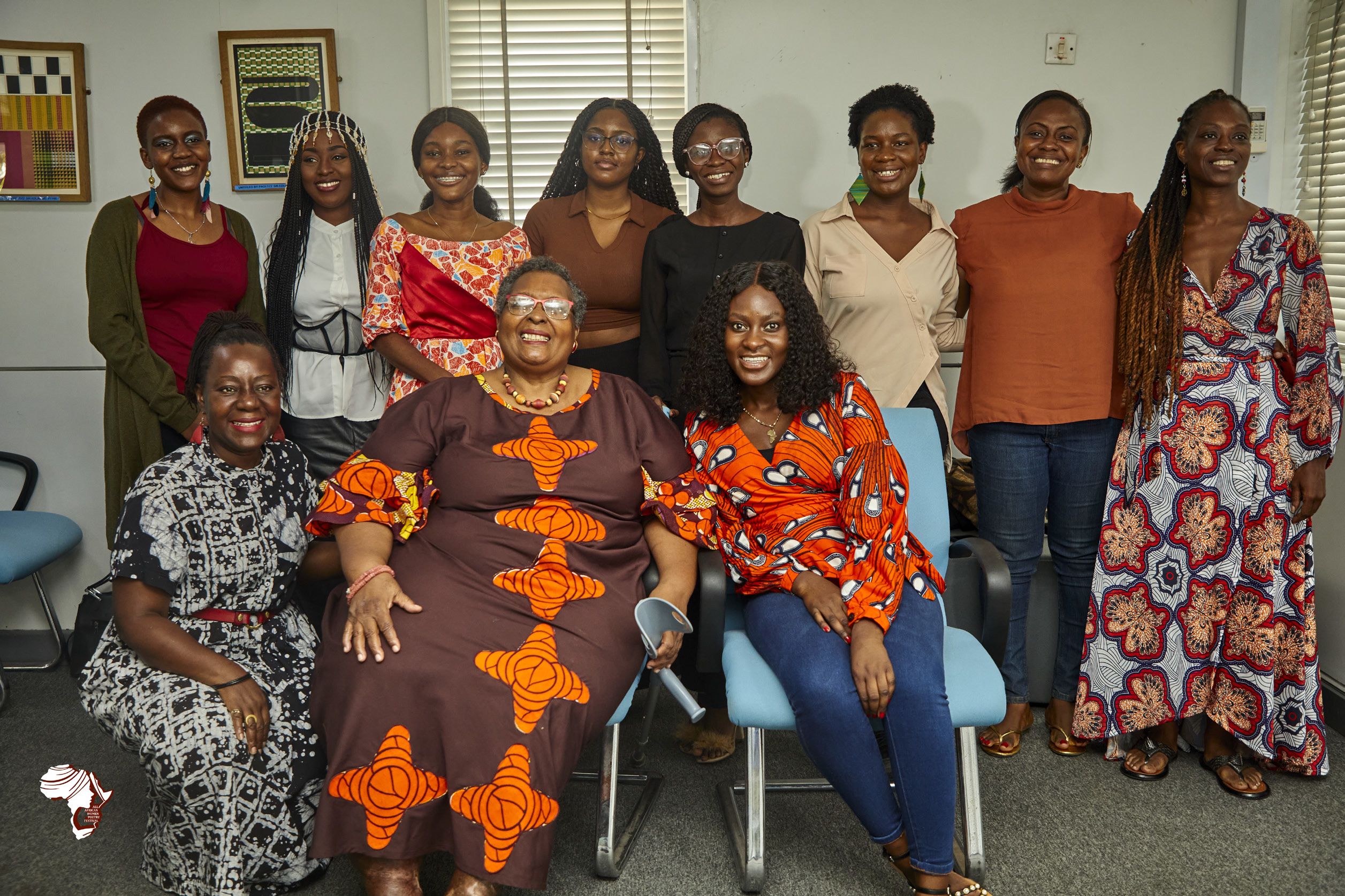
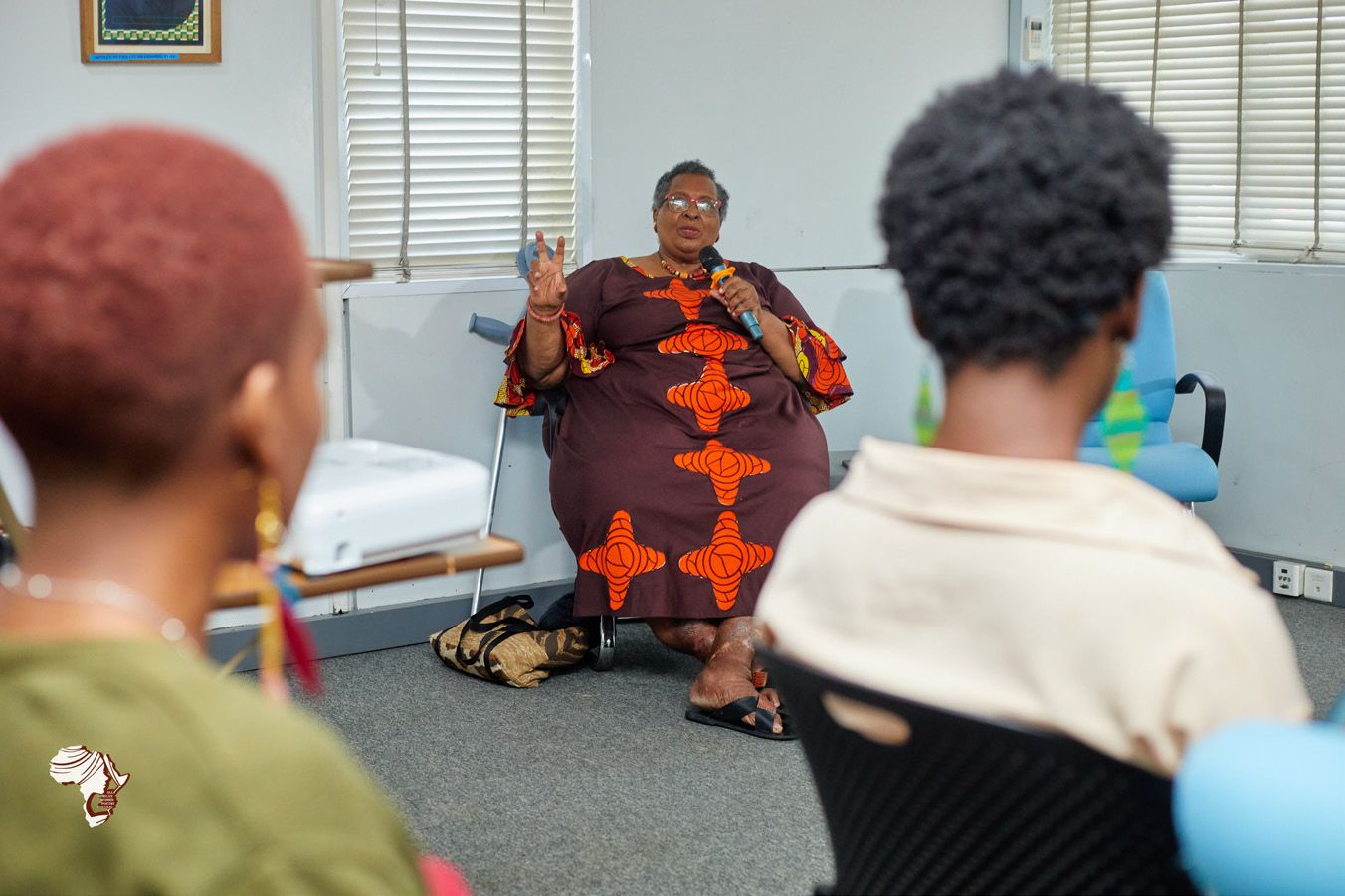
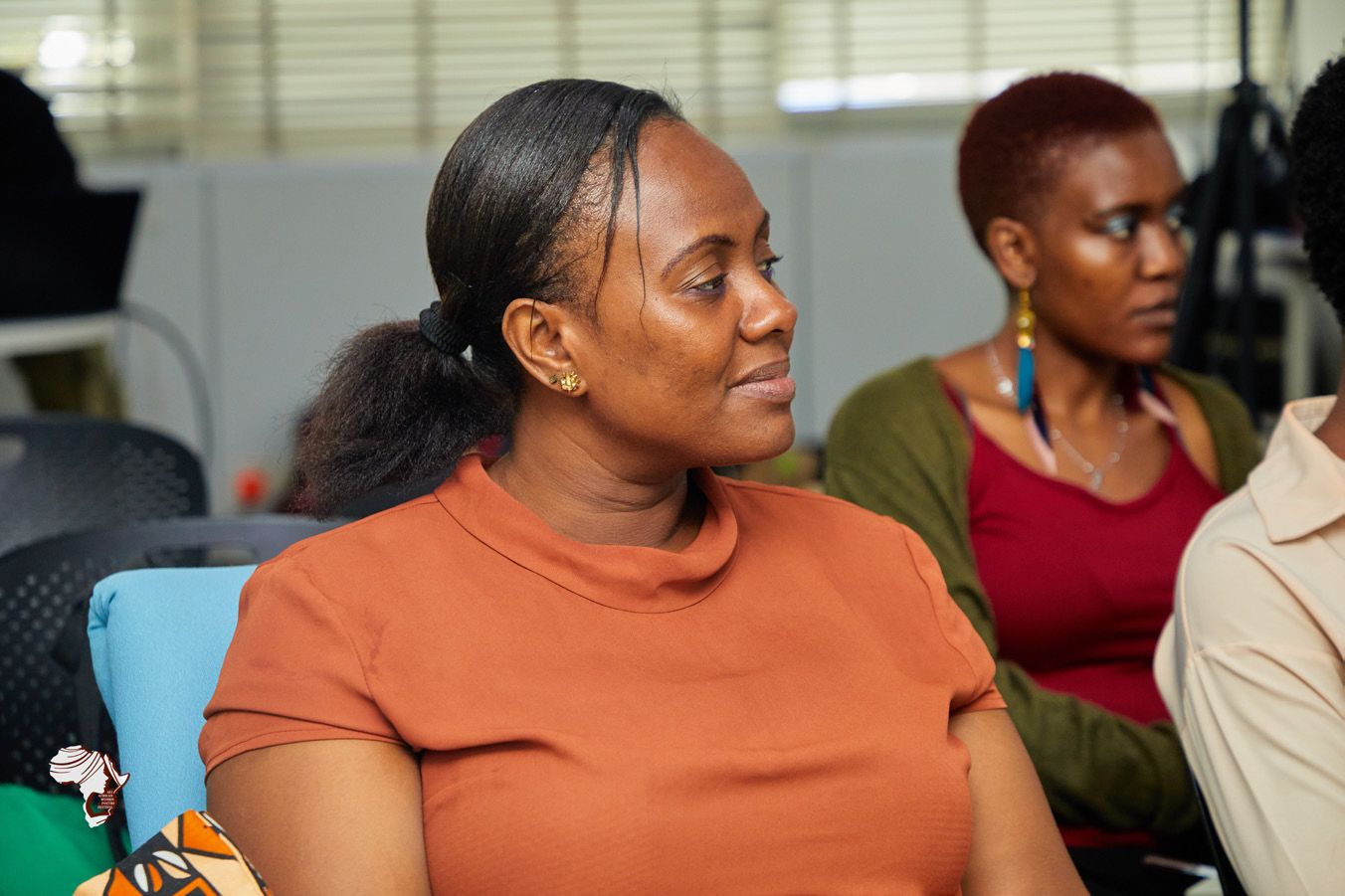
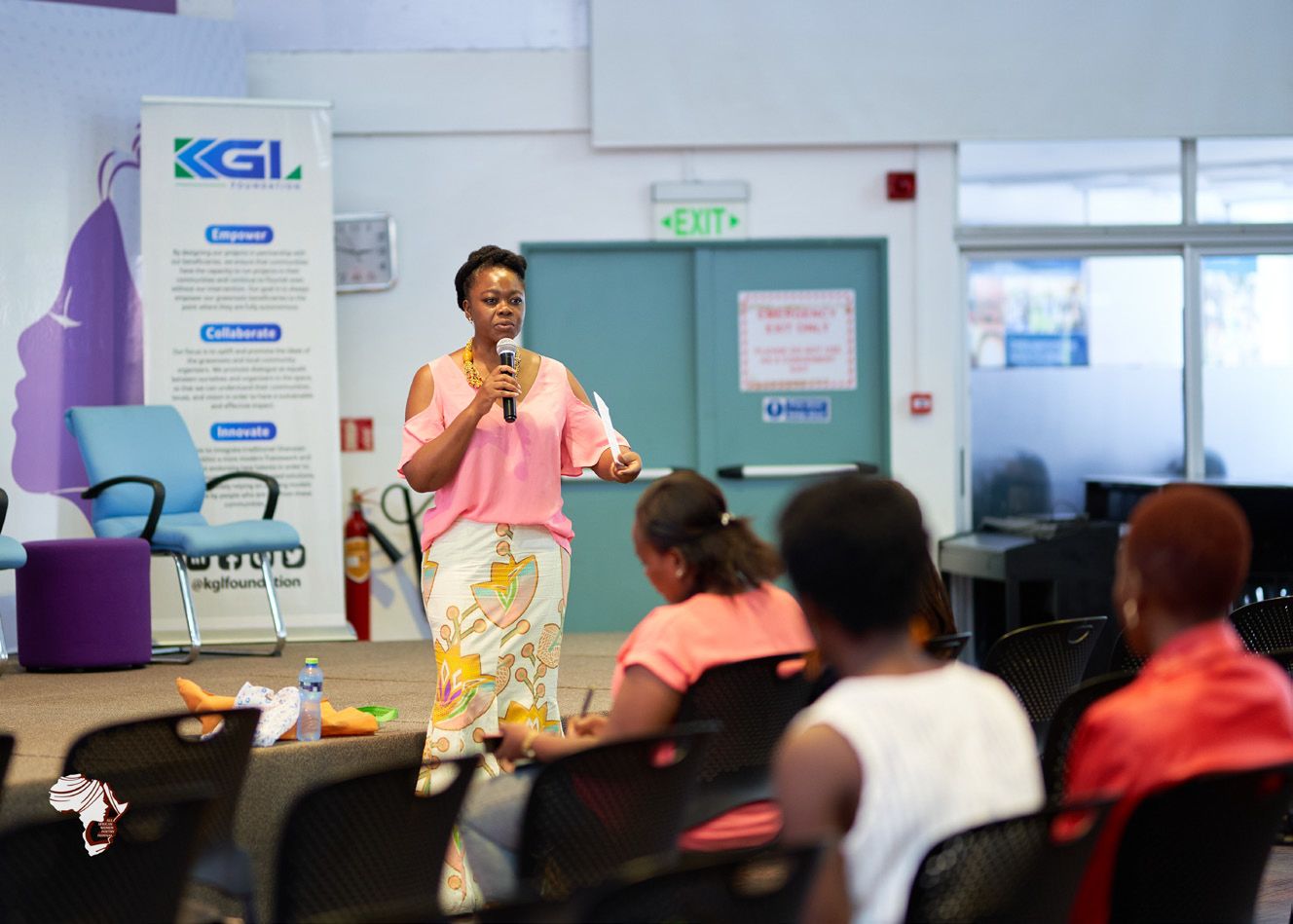
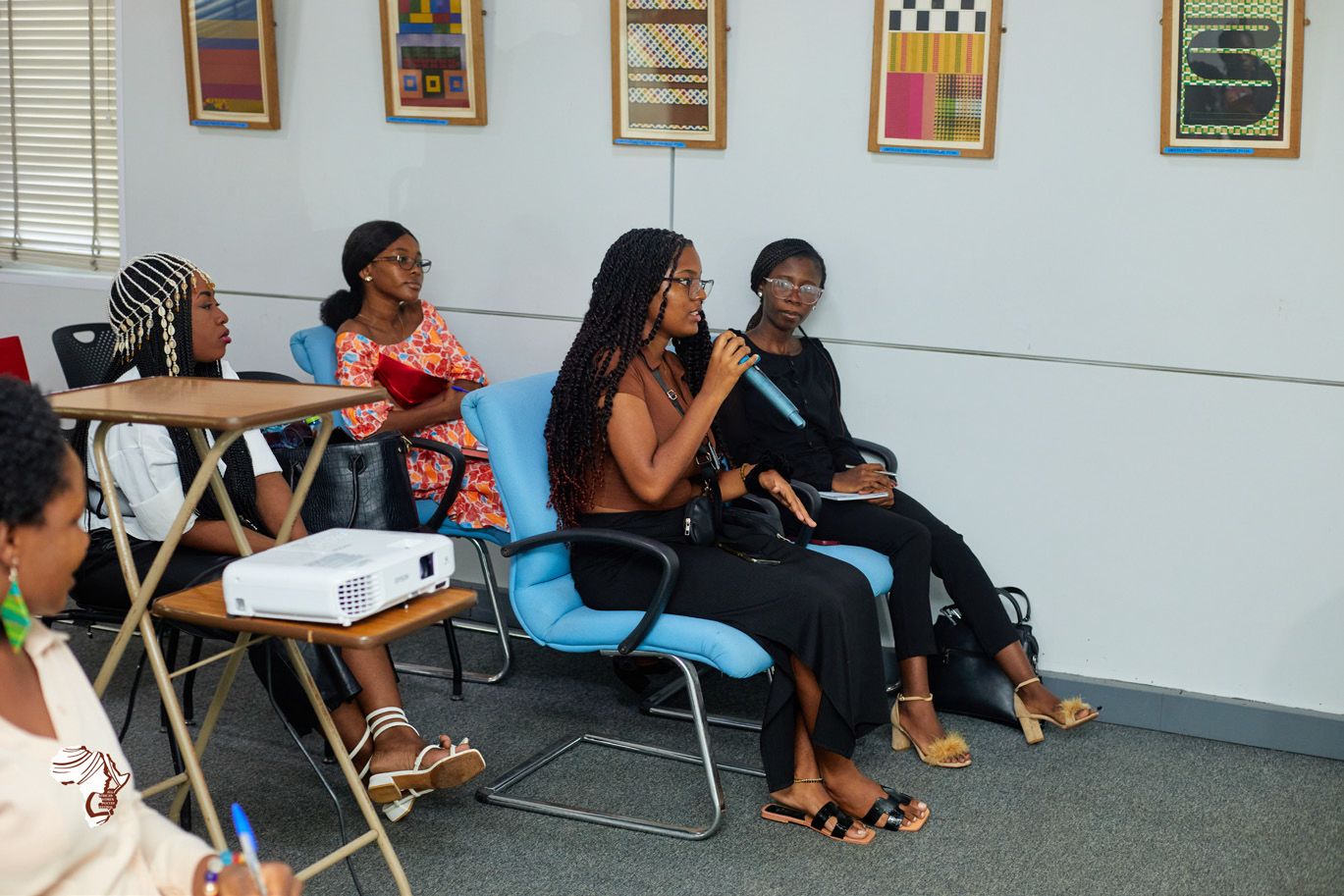
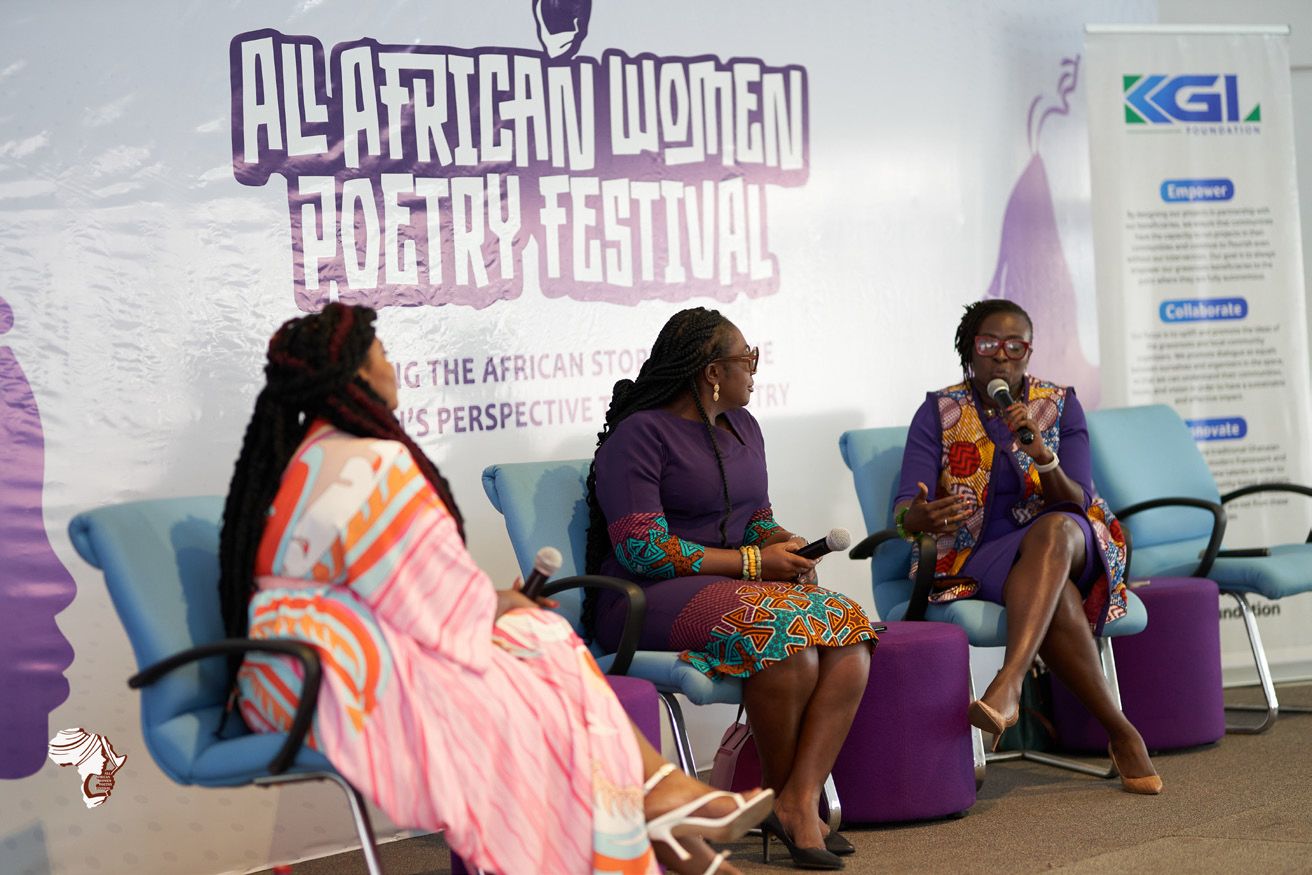
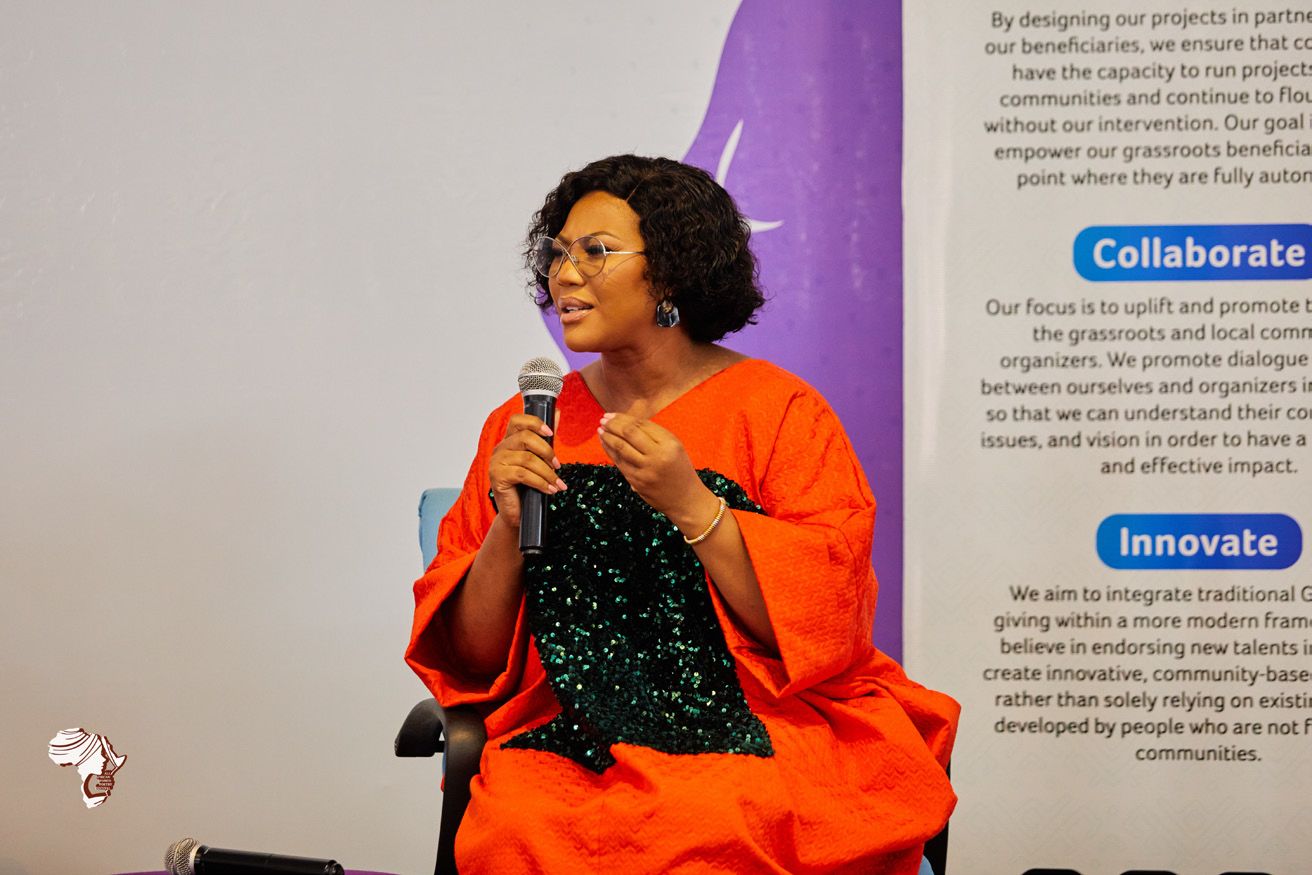
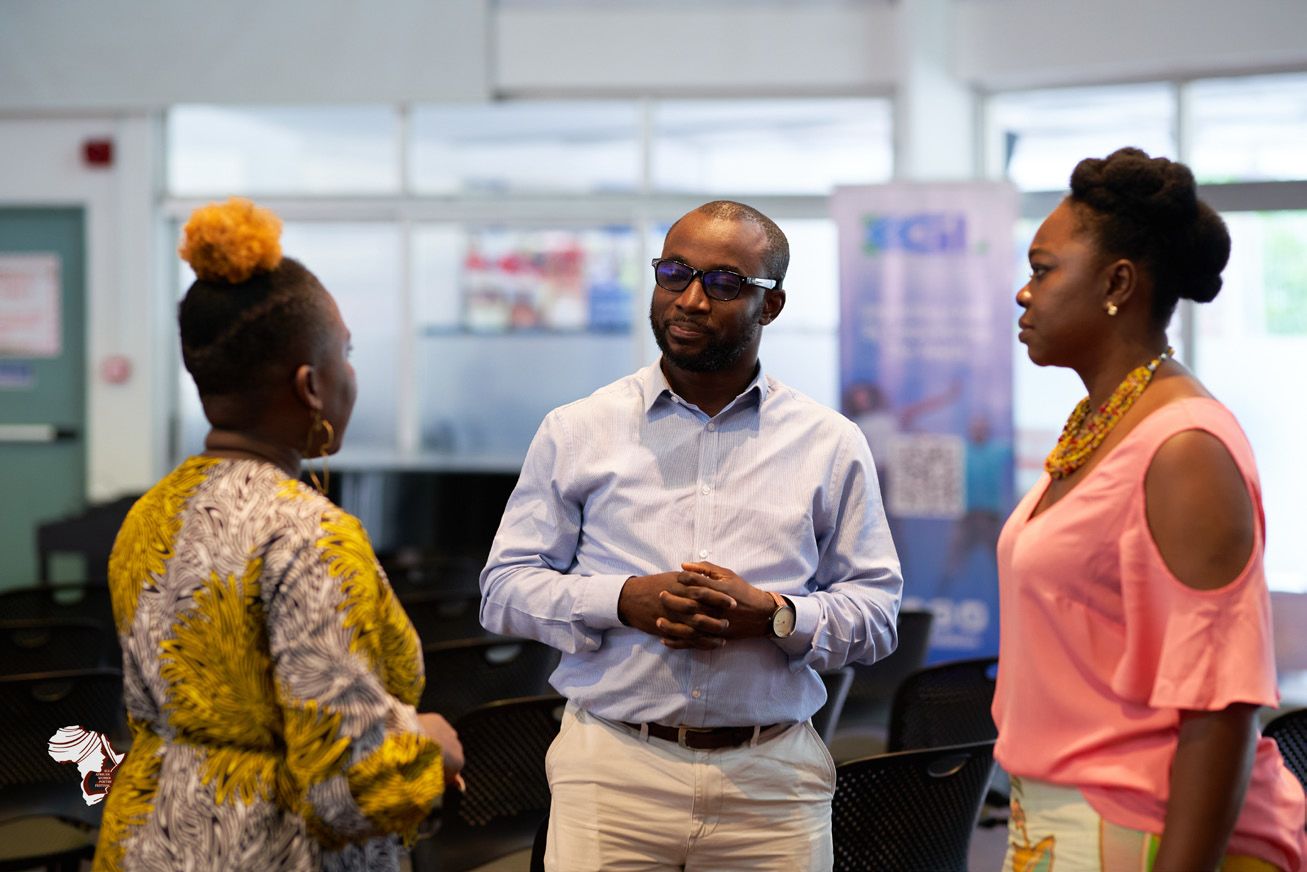
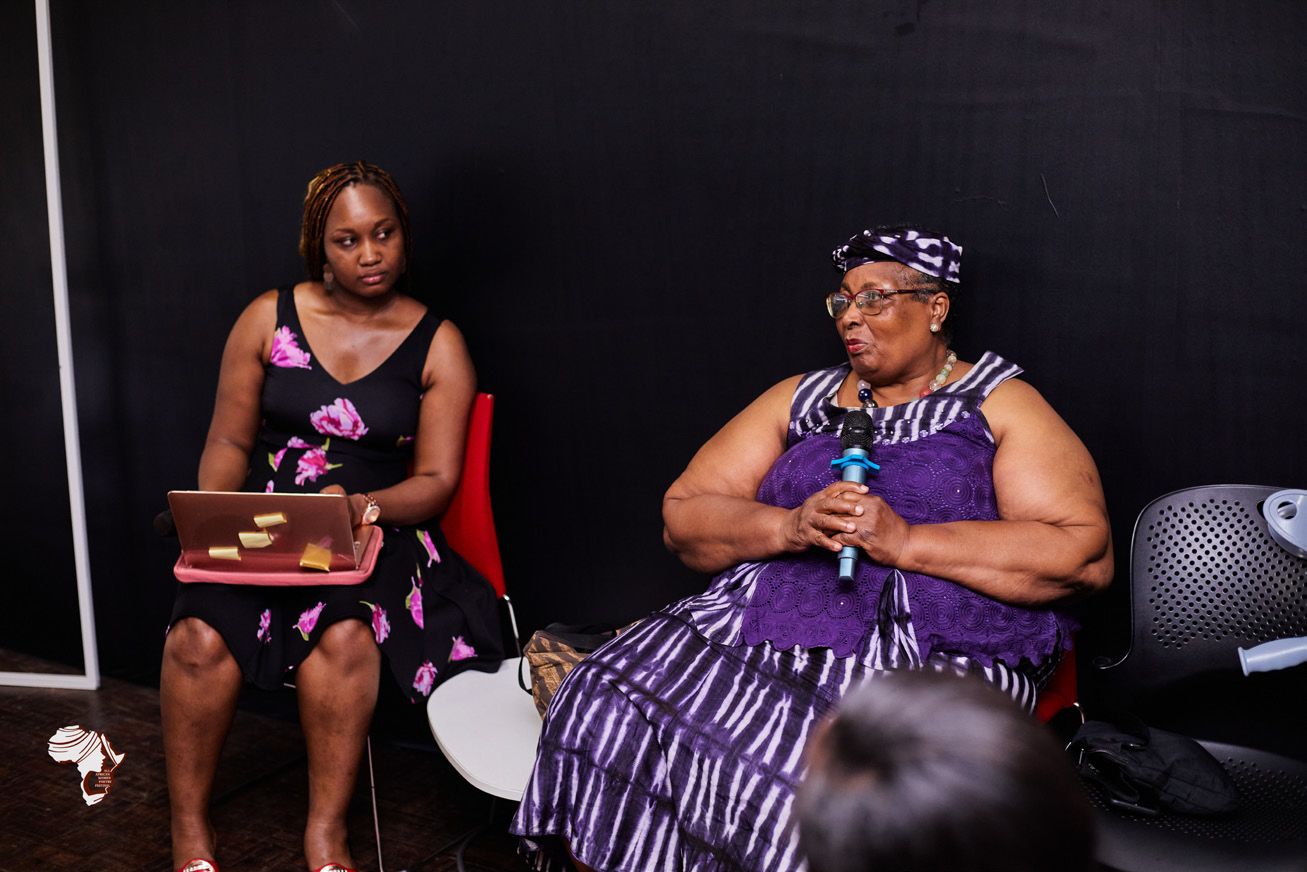
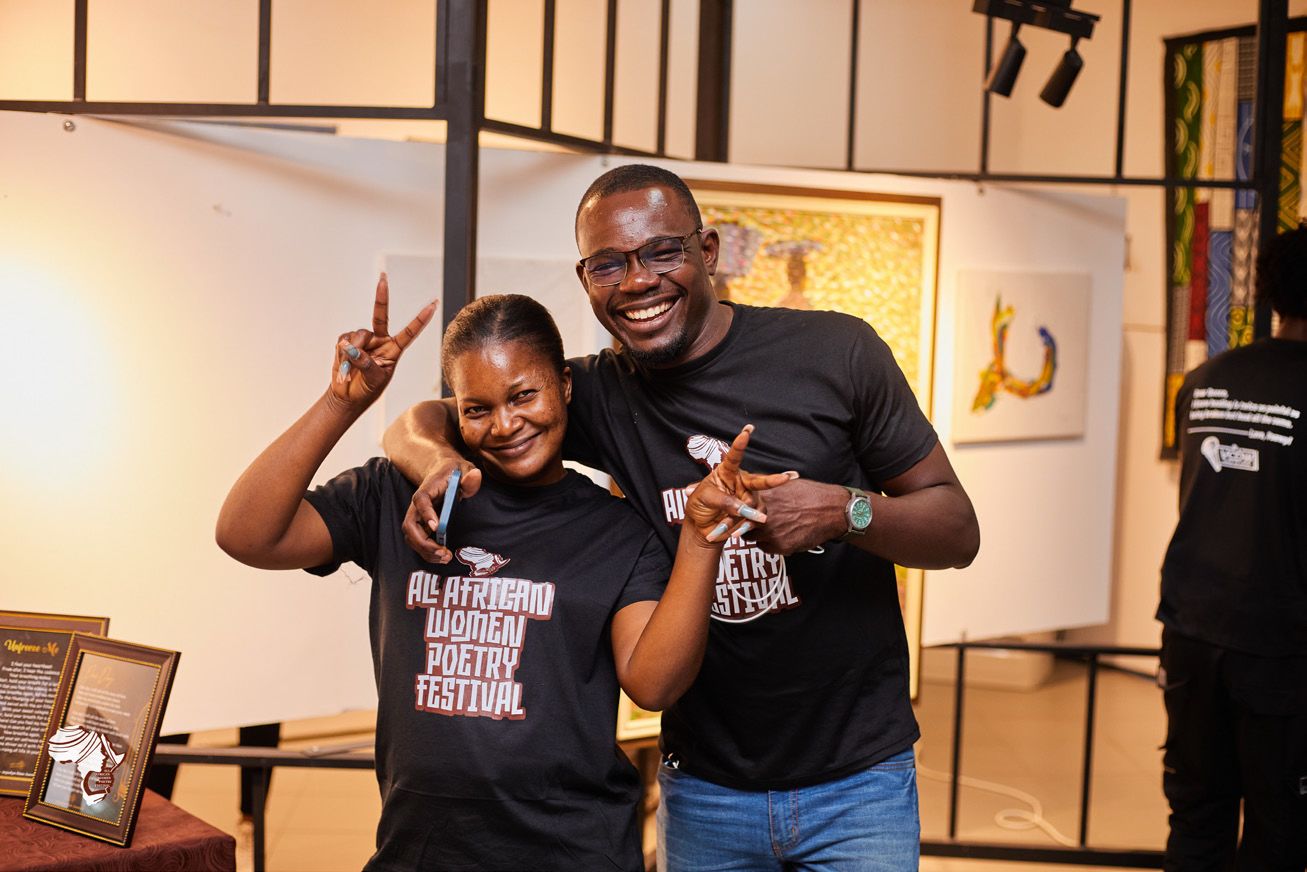
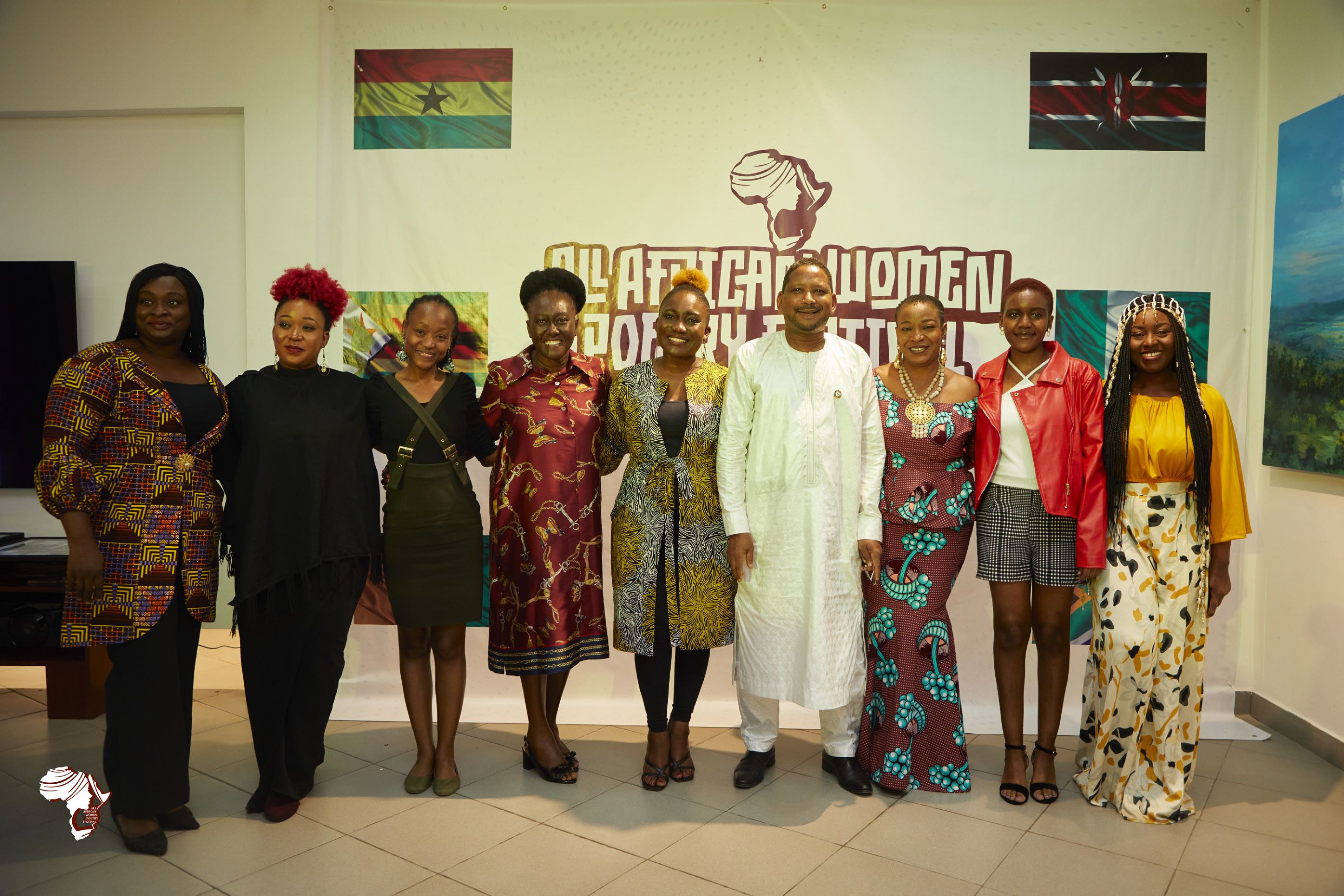
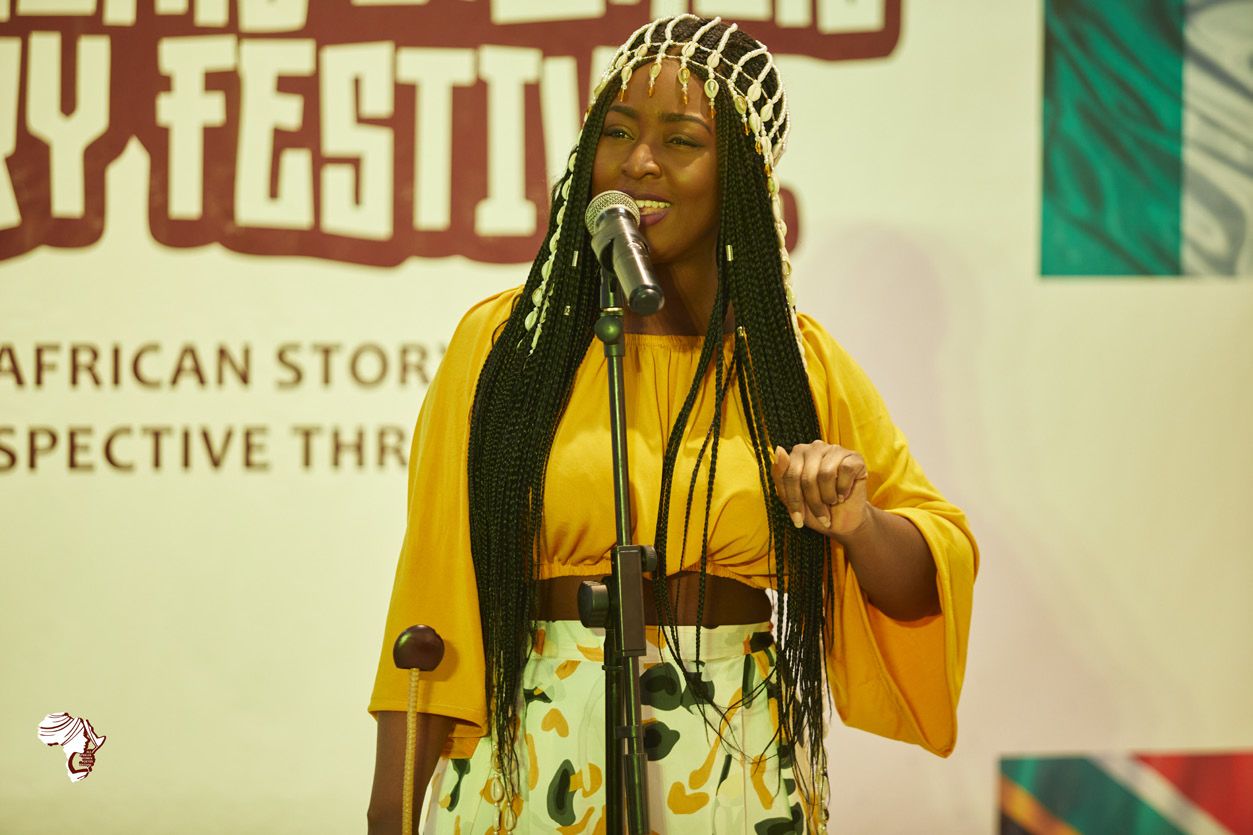
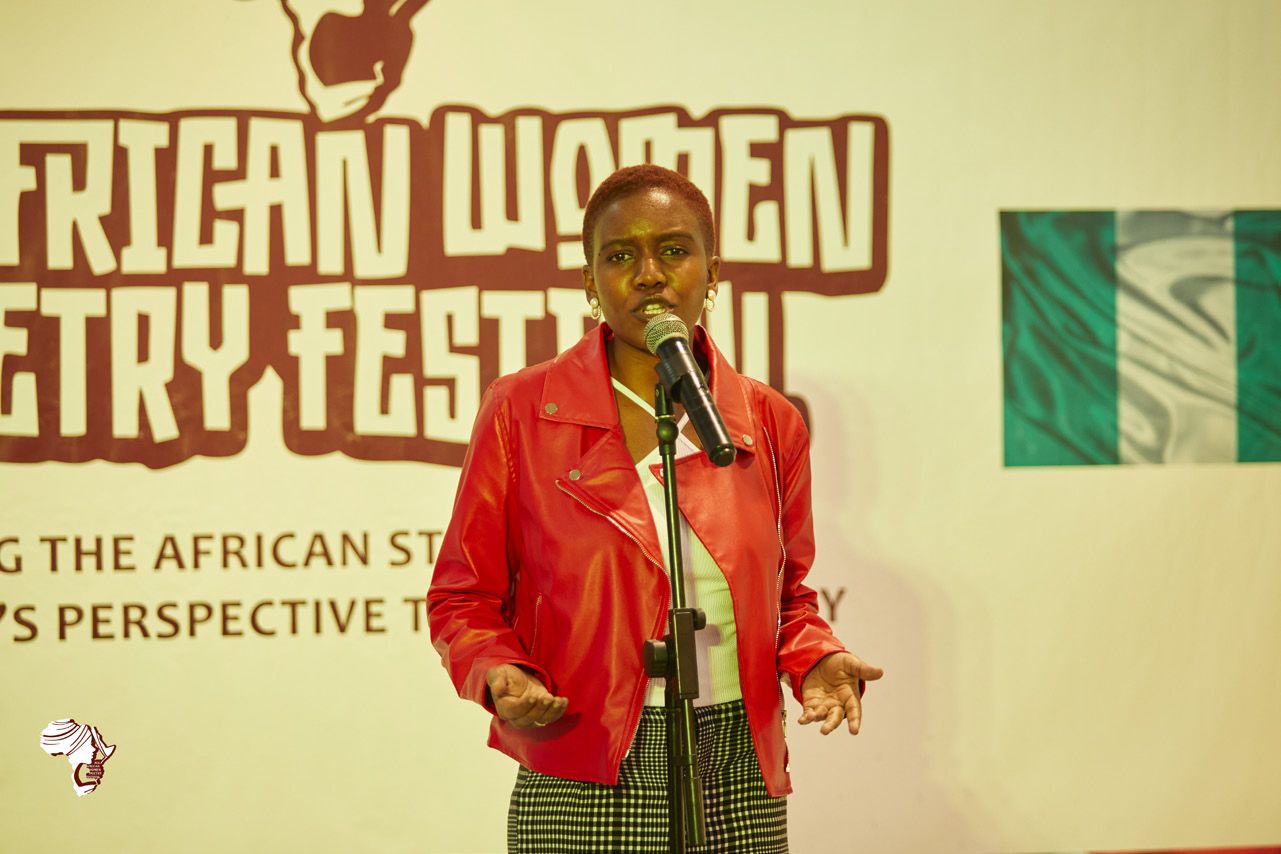
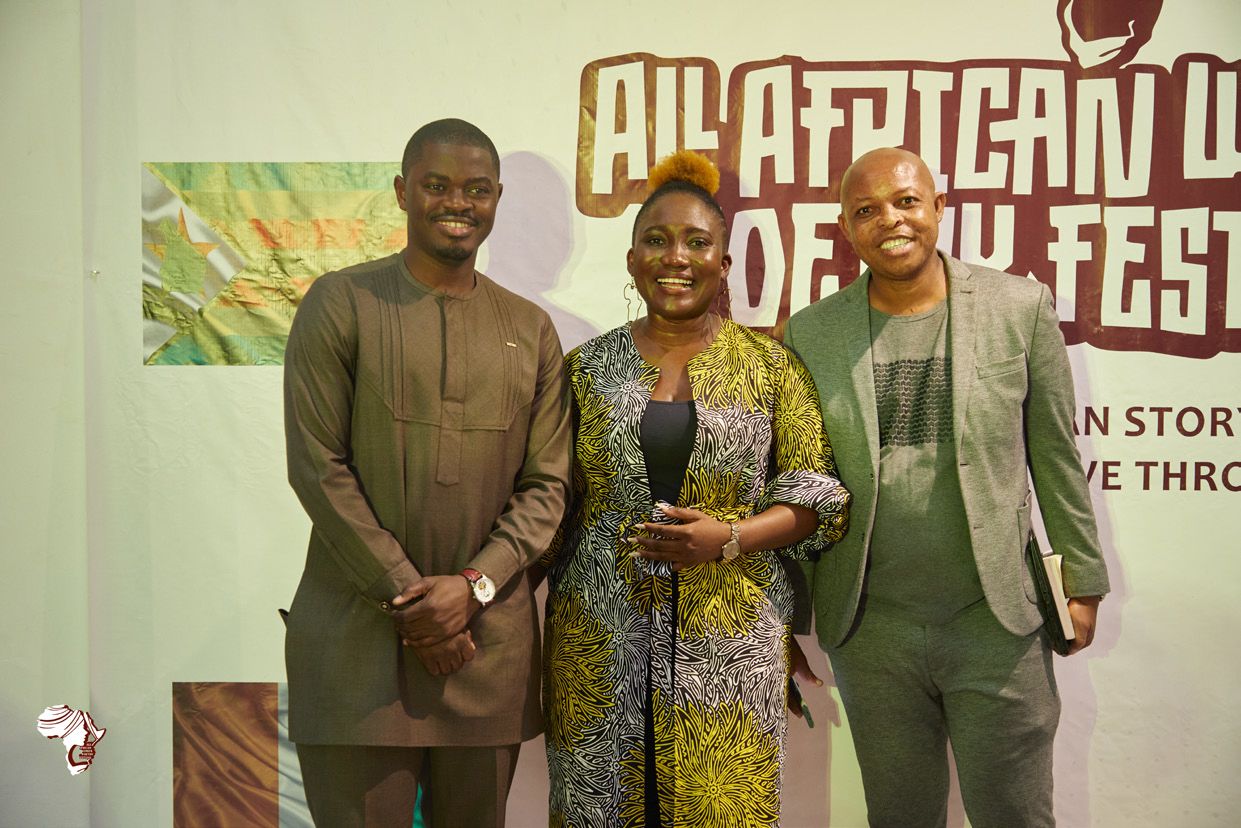
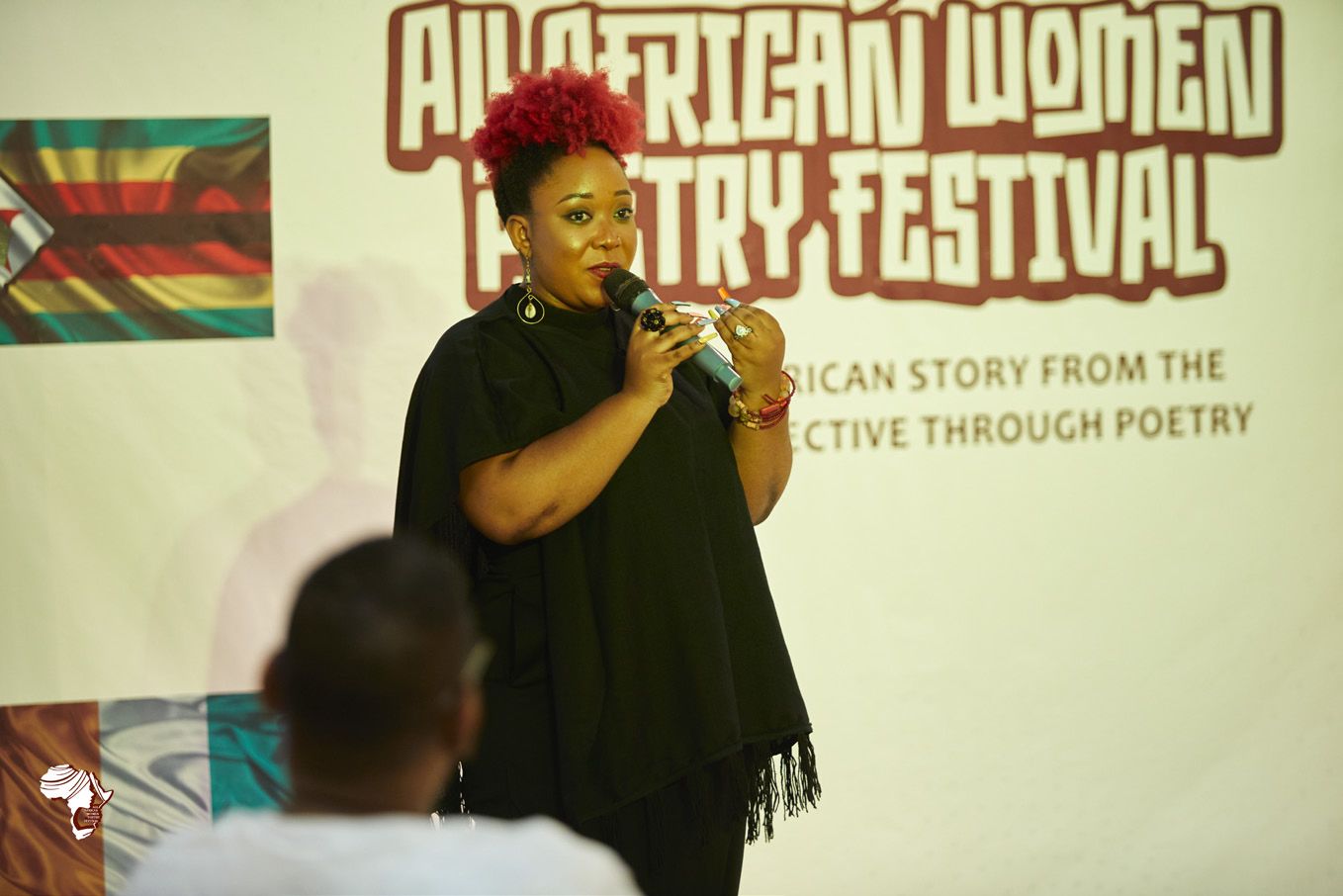
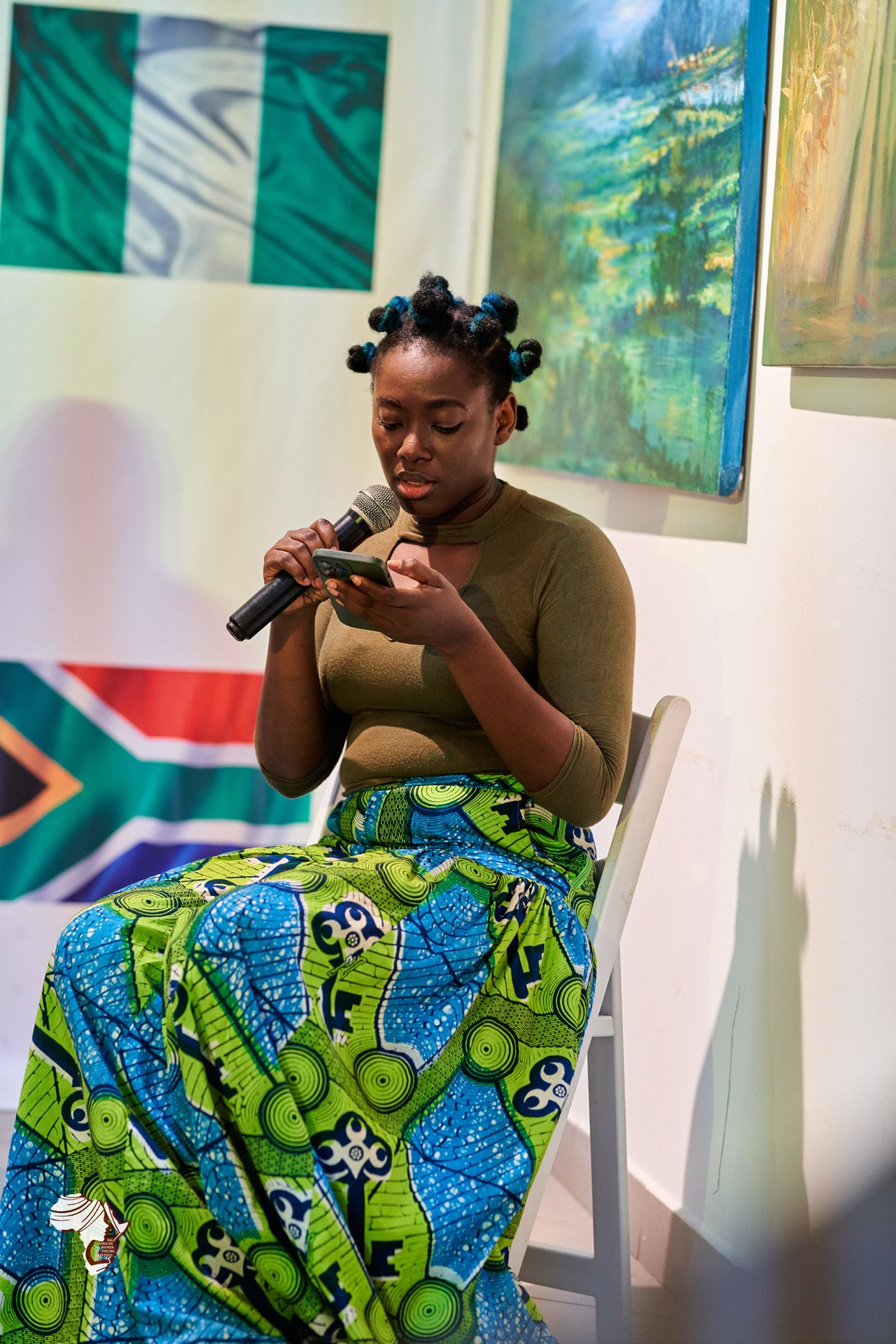
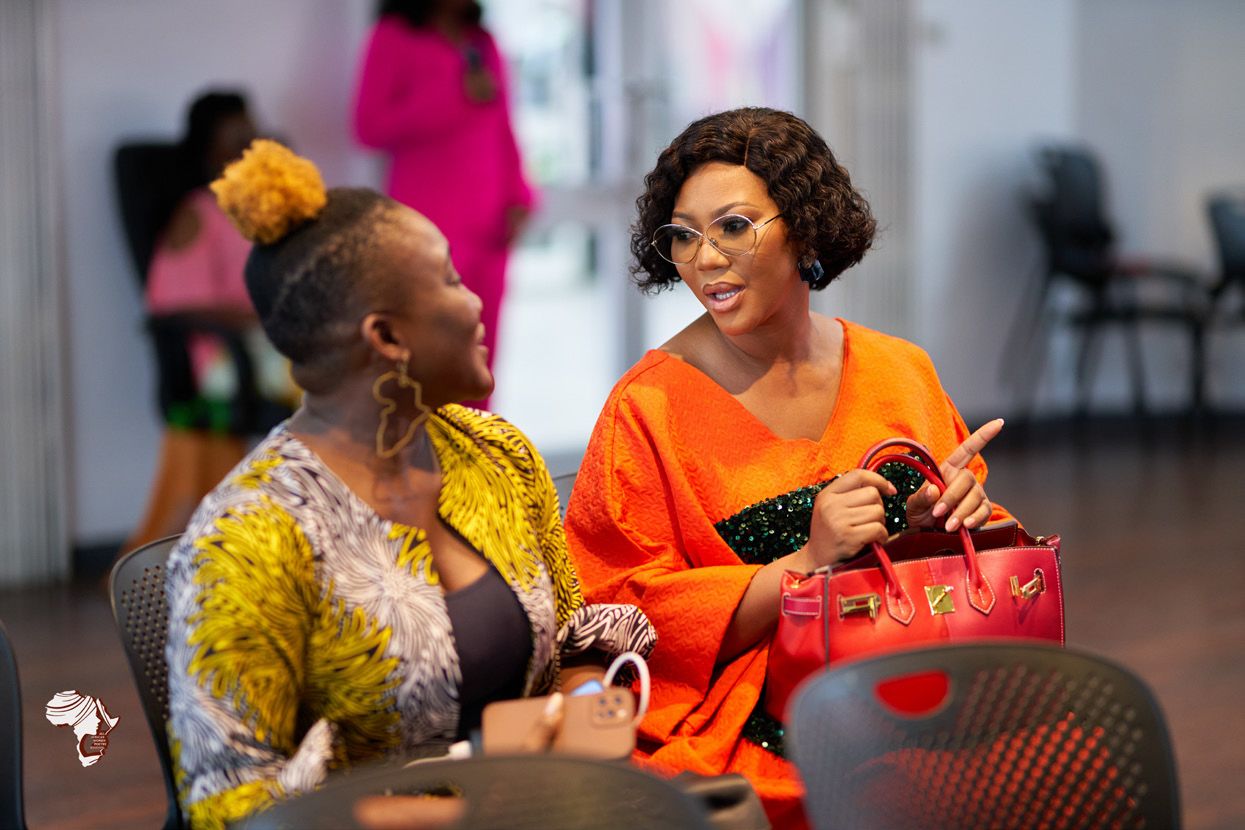
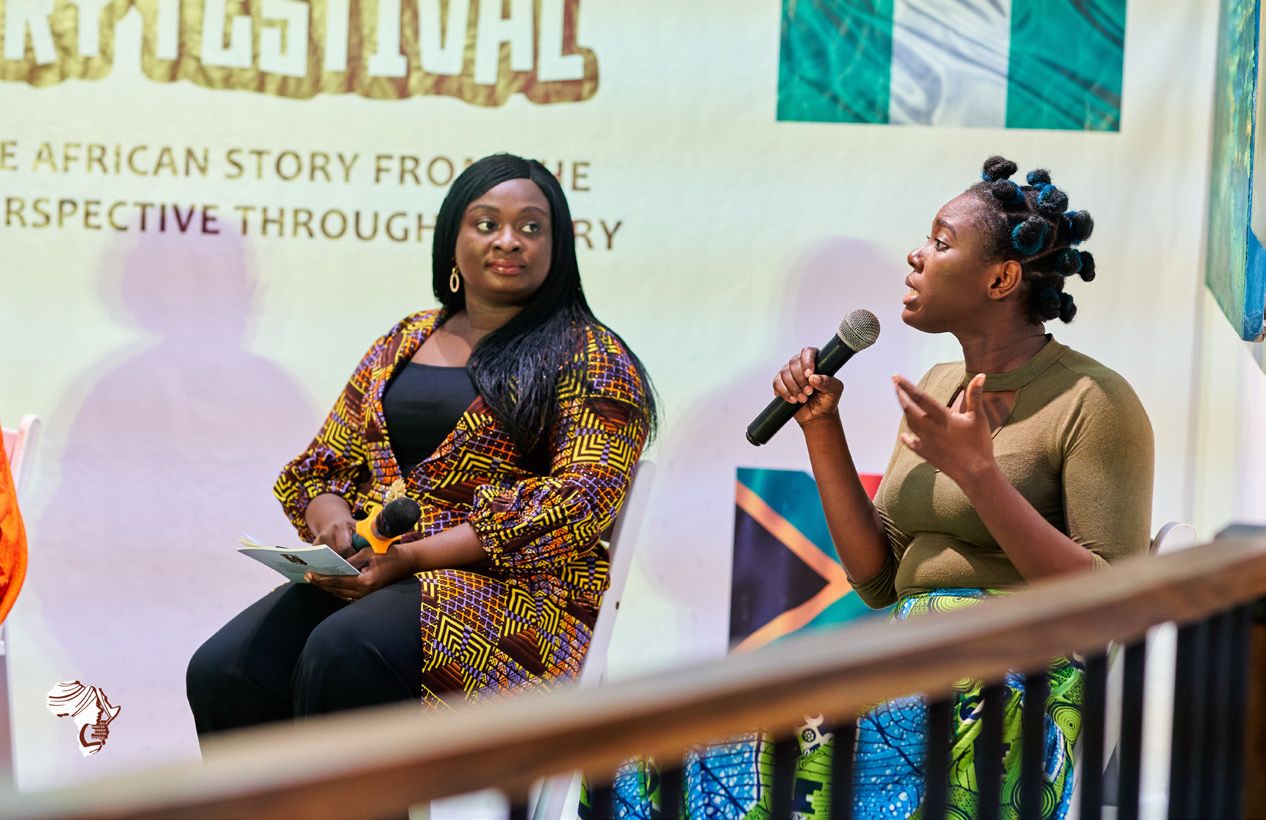
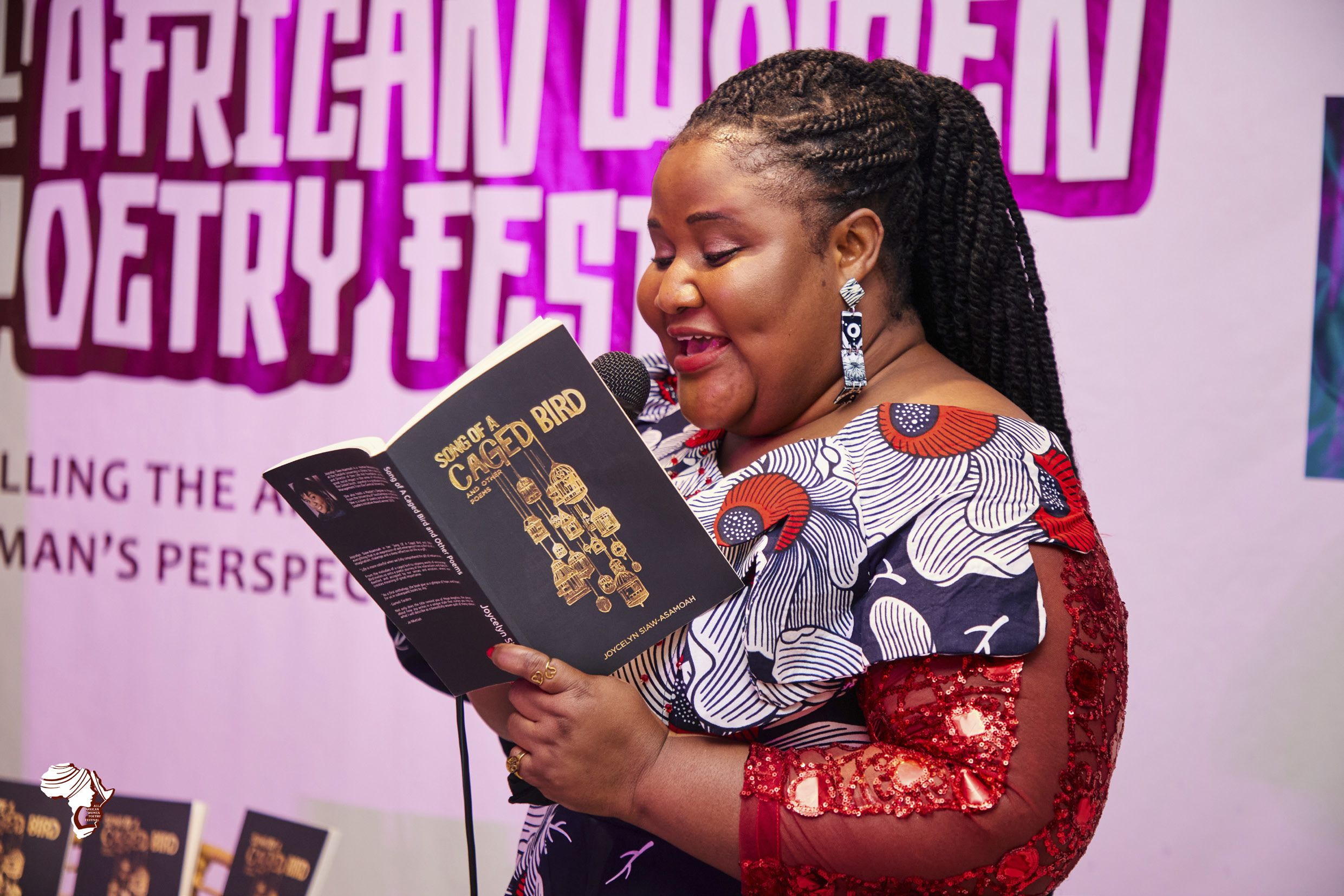
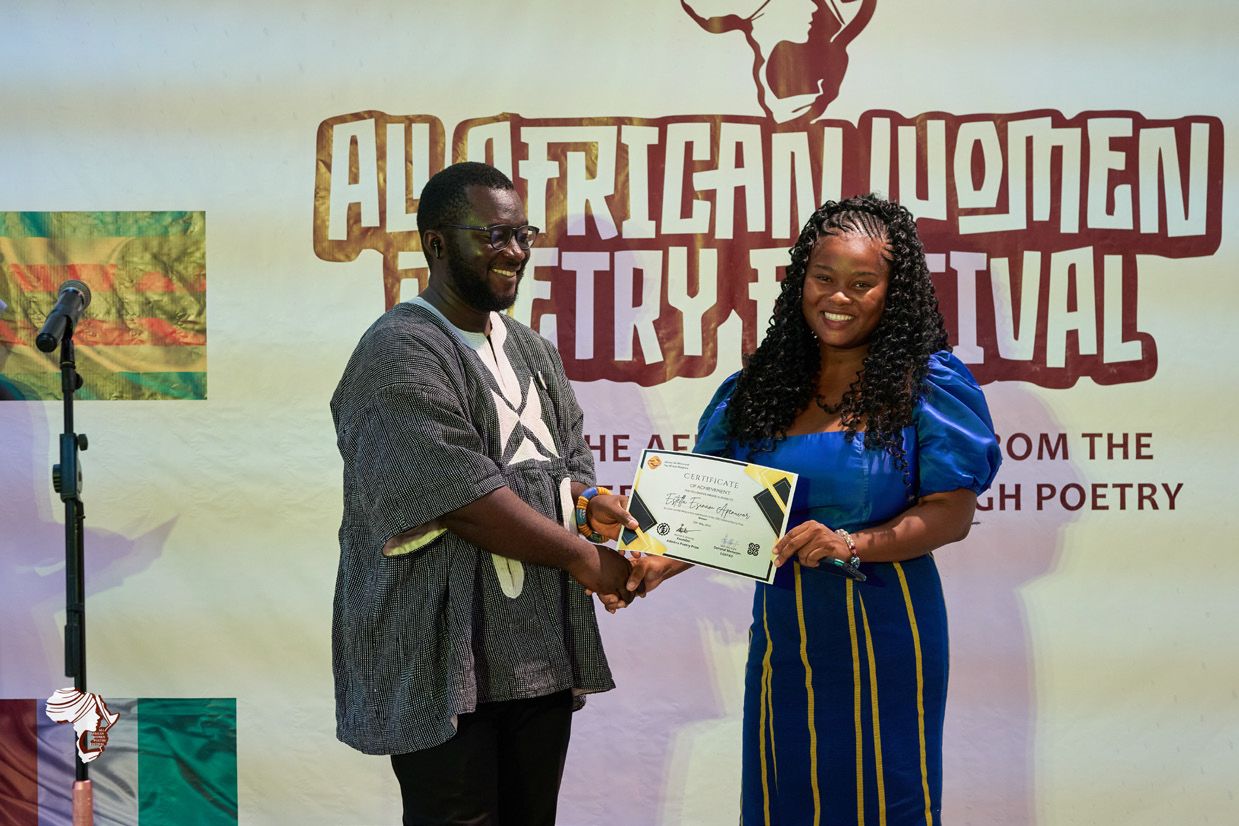
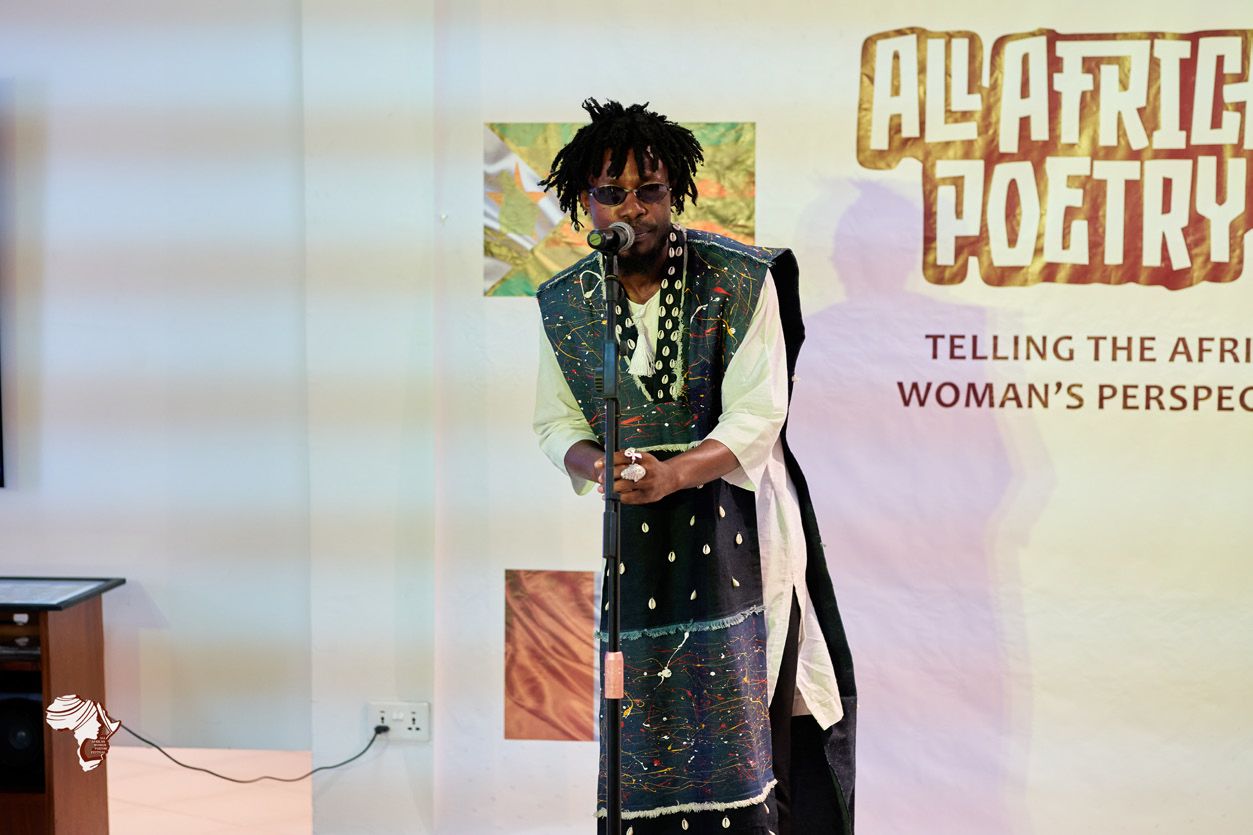
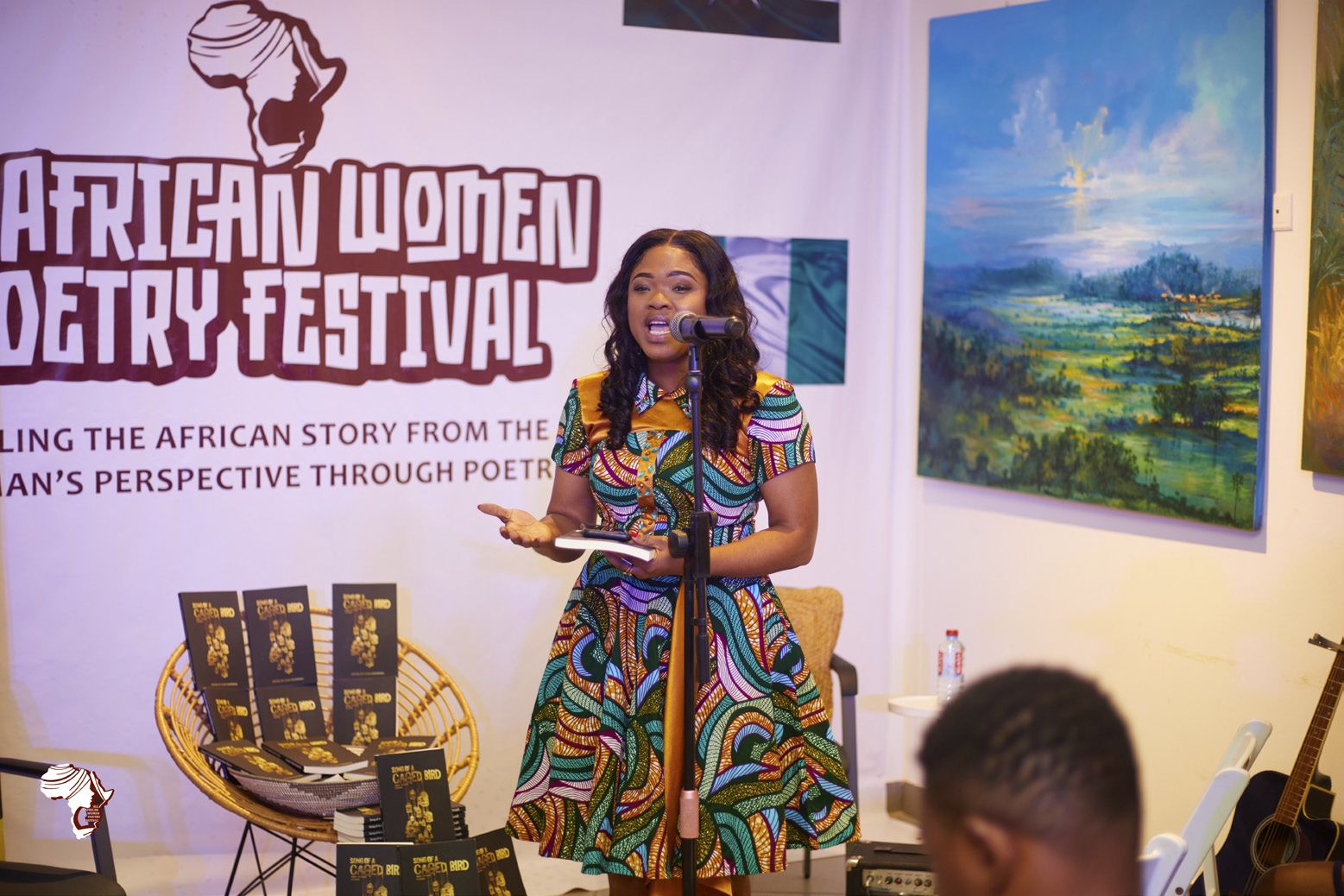






















Report on Panel Discussion:
"Women Will Be Well!"
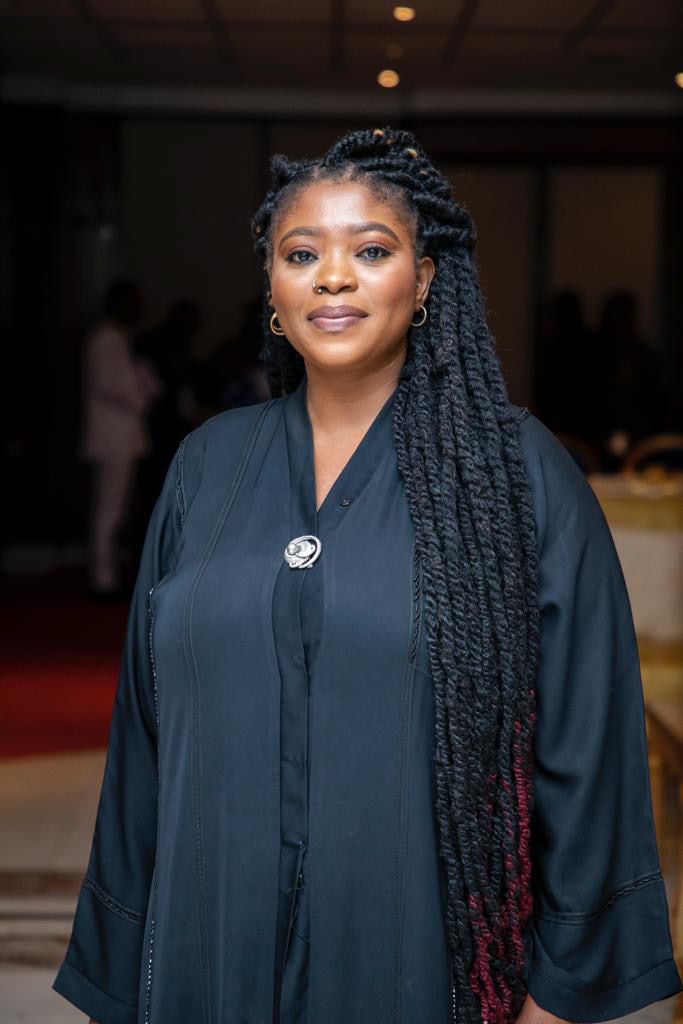
Ama Krampah
Broadcast journalist (EBN), Poet, Humanitarian.
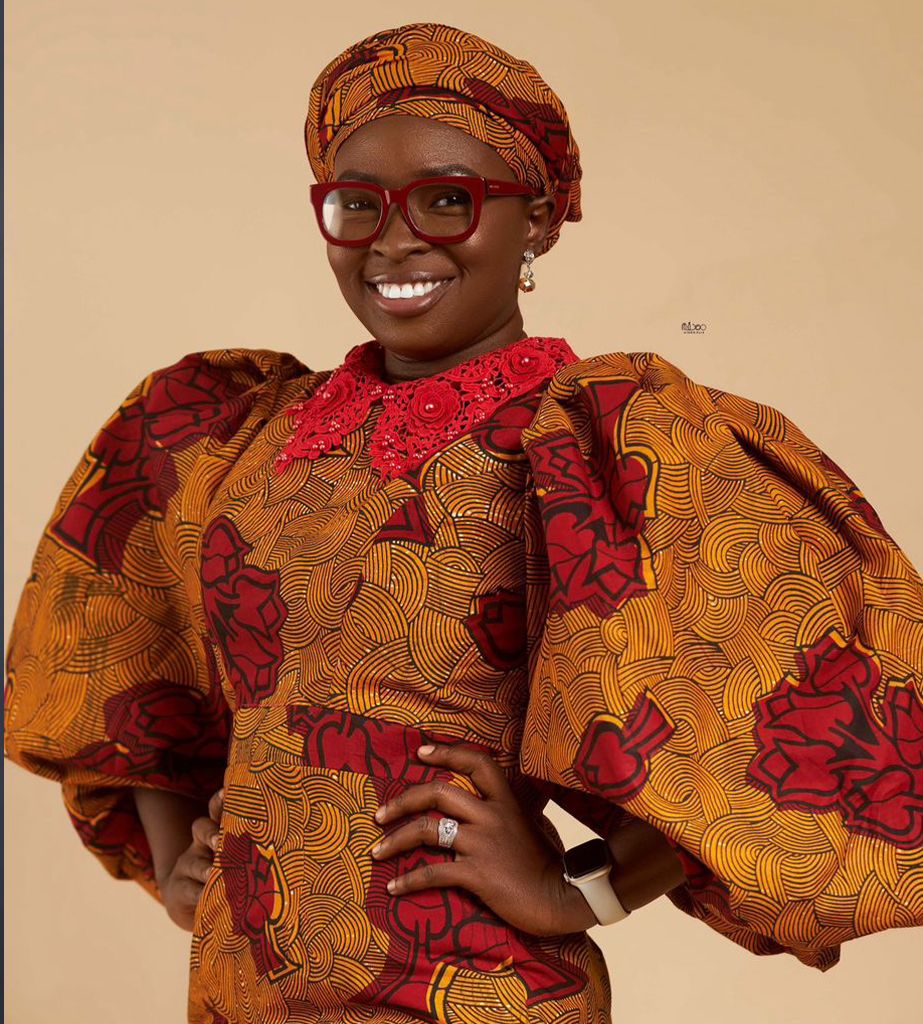
Petra Aba Asamoah
Marketing Executive | Consultant | Writer | Author.
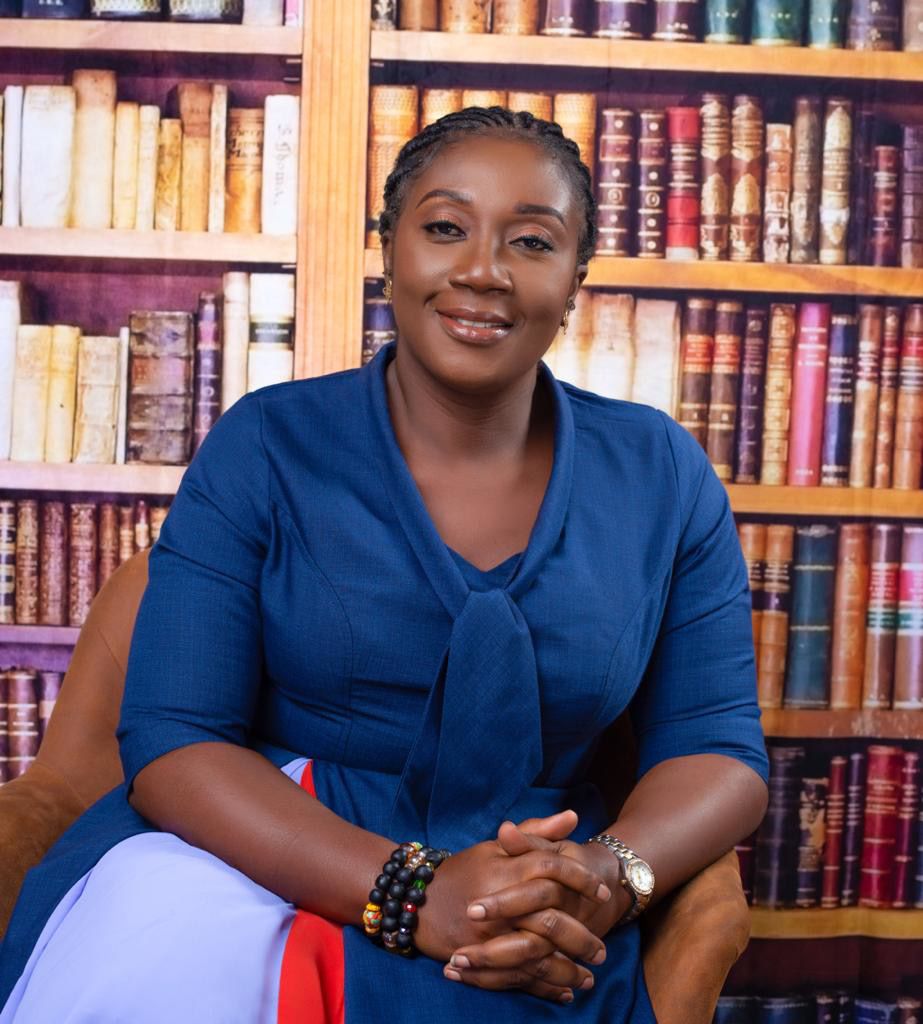
Gina Fiagbenu
Communications Strategist| Author
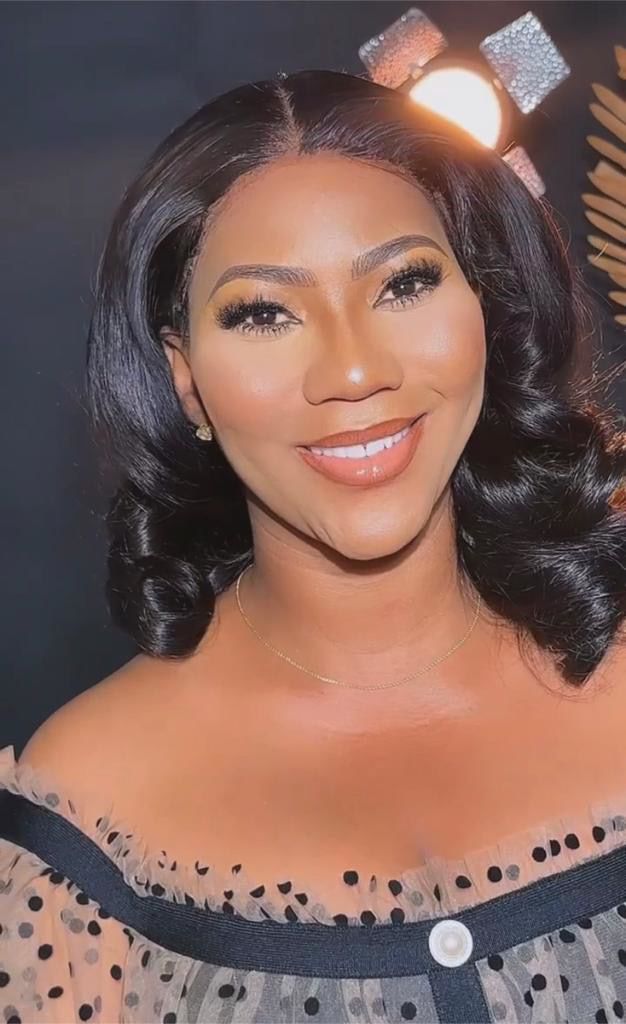
Dzifa Gray
Serial Entrepreneur | TV/Event Host
Introduction
The panel discussion on "Women Will Be Well!" held as part of the All African Women Poetry Festival was a powerful exploration of self care, boundaries and wellness from diverse perspectives. The event brought together a panel of accomplished women, each with unique backgrounds and experiences, to discuss the intersection of wellness and poetry, and how women can find empowerment and well-being through creative expression.
Discussion Highlights
The panel discussion commenced with Ama Krampah setting the stage with a poem and highlighting the importance of embracing the power of words and honoring the brilliance of women in the world of poetry. She emphasized how poetry and creative expression can serve as tools for empowerment and self-discovery.
Petra Aba Asamoah shared her personal journey and insights from the corporate world and her writing experience emphasizing the significance of work-life balance and mental well-being. She stressed the importance of self-care, self-reflection, setting boundaries and the role of writing in finding solace and inspiration amidst a demanding professional life.
Gina Fiagbenu provided valuable perspectives on corporate wellness and the importance of fostering a supportive work environment for women. She discussed how organisations can promote well-being among their female employees, including initiatives that encourage creativity and self-expression.
Dzifa Grey, upon joining the panel, shared her stories and expertise in empowerment and holistic wellness. She emphasized the need for individuals to prioritise their physical, mental, and emotional well-being. Dzifa also discussed how poetry and creative expression can be integrated into holistic wellness practices, such as mindfulness and meditation.
Report and Review:
"A Reading for Ama Ata Aidoo"

Host: Dzifa Gray
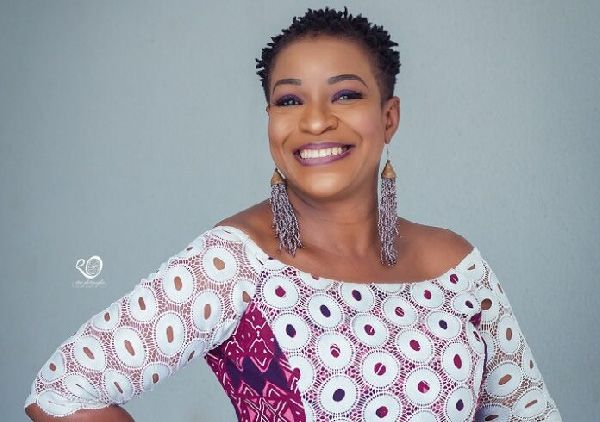
Akofa Edjeani Asiedu
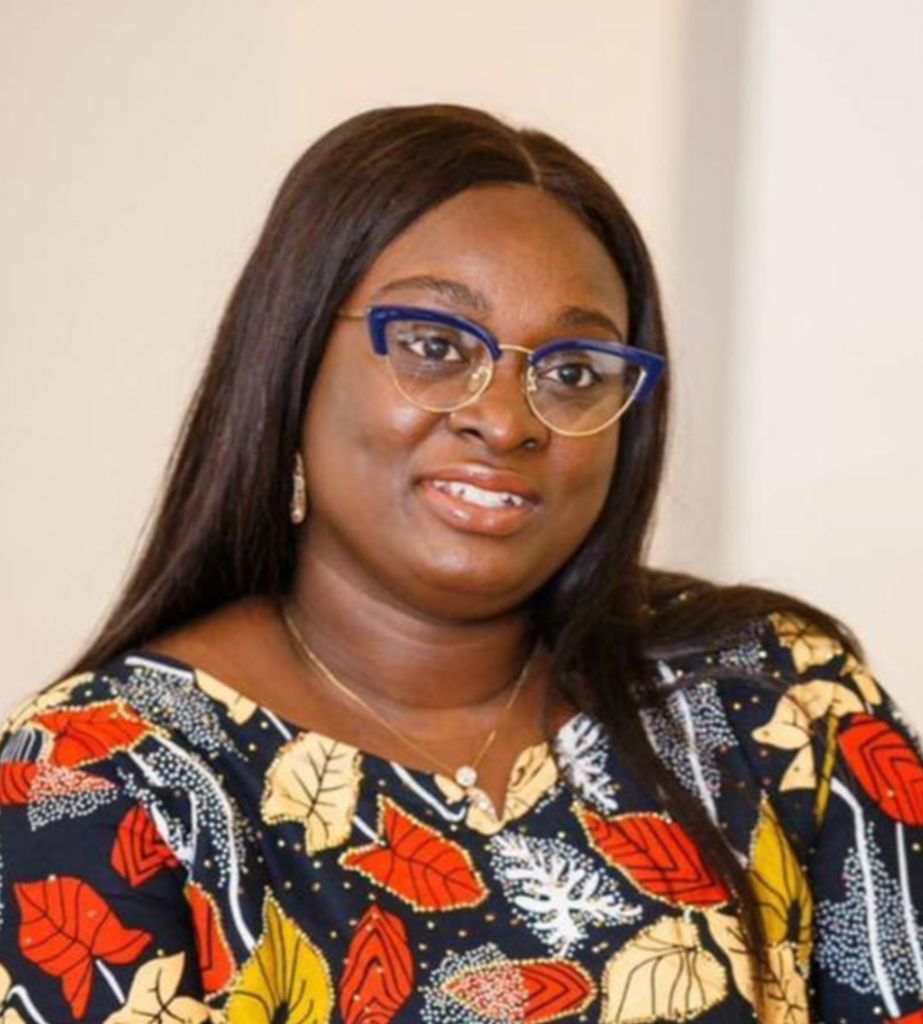
Kate Awuku Darko
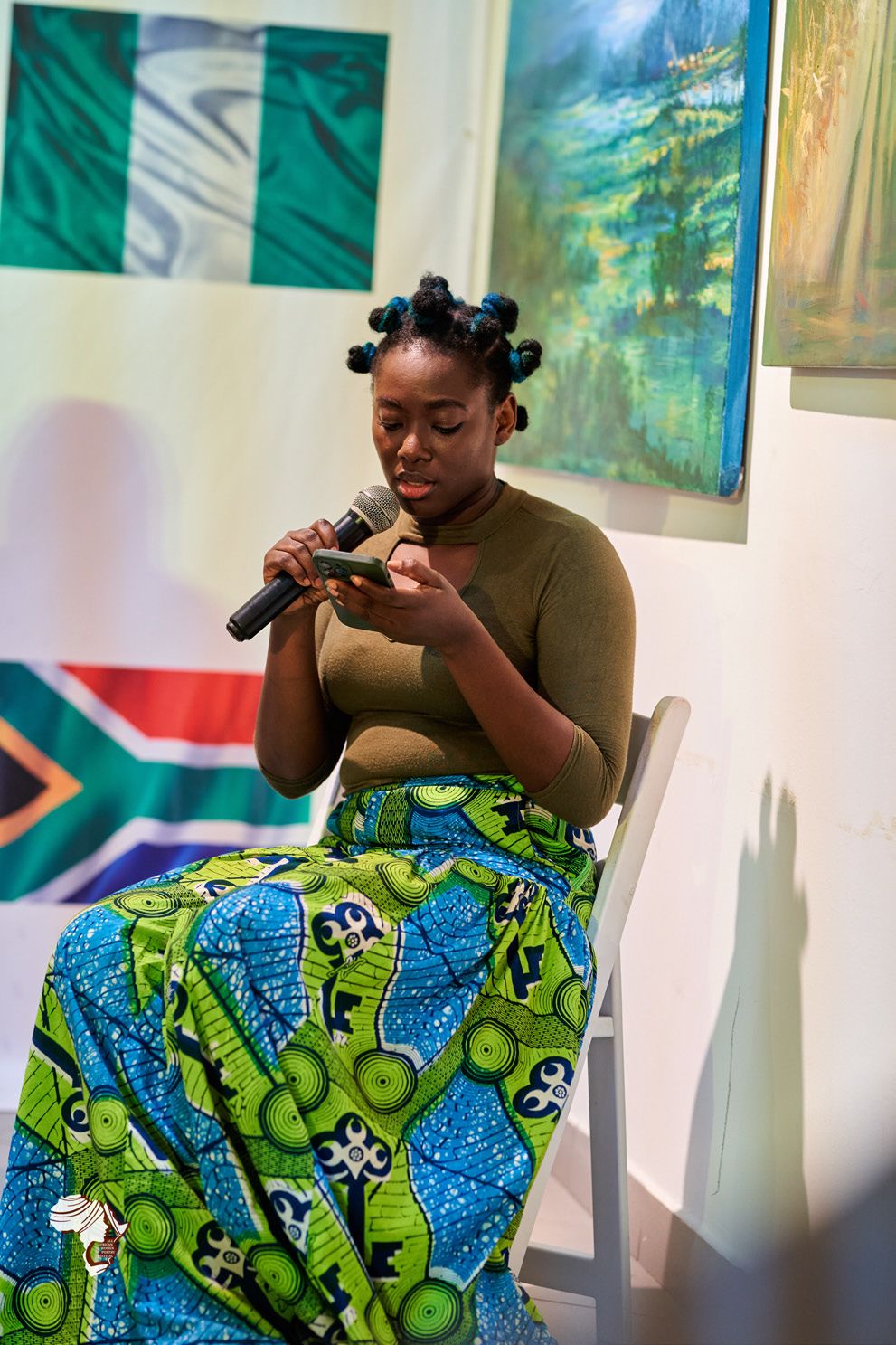
Poetra Asantewa
Introduction
The "A Reading for Ama Ata Aidoo" event, held as part of the Festival to celebrate Ama Ata Aidoo, was a powerful tribute to the iconic Ghanaian writer and a celebration of African women's voices in literature and poetry. Under the theme "Telling the African story from the woman's perspective through Poetry," the event brought together remarkable voices that left the audience captivated by their readings from Ama Ata Aidoo's works.
Event Details
Host: Dzifa Gray
Featured Poets: Poetra Asantewa, Akofa Edjeani Asiedu, Kate Awuku Darko
The event kicked off with a warm welcome from the host, Dzifa Gray, who set the stage by emphasizing the significance of storytelling in uncovering our identities and promoting healing. The idea that "when we tell stories, we uncover who we are"
resonated throughout the evening and became the guiding principle for the event.
Review
The "A Reading for Ama Ata Aidoo" event was a testament to the enduring influence of Ama Ata Aidoo and the vital role of storytelling and poetry in African literature. Here are some key highlights and takeaways from the event:
Diverse Voices: The event featured a diverse lineup of poets, each bringing their unique style and perspective to the stage. The combination of different voices added depth and richness to the readings.
A Tribute to Ama Ata Aidoo: The heart of the event was the readings from Ama Ata-Aidoo's works. The poets skillfully brought Aidoo's words to life, paying homage to her literary contributions and honouring her as a trailblazer in African literature.
Powerful Readings: The audience was captivated by the powerful readings. Poetra Asantewa, Akofa Edjeani, and Kate Awuku Darko delivered poignant and emotive performances that not only showcased their literary prowess but also highlighted the themes of strength, resilience, and creativity found in Ama Ata-Aidoo's writings...read more
Voice on Words - “VOW” Spoken Word Competition
at the All African Women Poetry Festival (AAWPF)
The All African Women Poetry Festival (AAWPF) recently hosted the highly anticipated "Voice on Words" Spoken Word Competition at the prestigious British Council in Accra, Ghana. This event served as a platform for young poets from three renowned schools to showcase their exceptional talents and compete for the coveted title. Among the participating schools were Holy Trinity Catholic Senior High School, La Presby Senior High School, and the remarkable representatives from Osu Salem Senior High School, led by the talented Ella Ahondo, who emerged as the winner.
Objective:
The competition, divided into three captivating rounds, aimed to celebrate the art of spoken word poetry while paying homage to the literary legacy of the esteemed Ghanaian author, Ama Ata Aidoo. The event sought to highlight the power of spoken word poetry and provide a platform for young poets to express their creativity and perspectives.
Coaches:
Dr. Ansong, Papa Arkhurst, Cynthia Amoah.
Judges:
Esteemed judges for the competition included Rhyme Sonny, a renowned poet known for impactful performances and entrepreneurial contributions, and Dr. Ekua Kumah from the University of Ghana, who brought her scholarly expertise to the evaluation process.
Competition Rounds:
Round One - Tribute to Ama Ata Aidoo:
In the first round, students showcased their deep appreciation for the literary works of Ama Ata Aidoo by picking from a curated selection of poems from her collection. This segment not only paid homage to the legendary writer but also demonstrated the participants' profound understanding of her literary contributions.
Round Two - Celebrating contemporary African Women Poets:
The second round presented an exciting challenge, requiring students to select and perform poems written by female African writers. This segment aimed to spotlight the immense talent and diversity within the African literary landscape, giving voice to accomplished women poets. ...read more
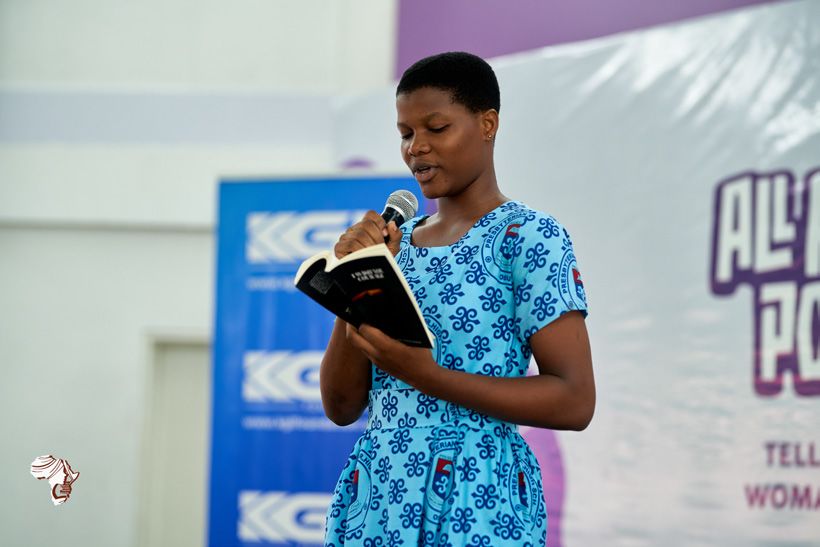
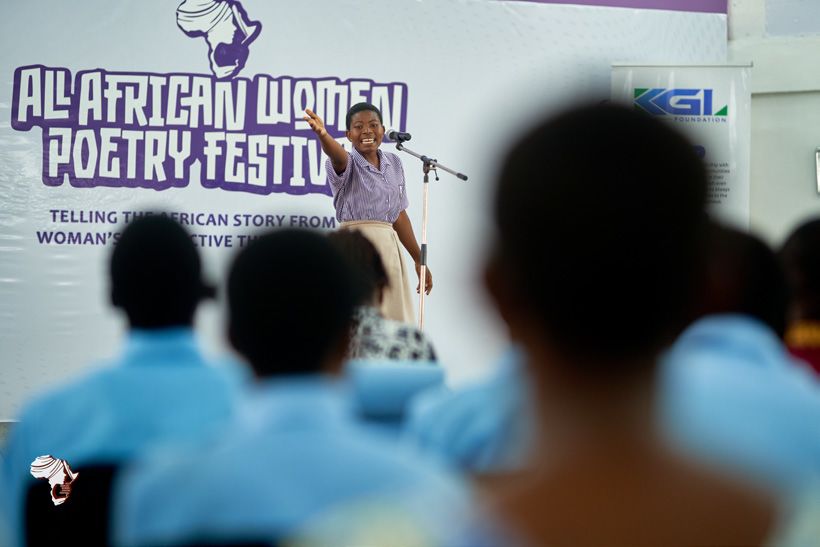
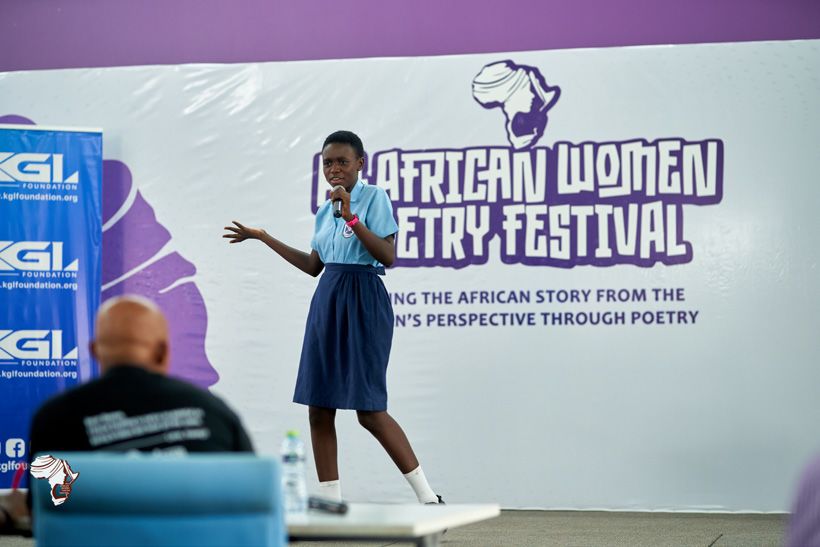
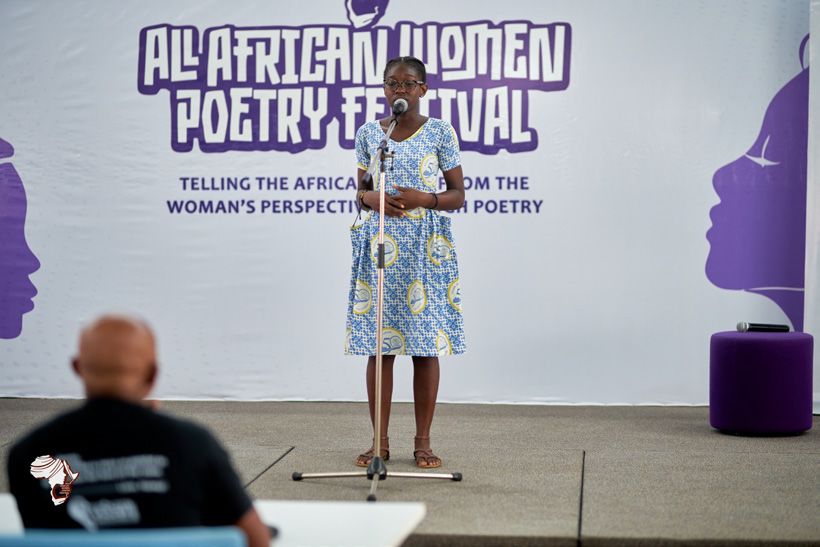
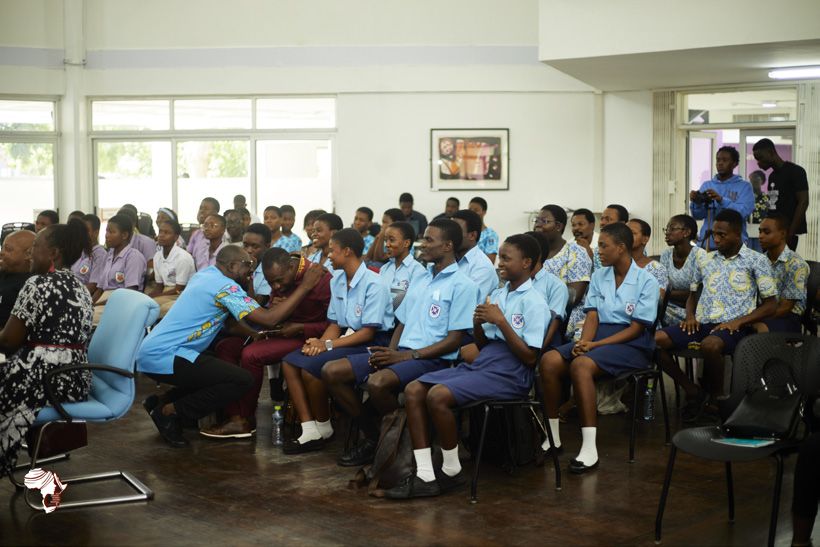
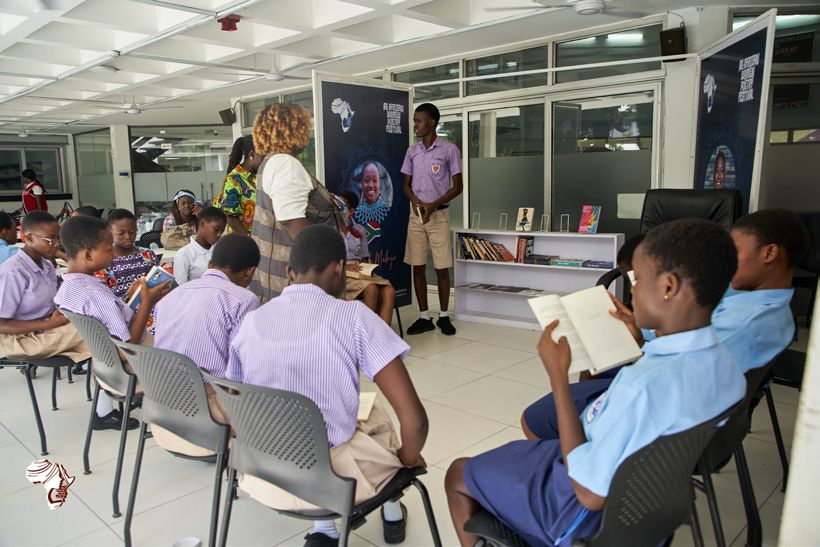
Team
Editor-in-Chief
Emma Ofosua Donkor | d.emmaofosua@gmail.com
Contributing Editor
Kwaku Sonny Bedwei | rhymesonny@gmail.com
Sub-Editor
Fui Can-Tamakloe | fctamakloe@gmail.com
Production
Kofi Nyarko | kofinyarko77@gmail.com
Ophelia Acquah | call.ophie@gmail.com
Audrey-Bertha Nuerki Nartey | thegirlwiththeredhair.gh@gmail.com
Glam Team
Fabric by ATL
Monalisa Irahbem | djemelle_official
Marvin Delali Tumi | marvin_more
Mina Dablu | justminna
Ayorkor | ak_the_seamstress
Avonsige | avonsige_
Hair by Outre
Hair styled by Christelle Codo | afro_ele_
Accessorised by jos_keepsakes
Makeup by iGlow Beauty | iglowmakeup
Photography
Gerard Nartey (Photo Gerard) | gerardnartey@gmail.com
Dennis Temituro (commlab) | temiturodennis@gmail.com
Kwame Crenstil | crentsilkwame@gmail.com
